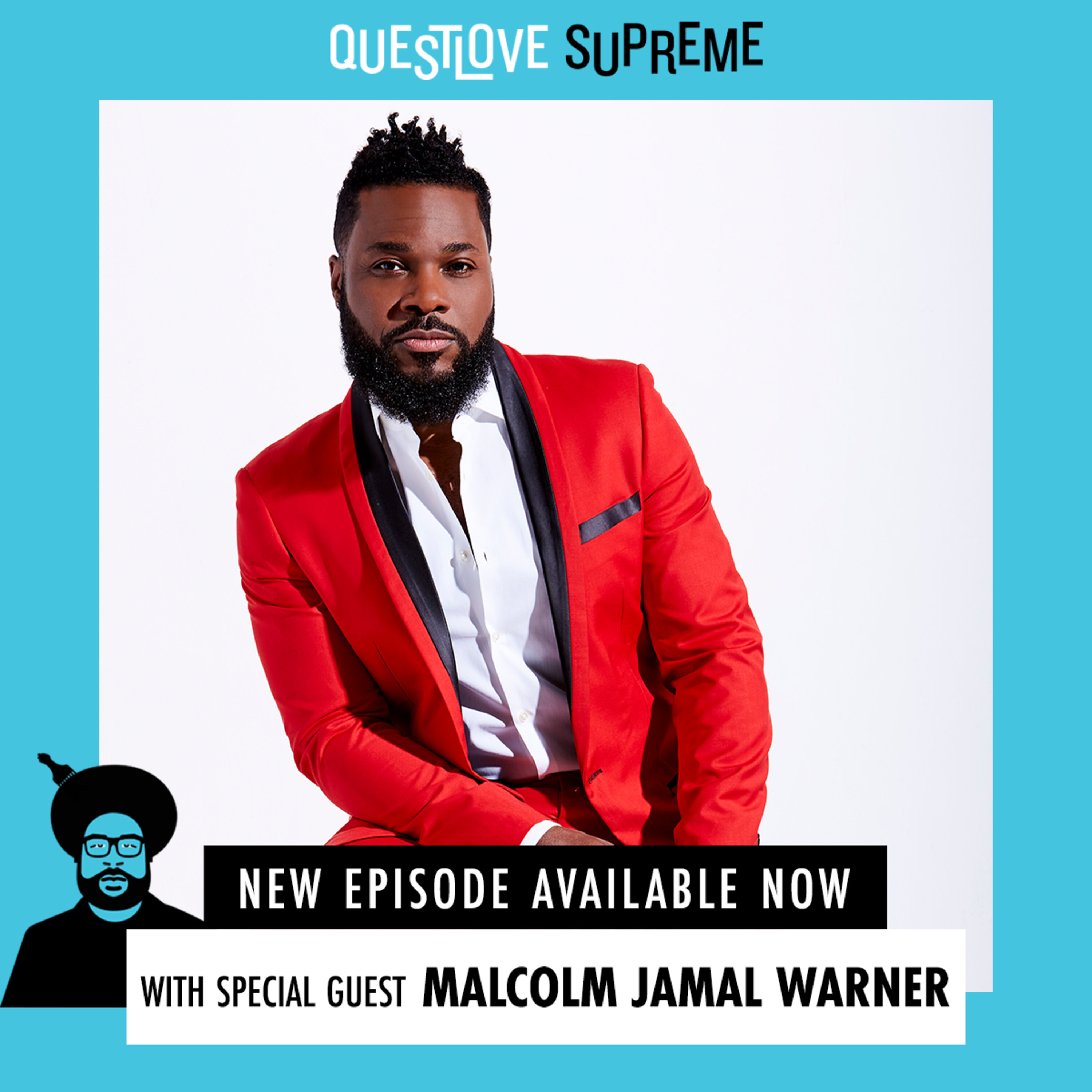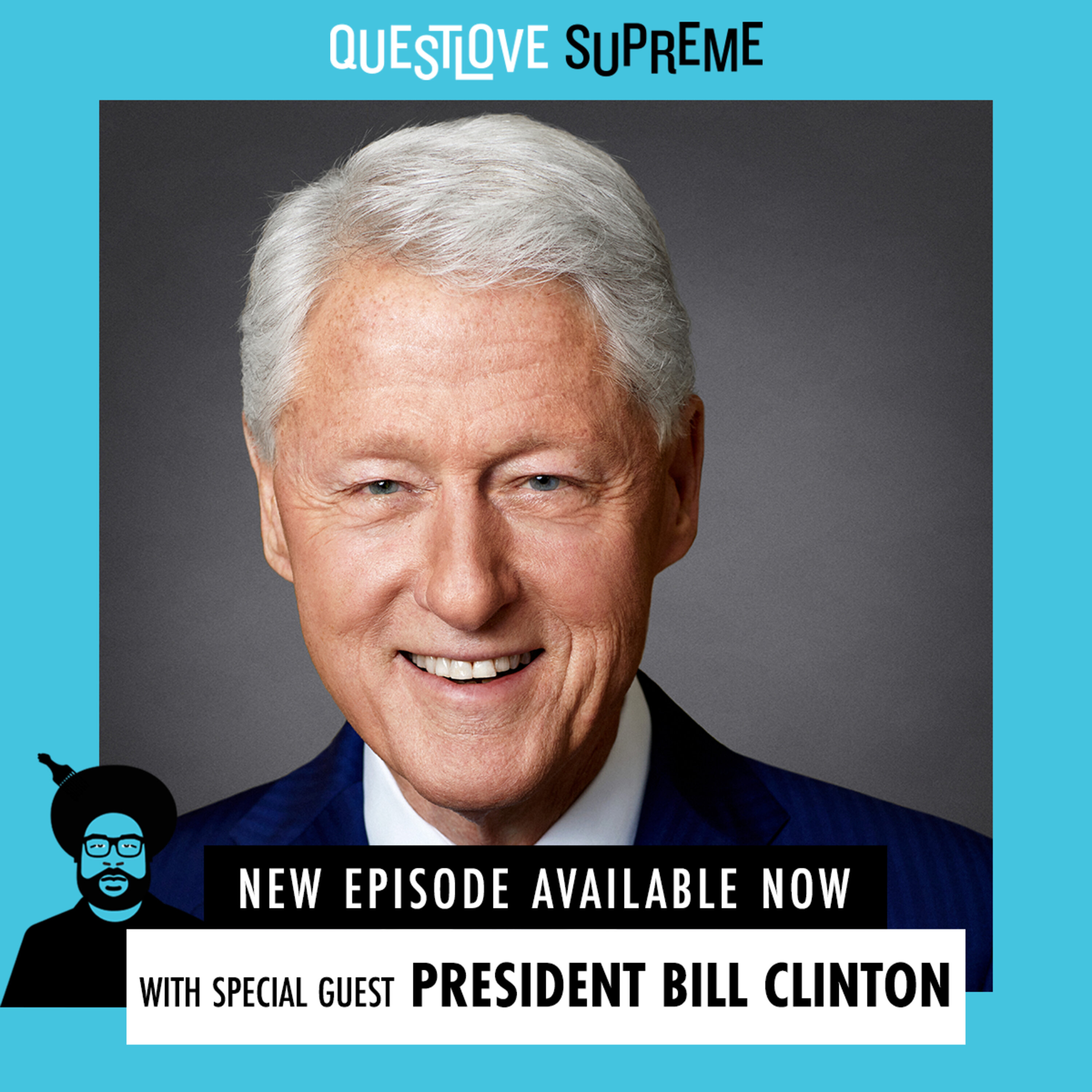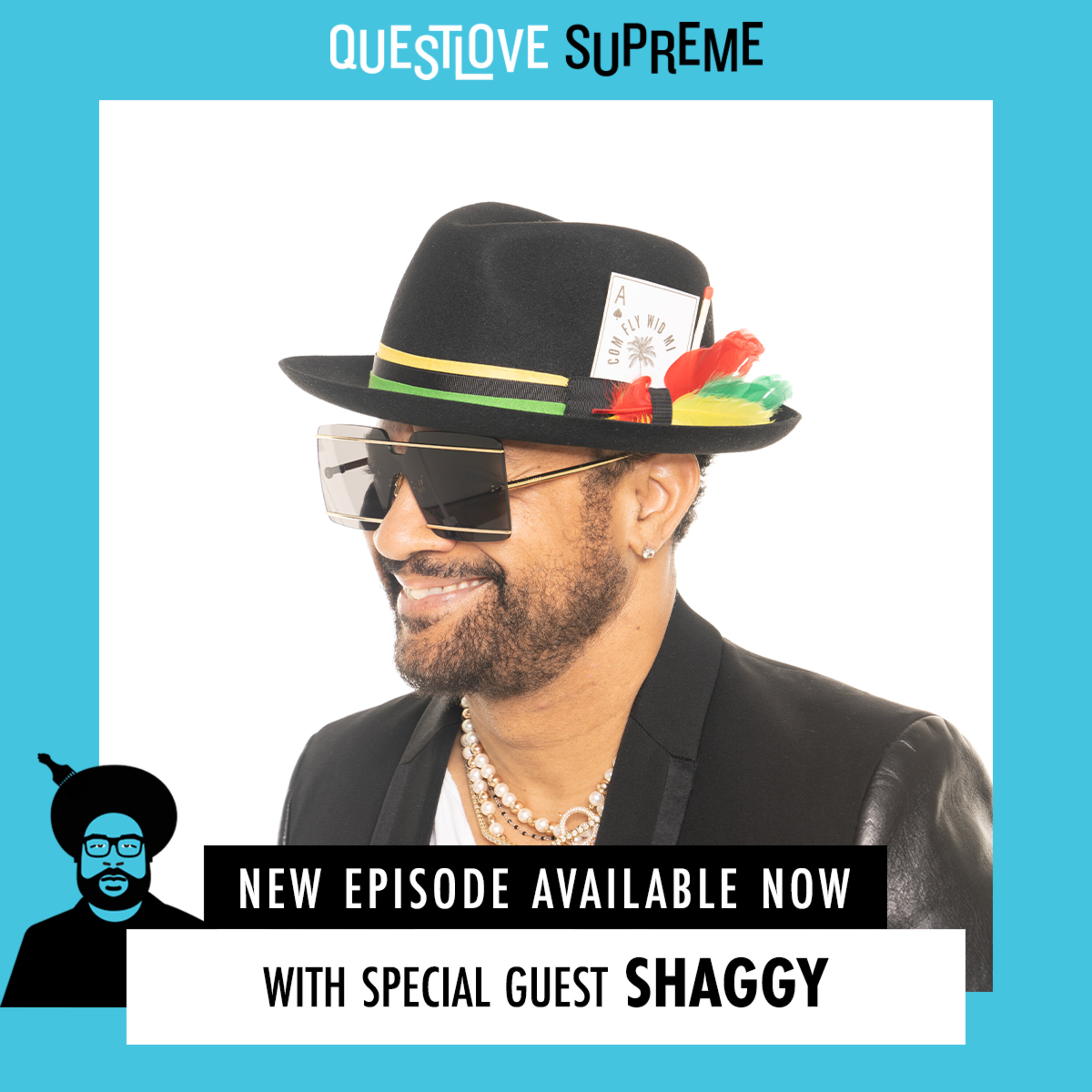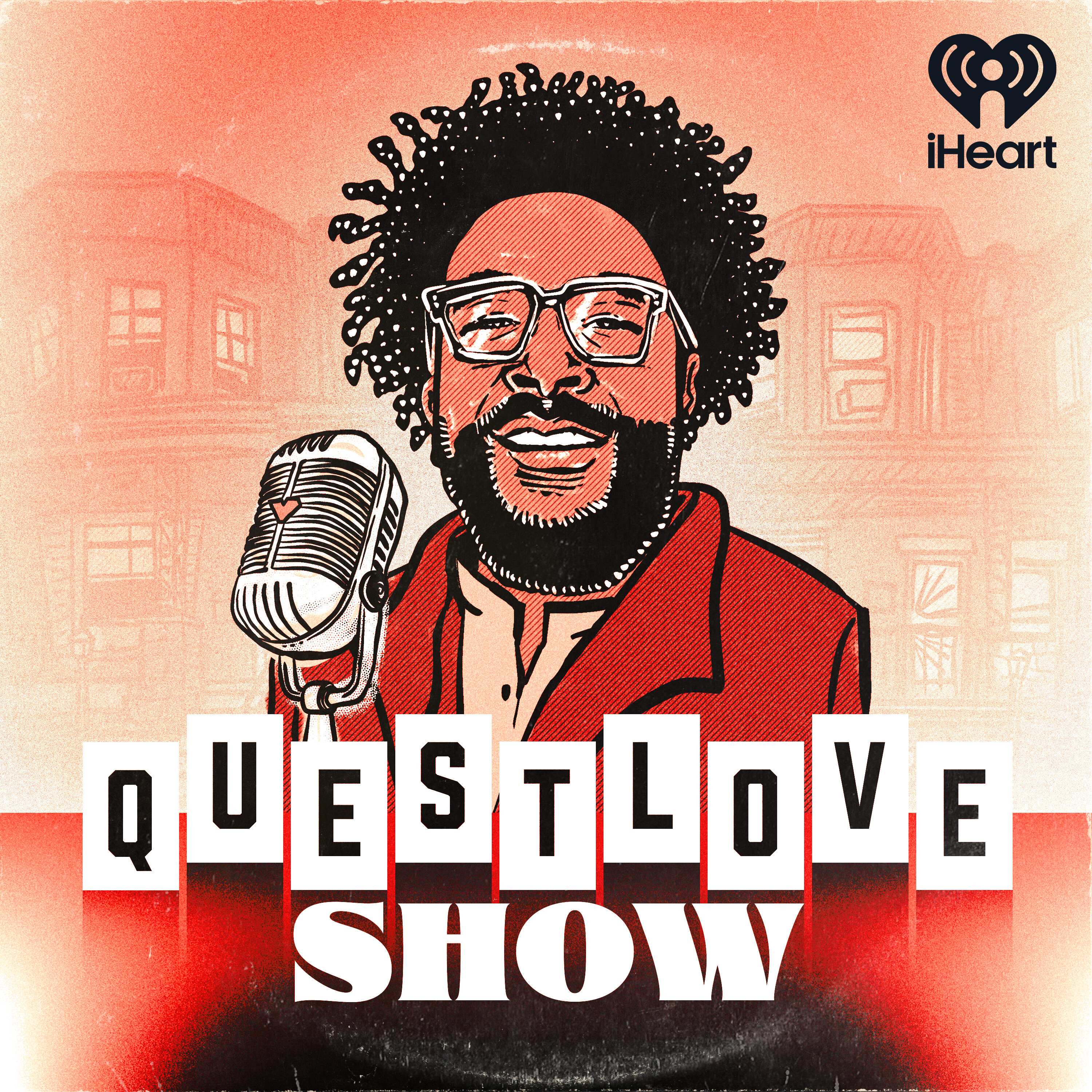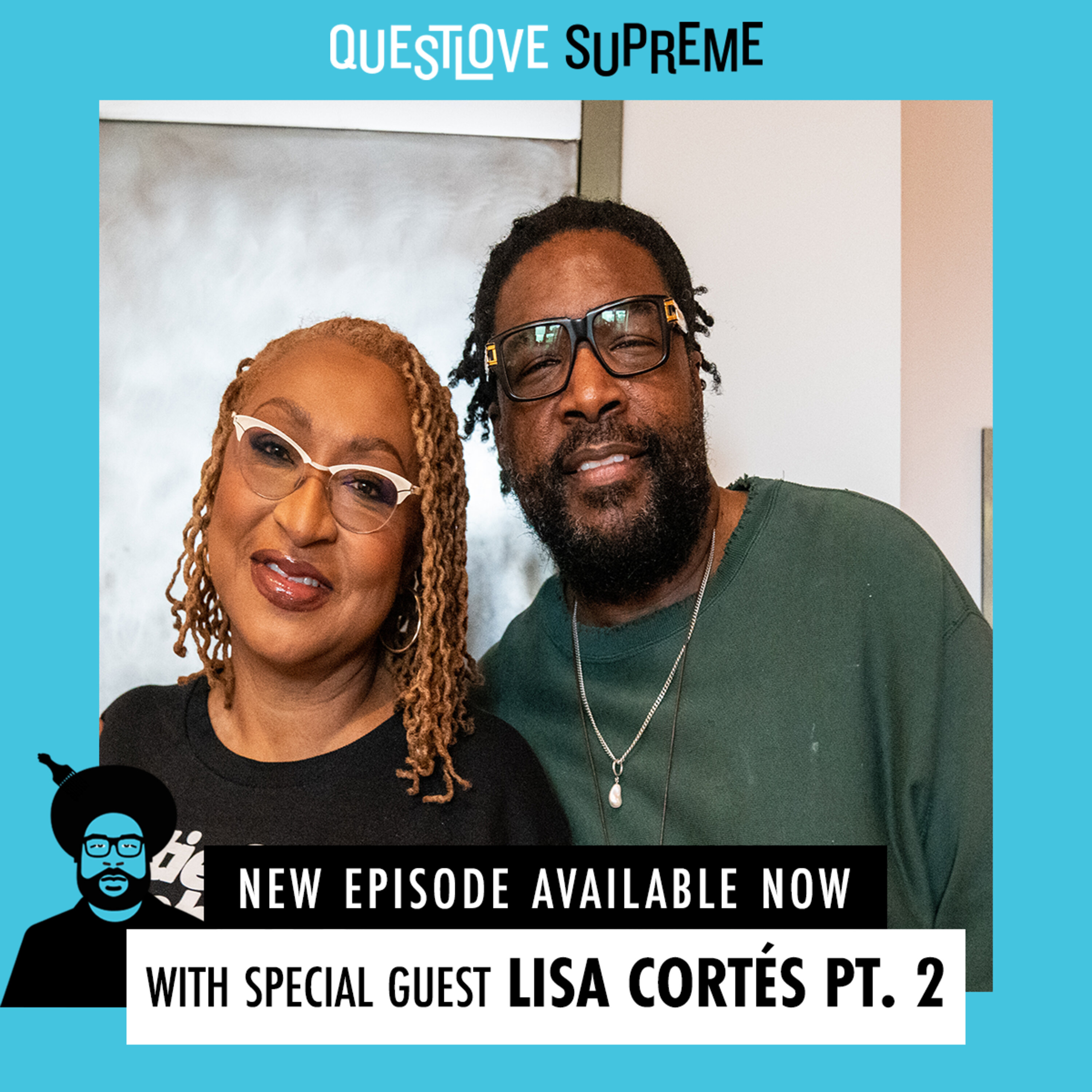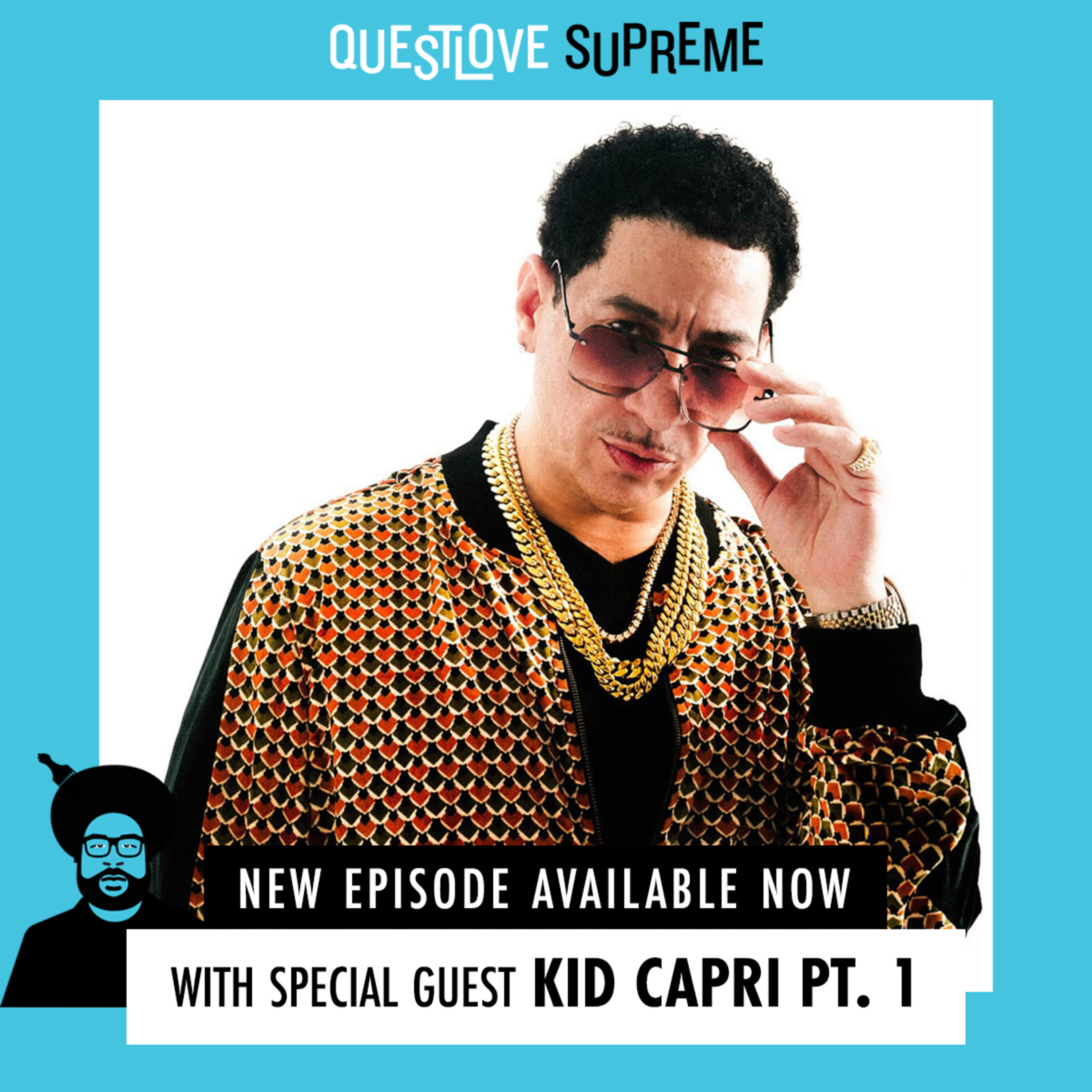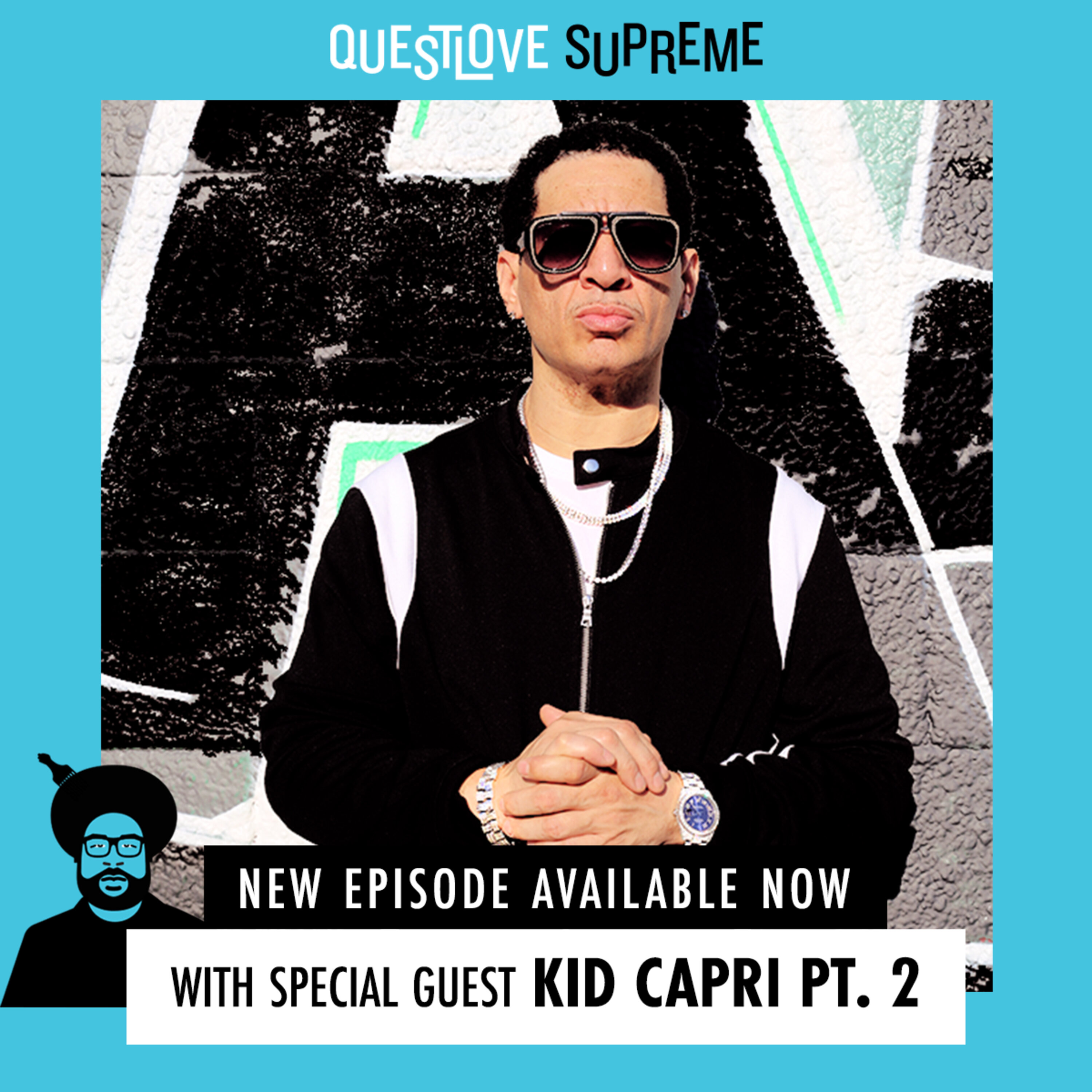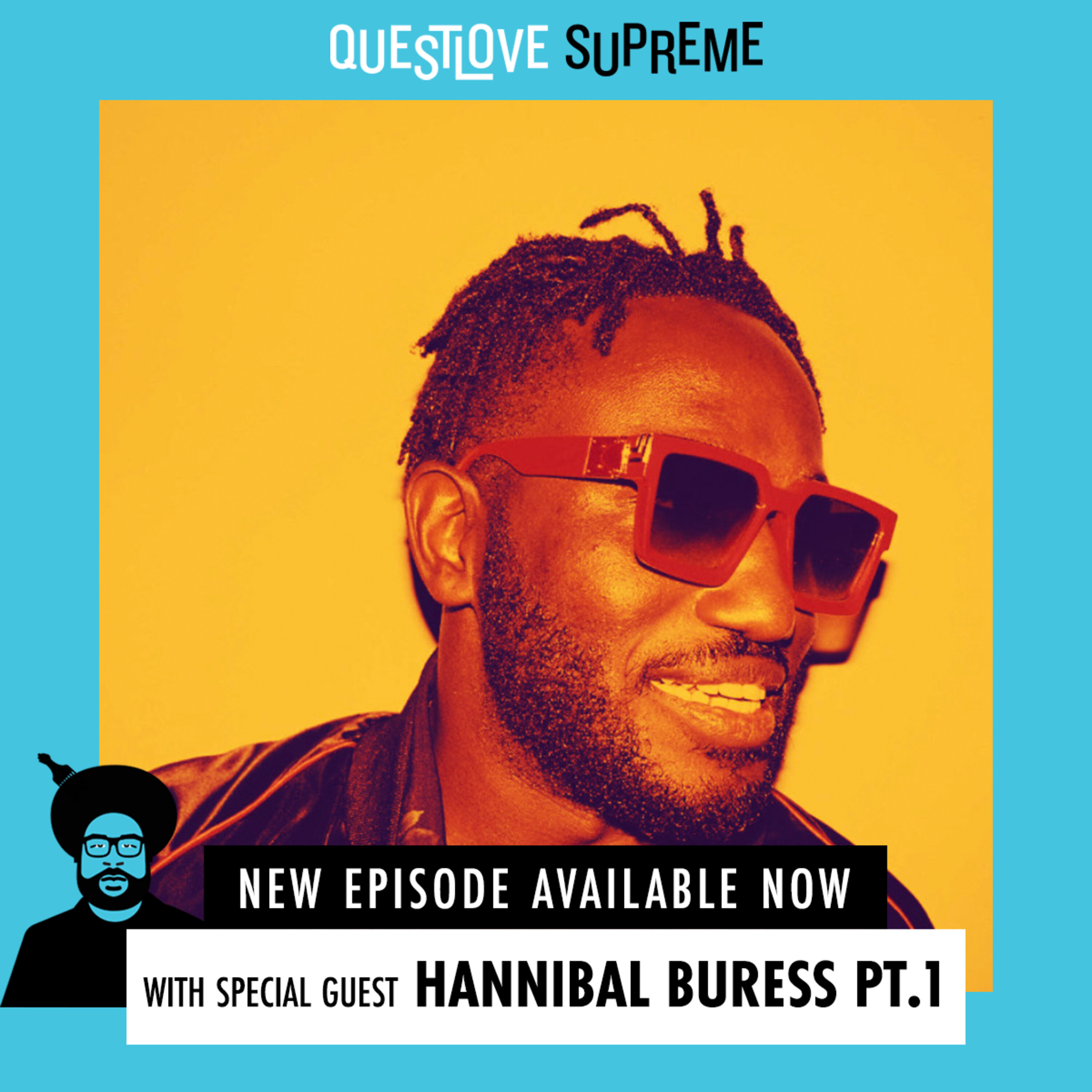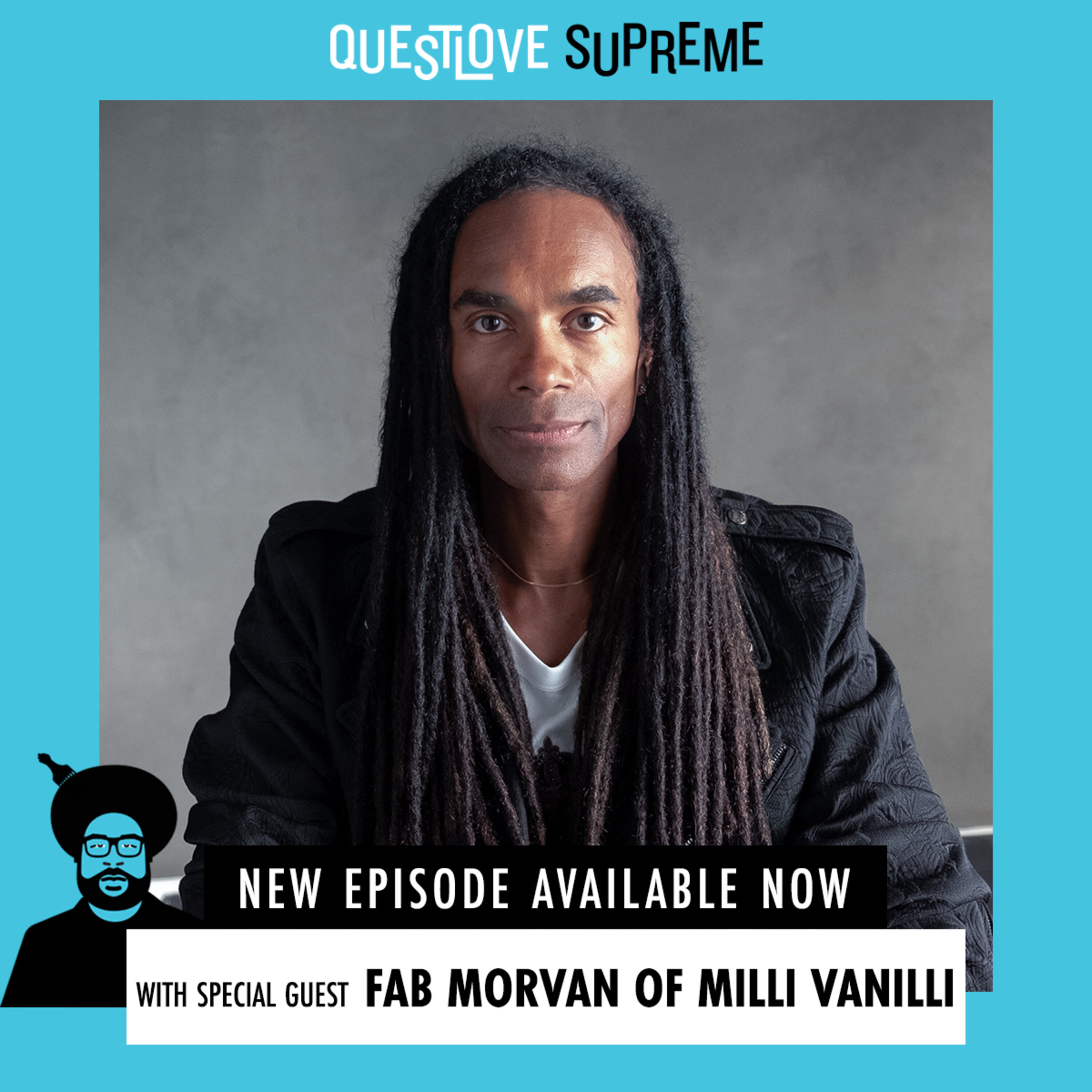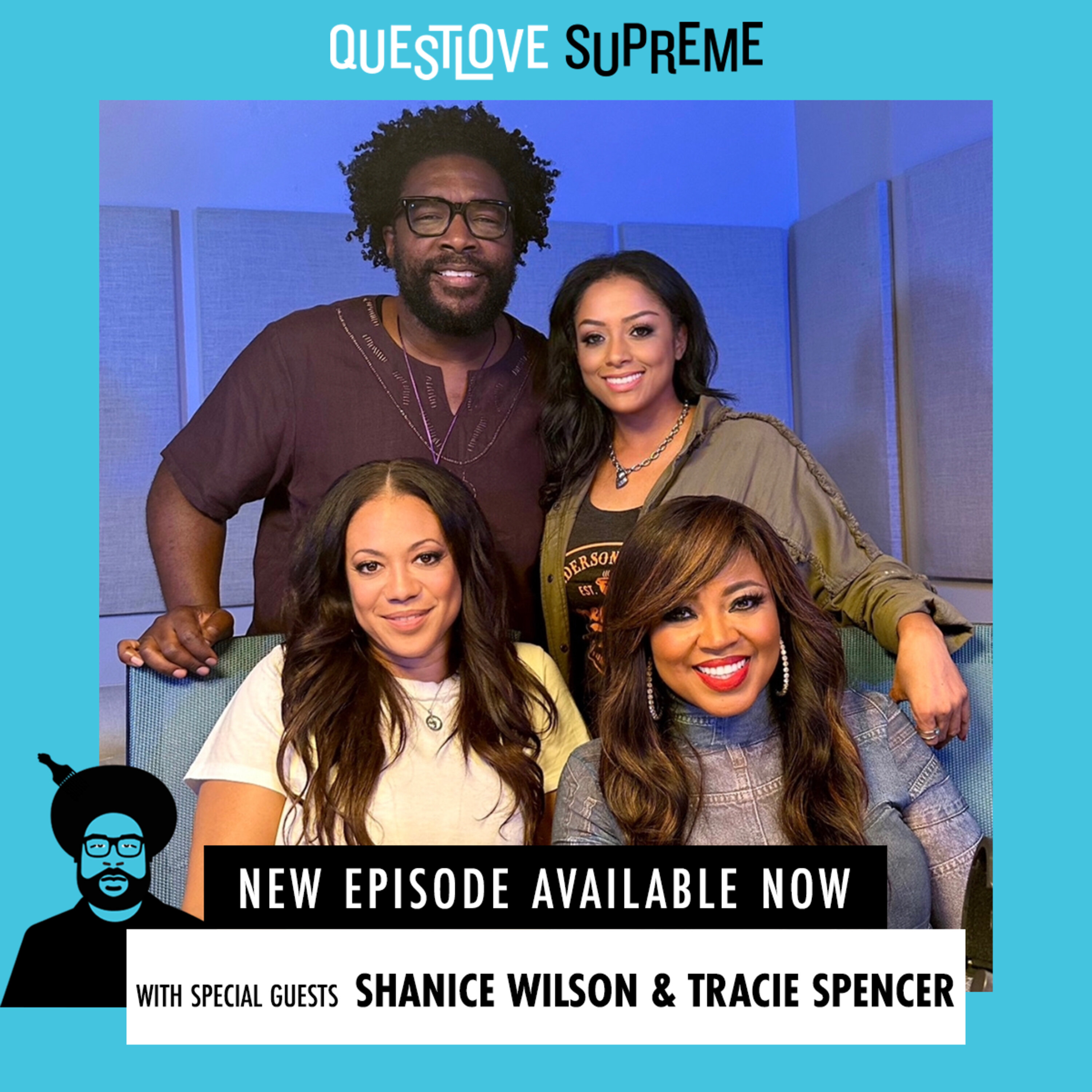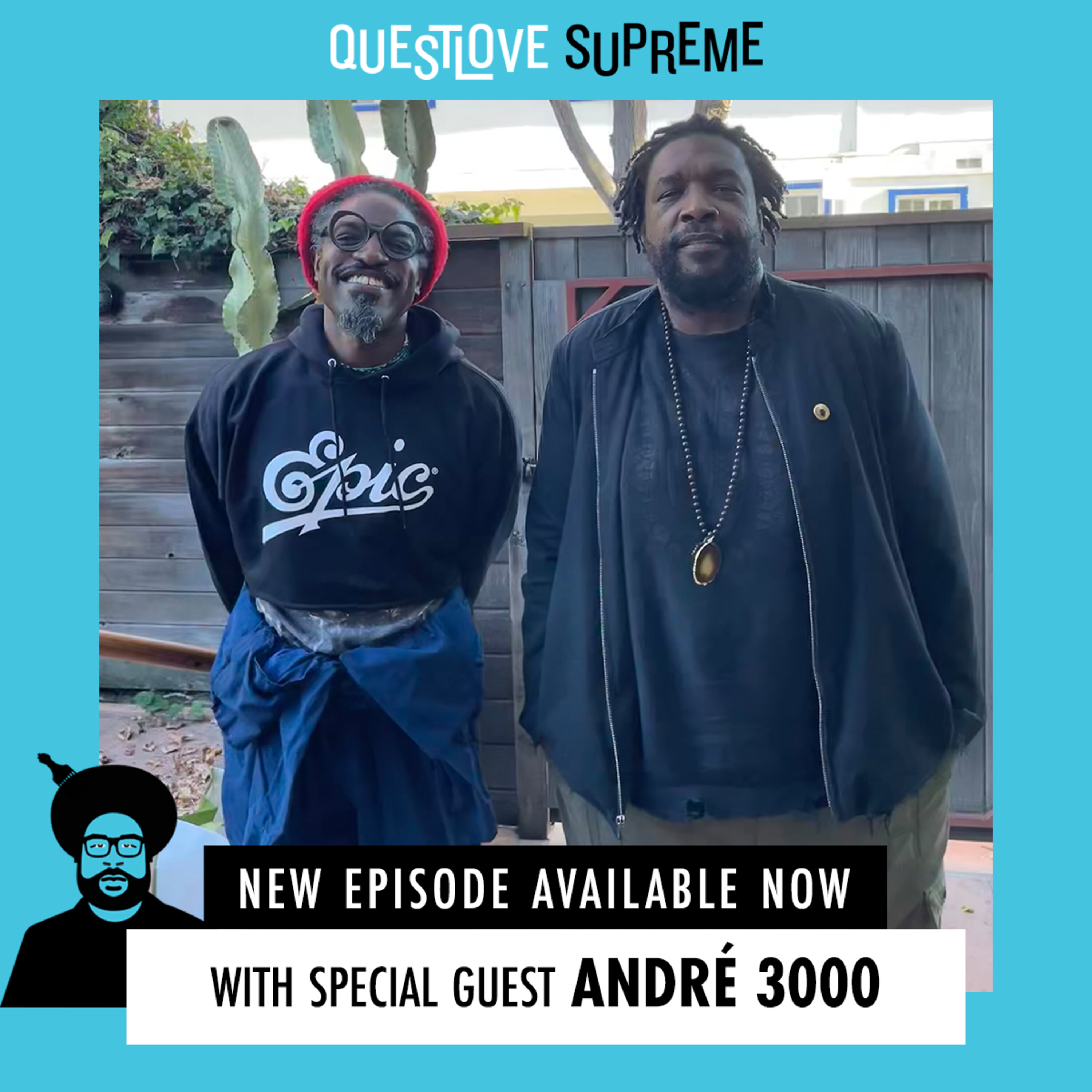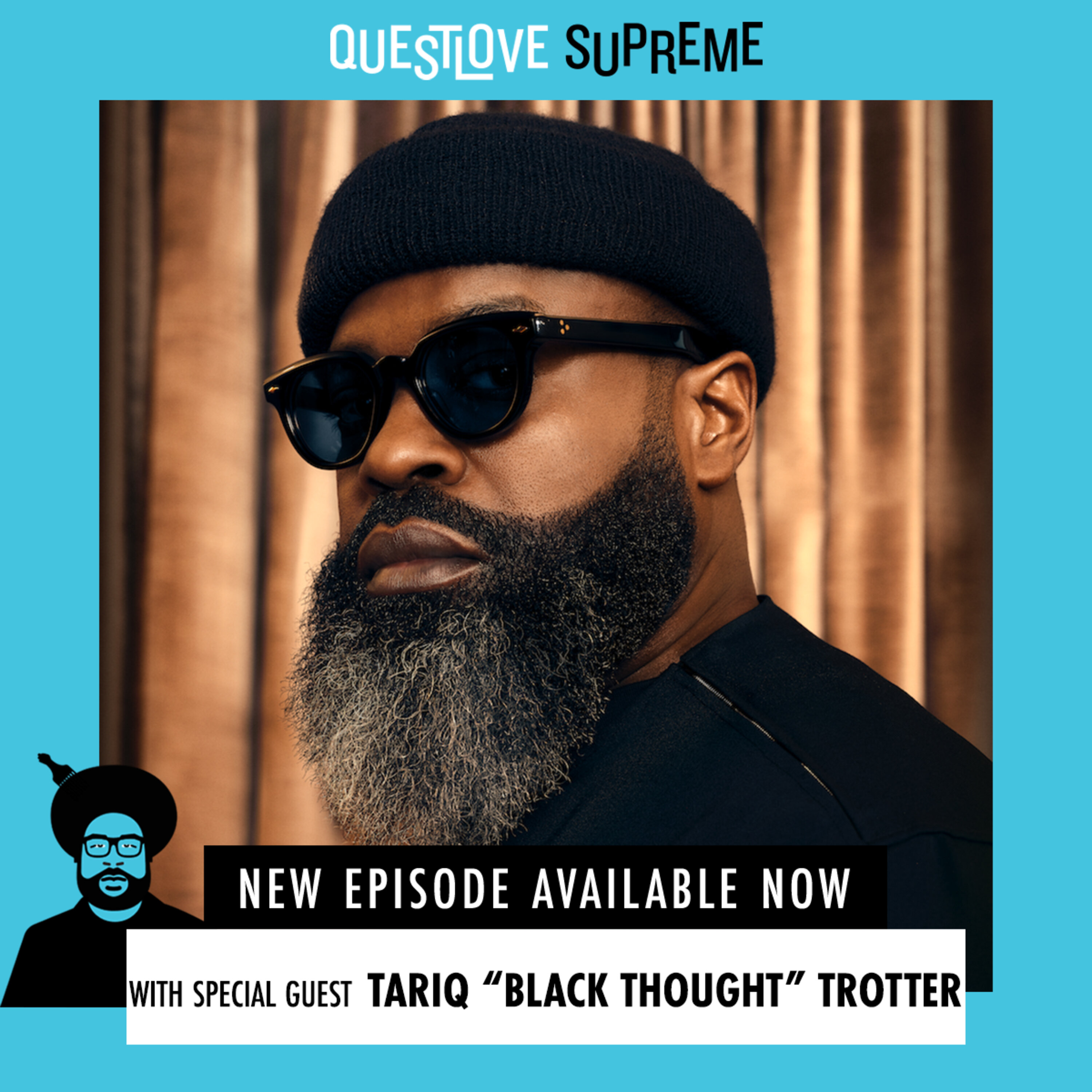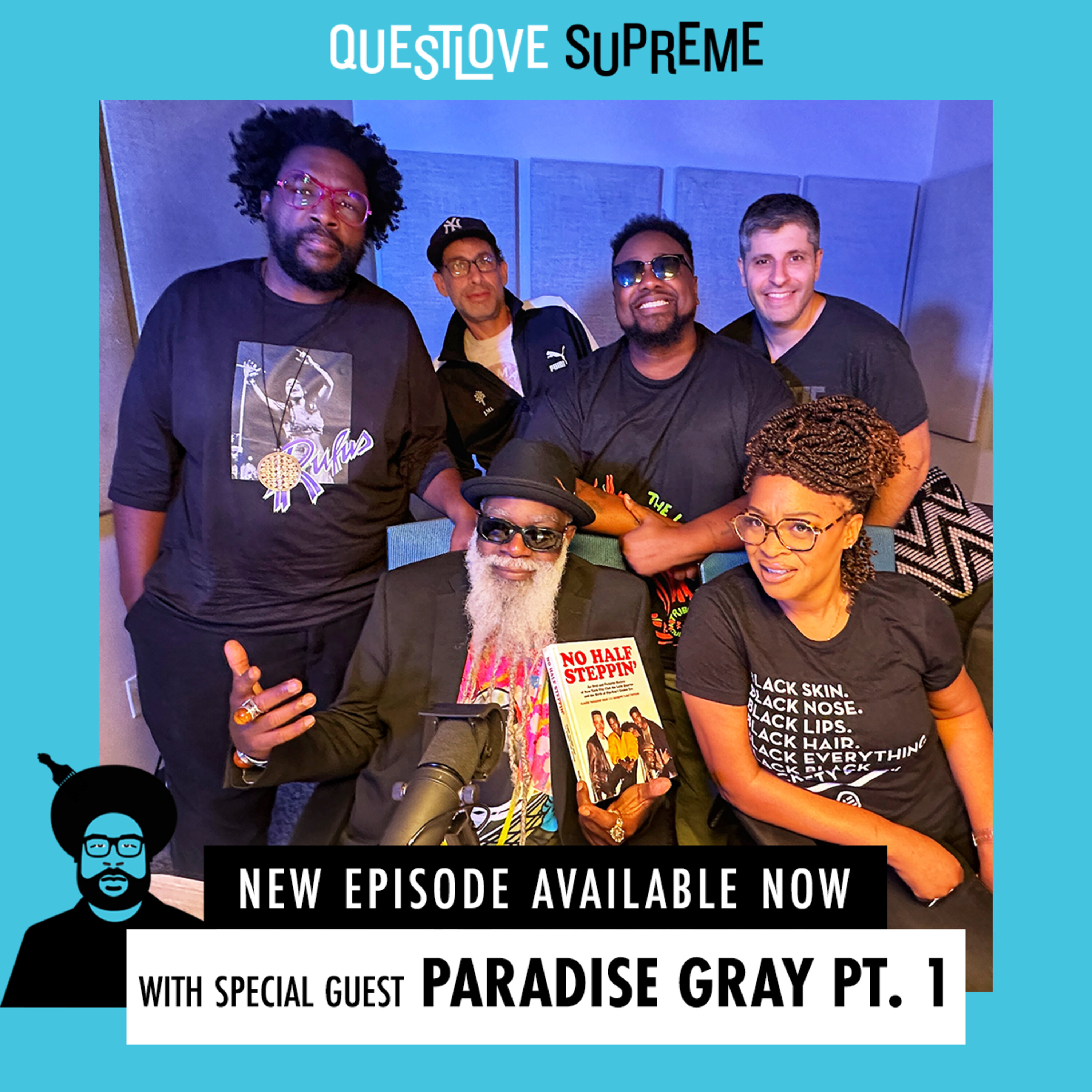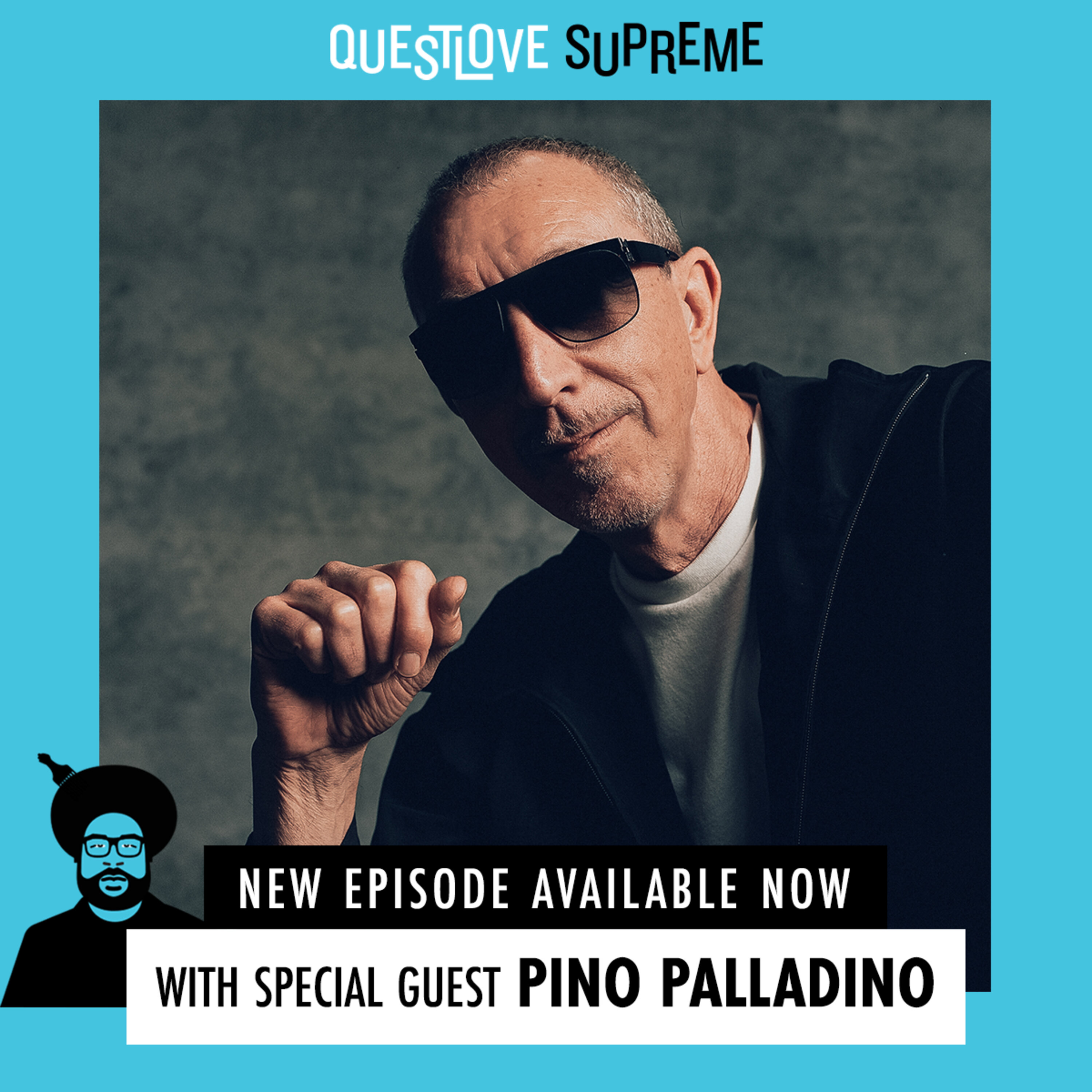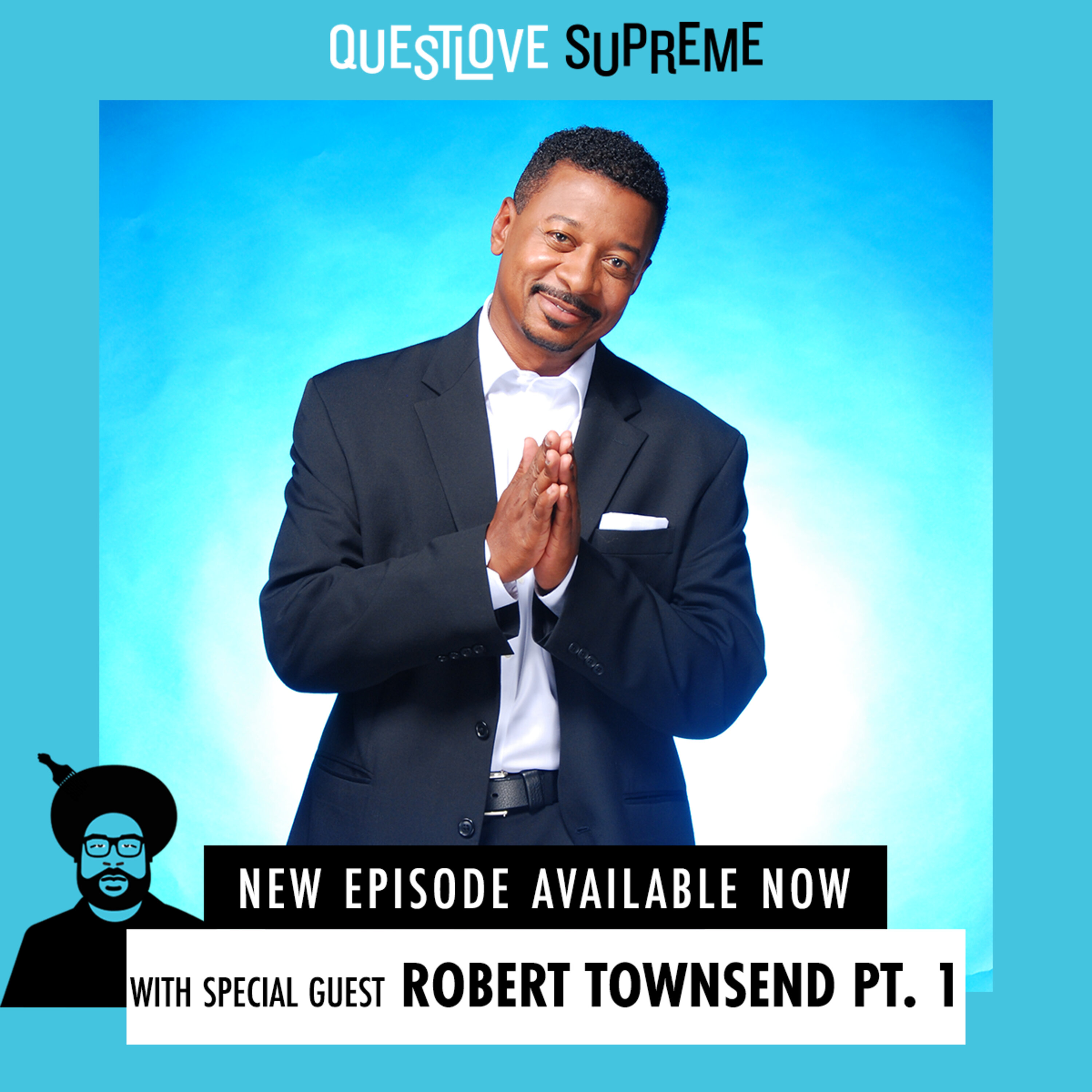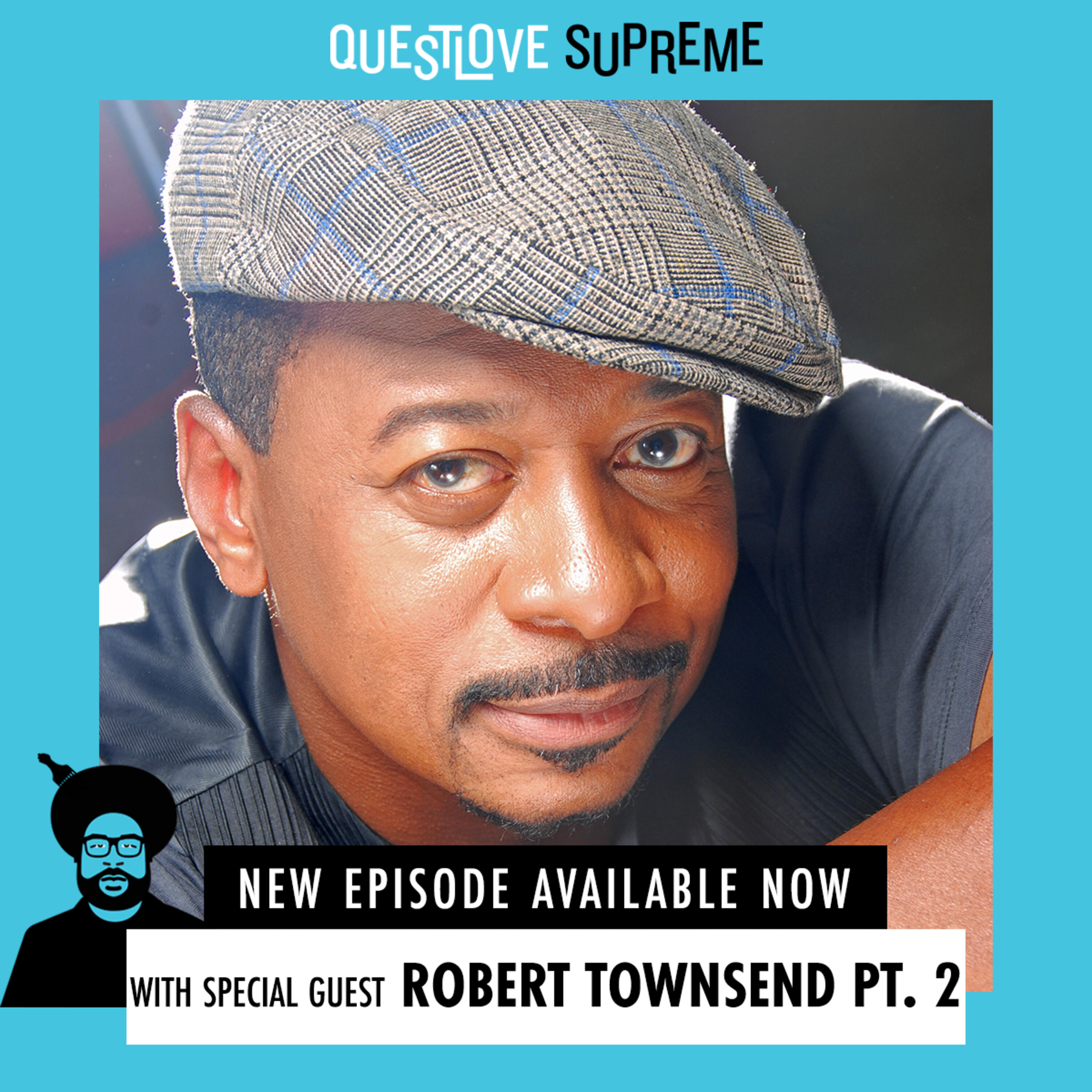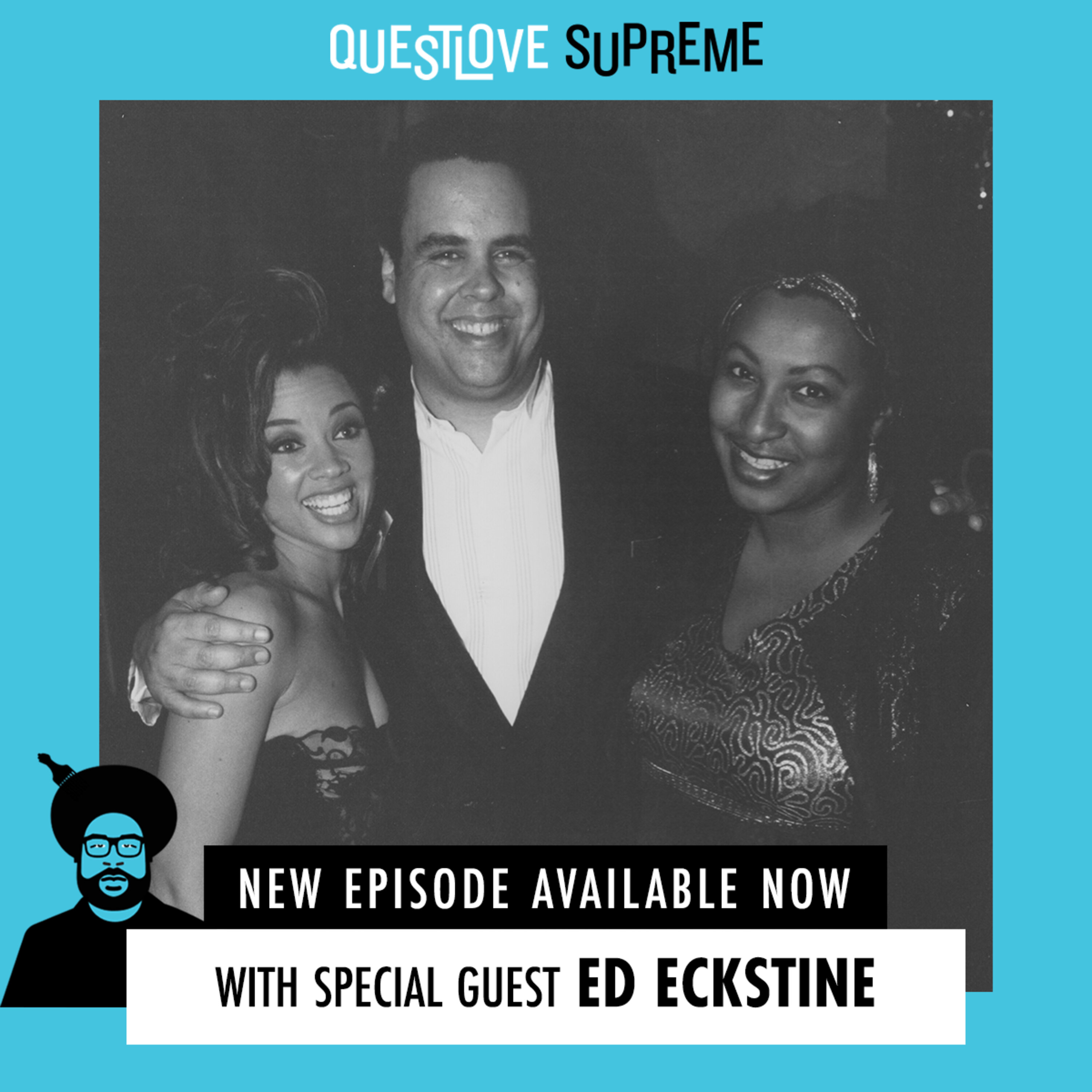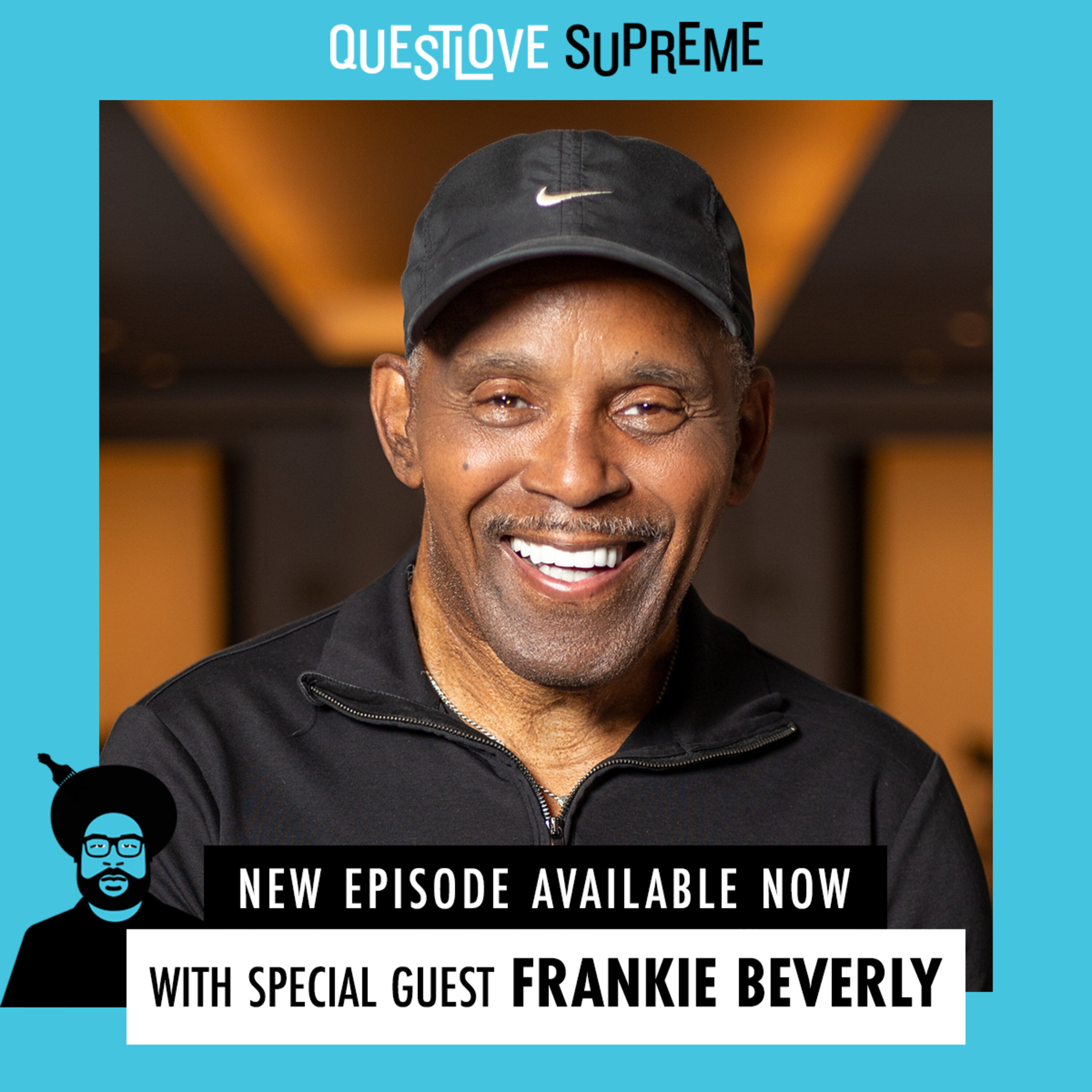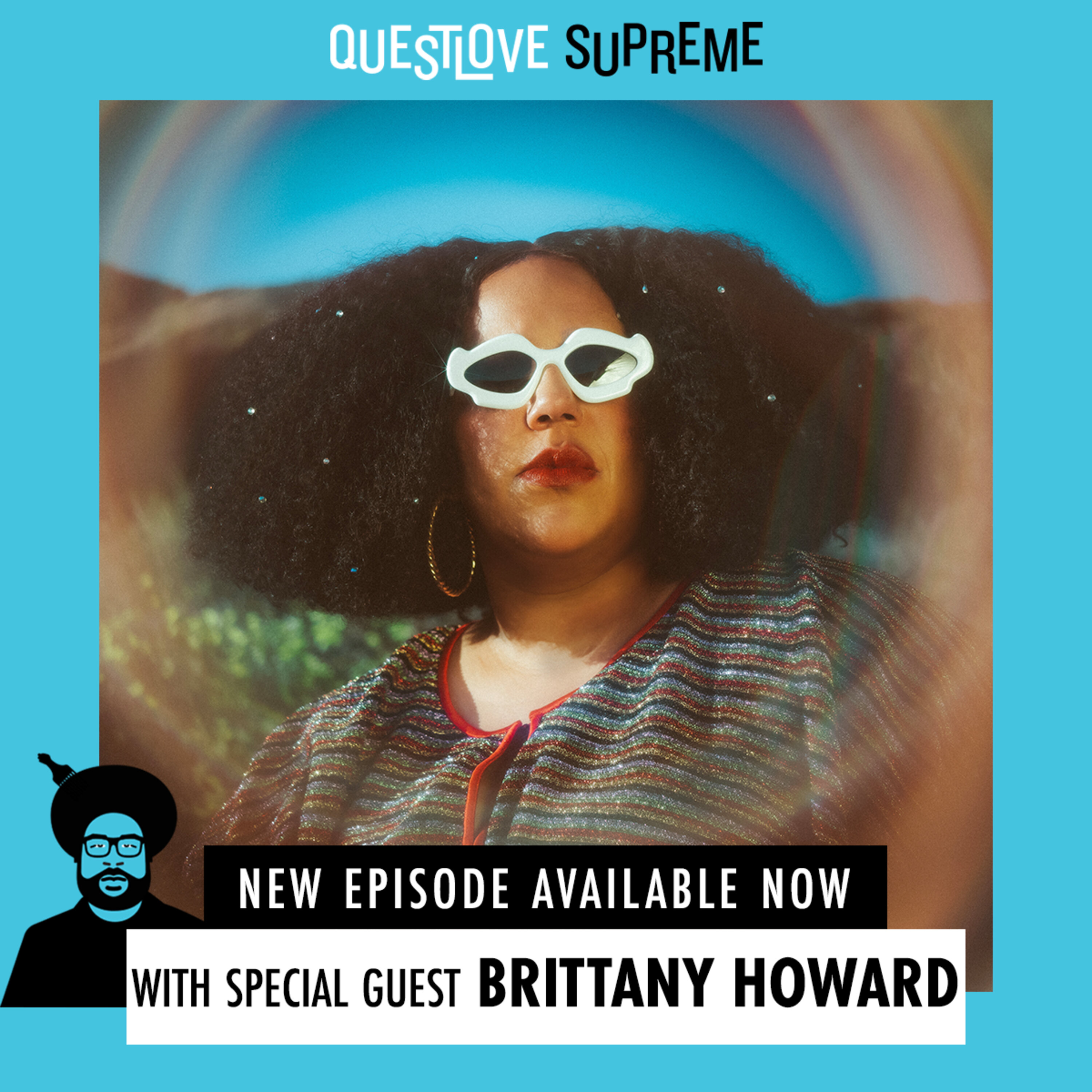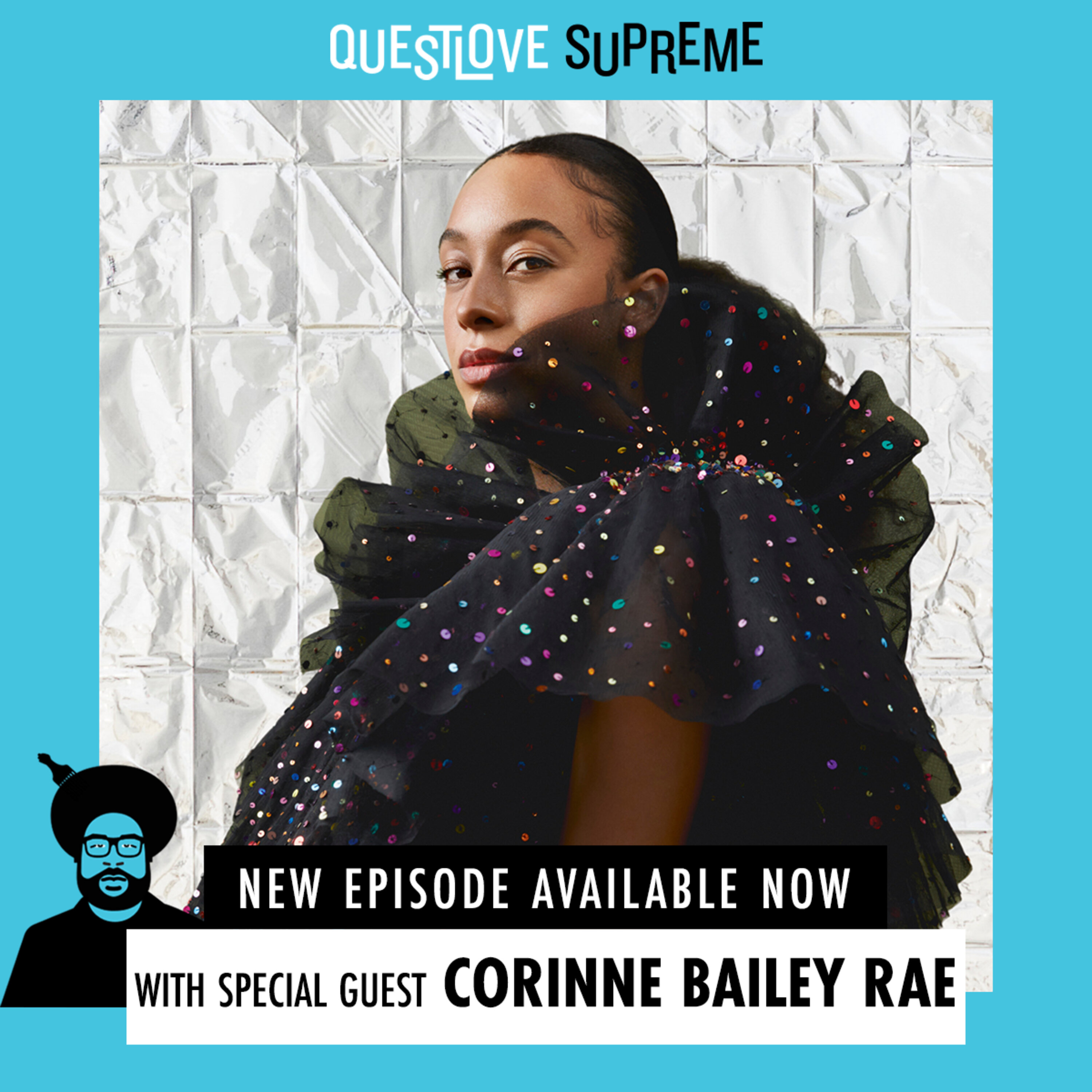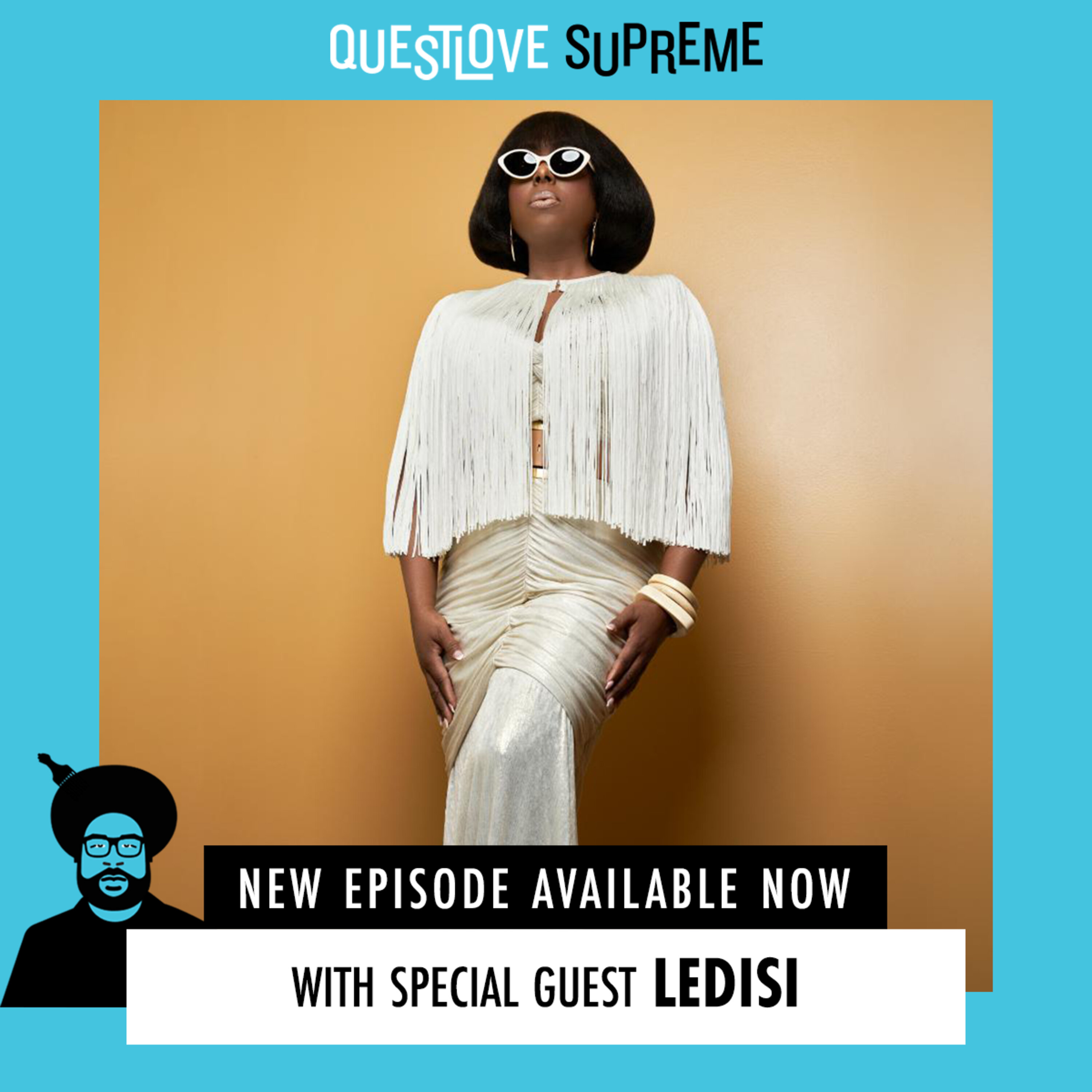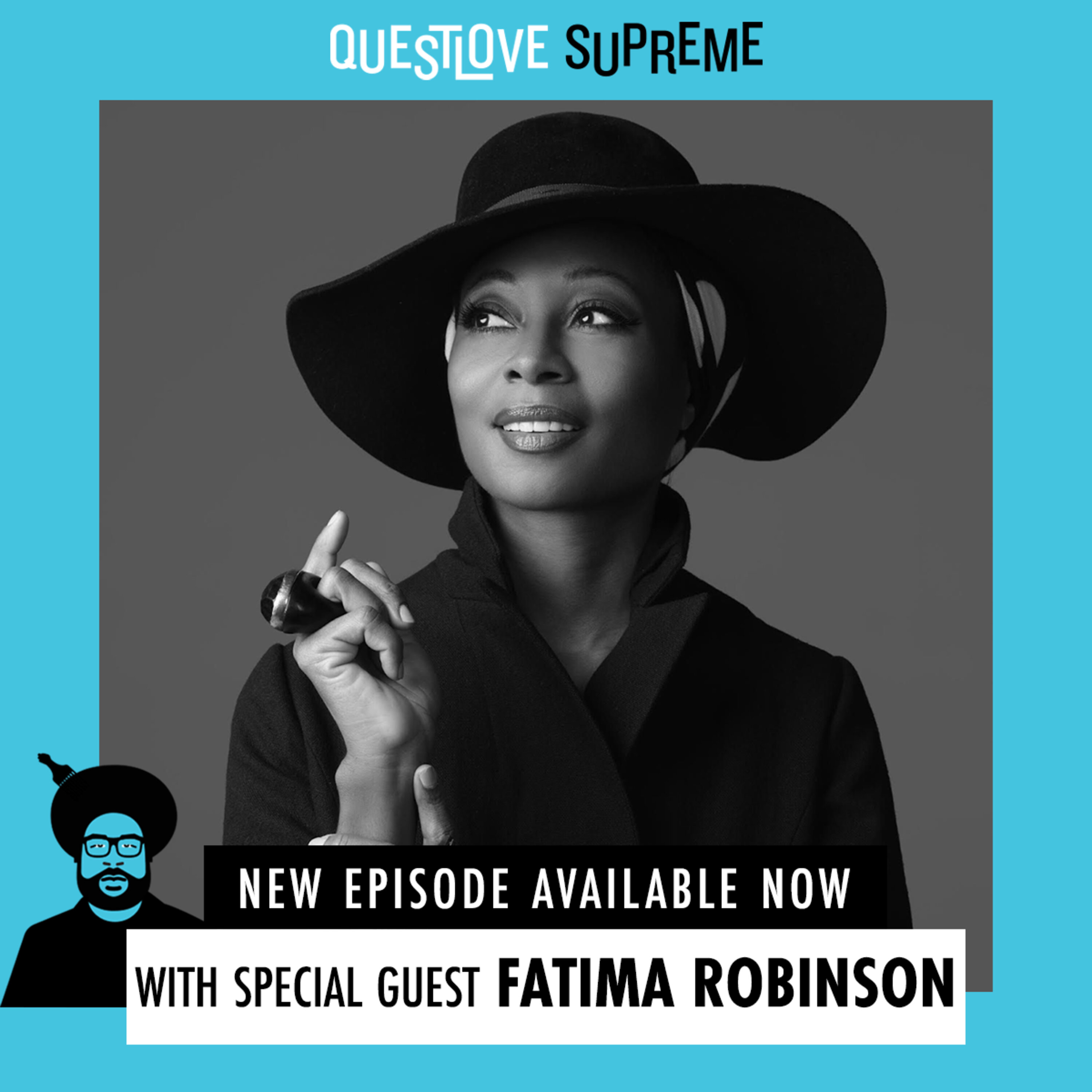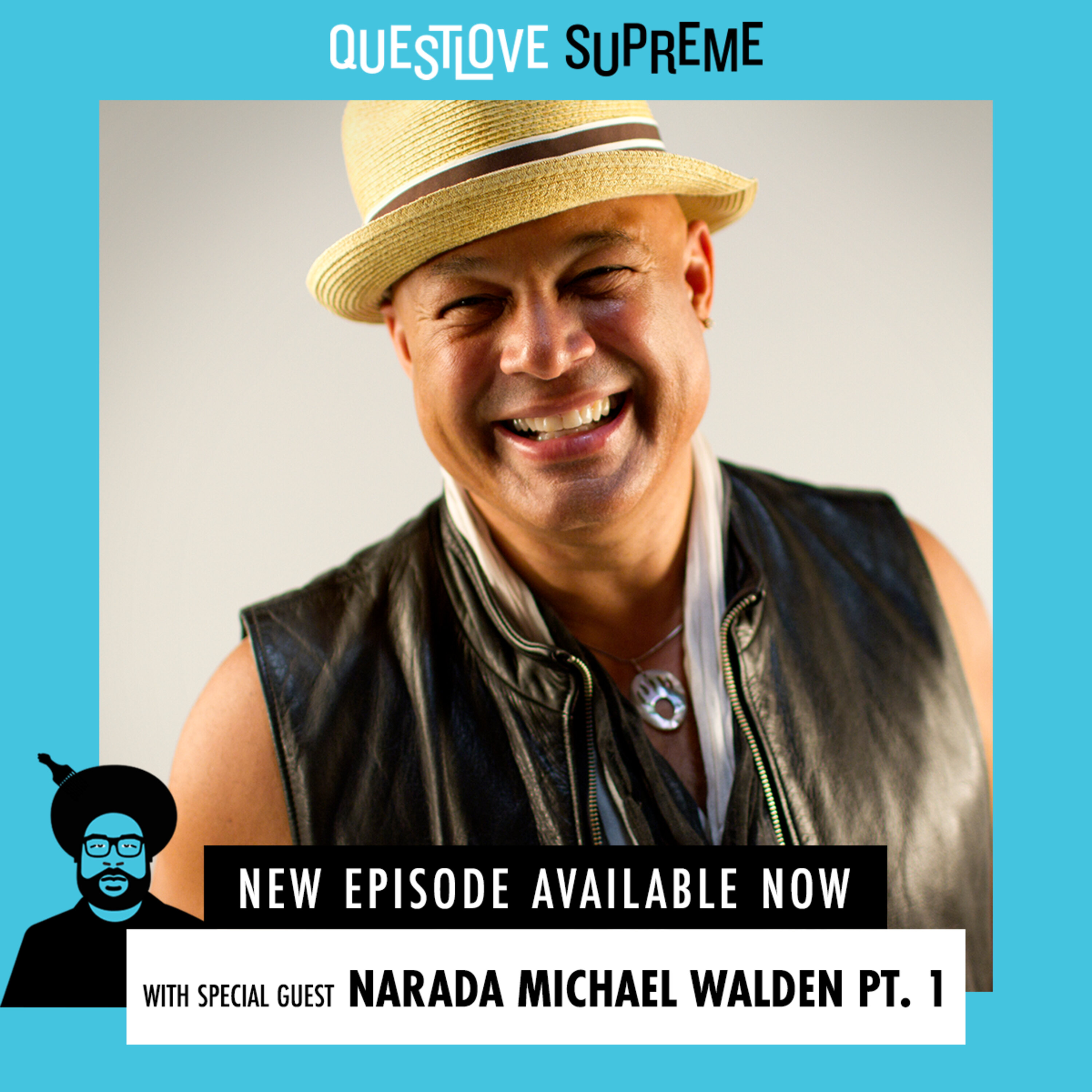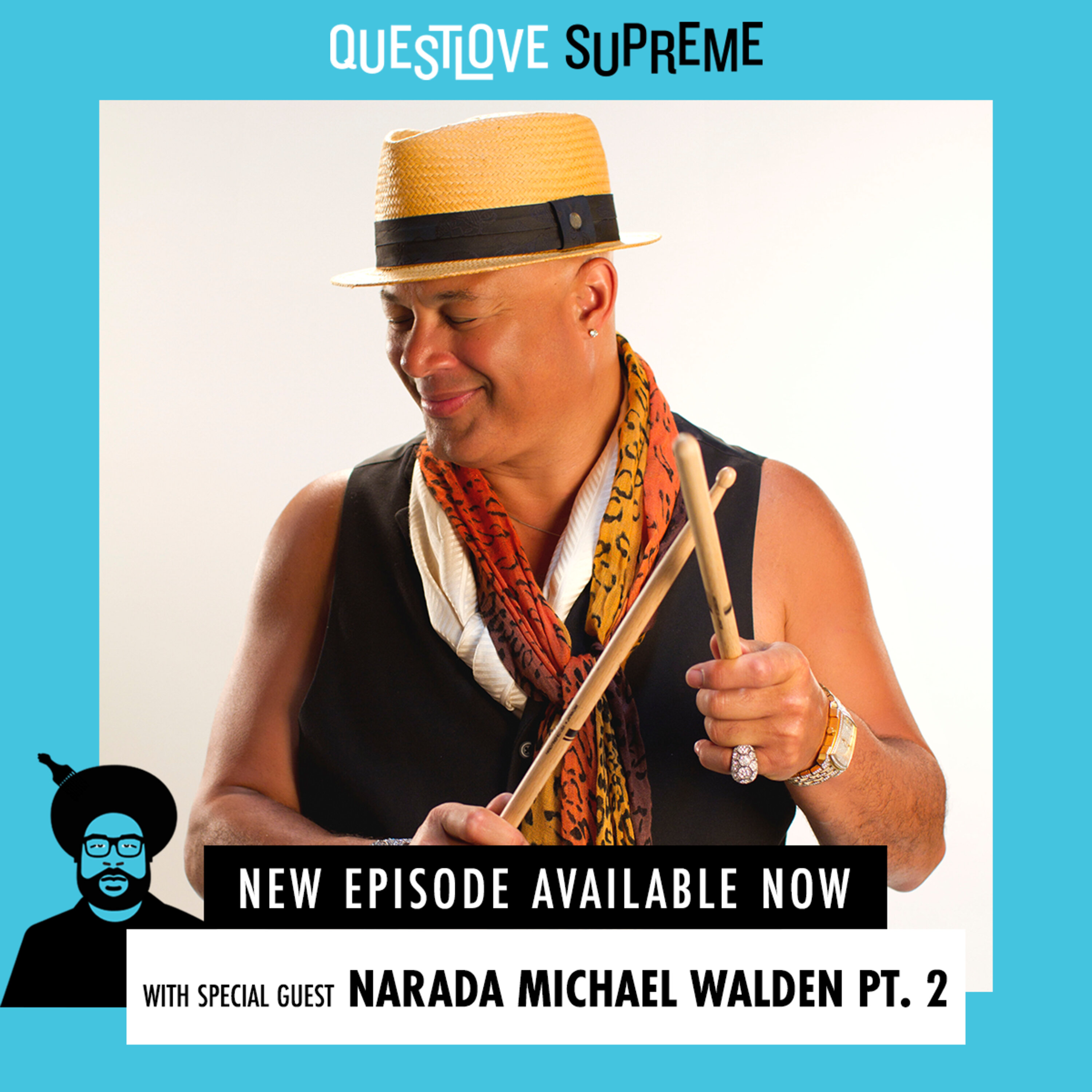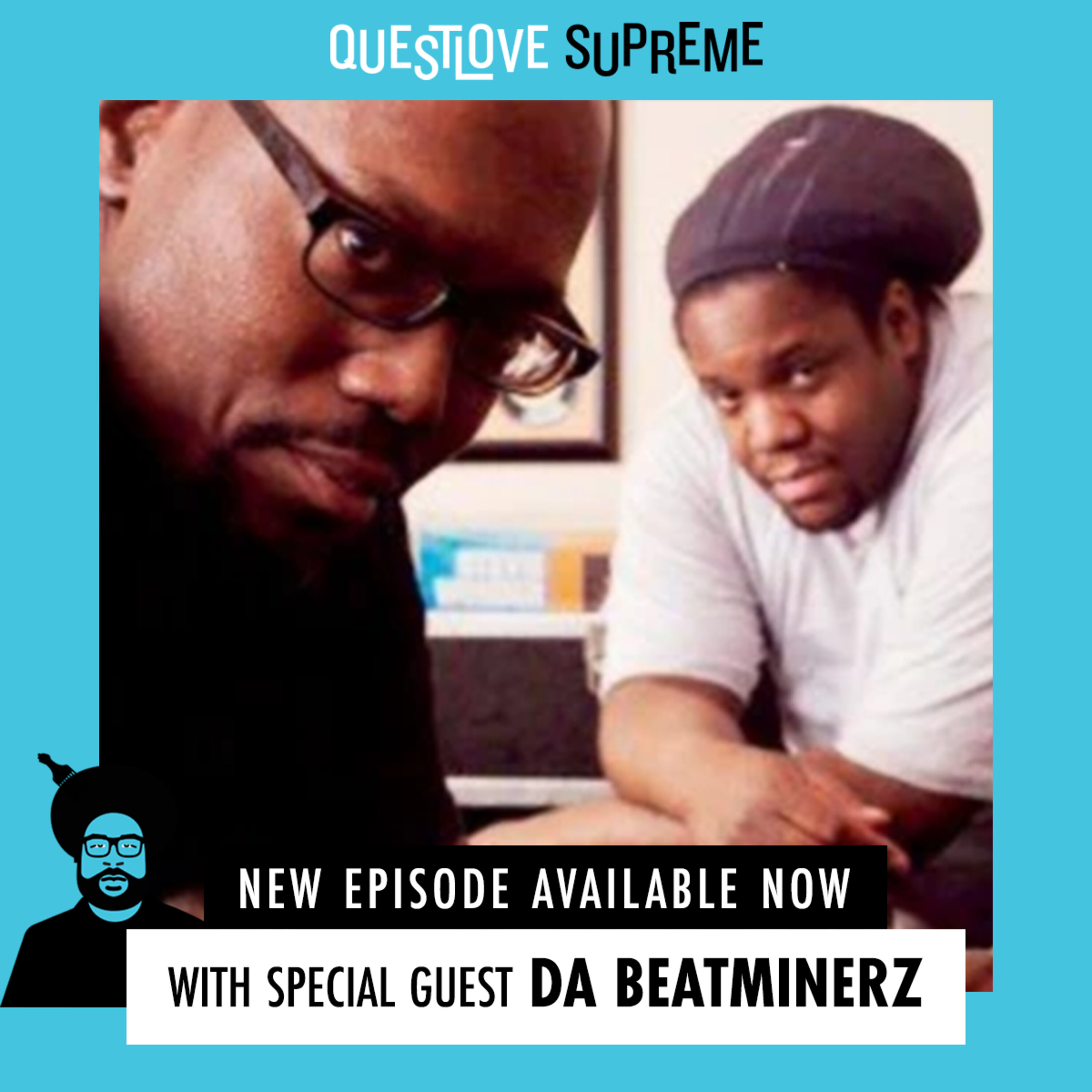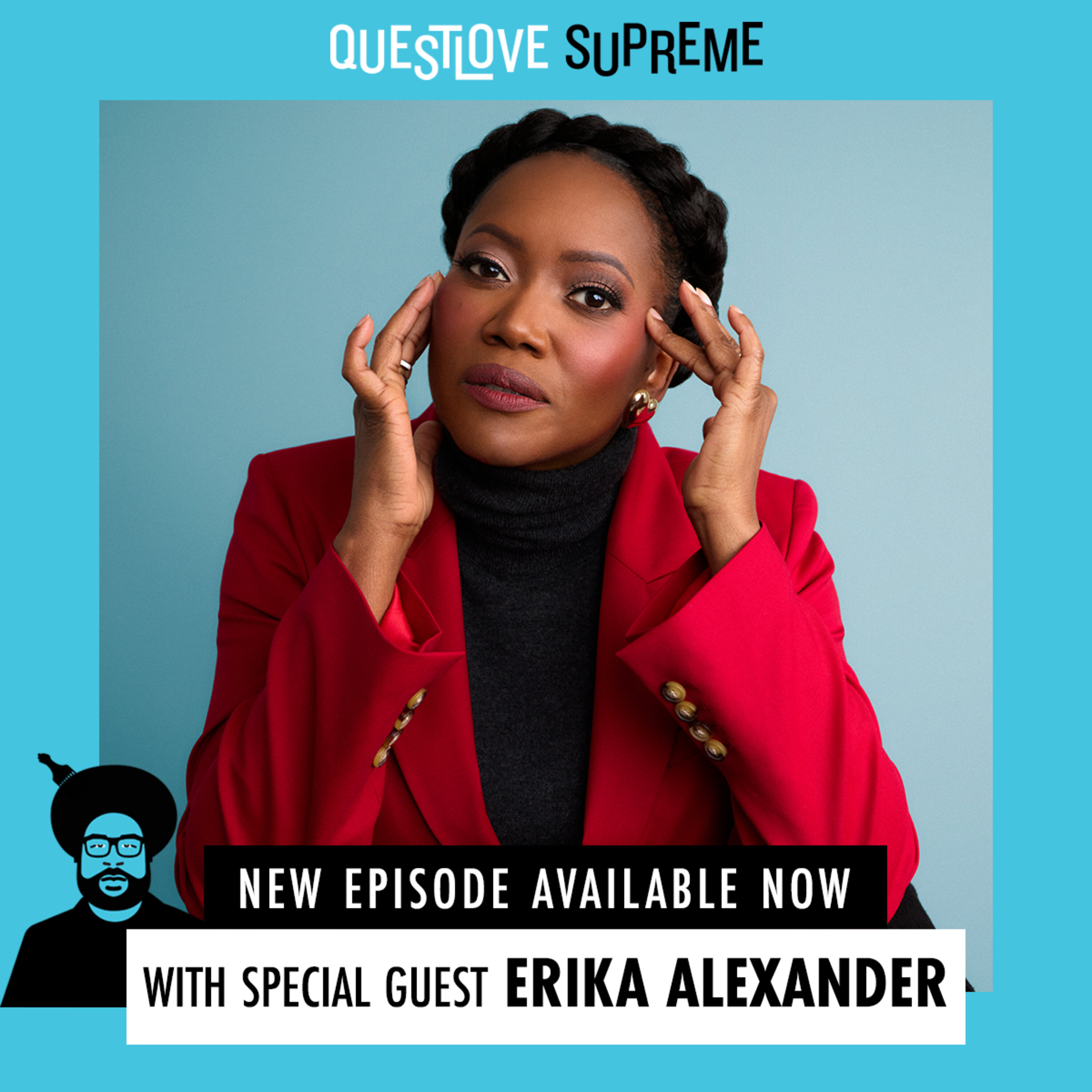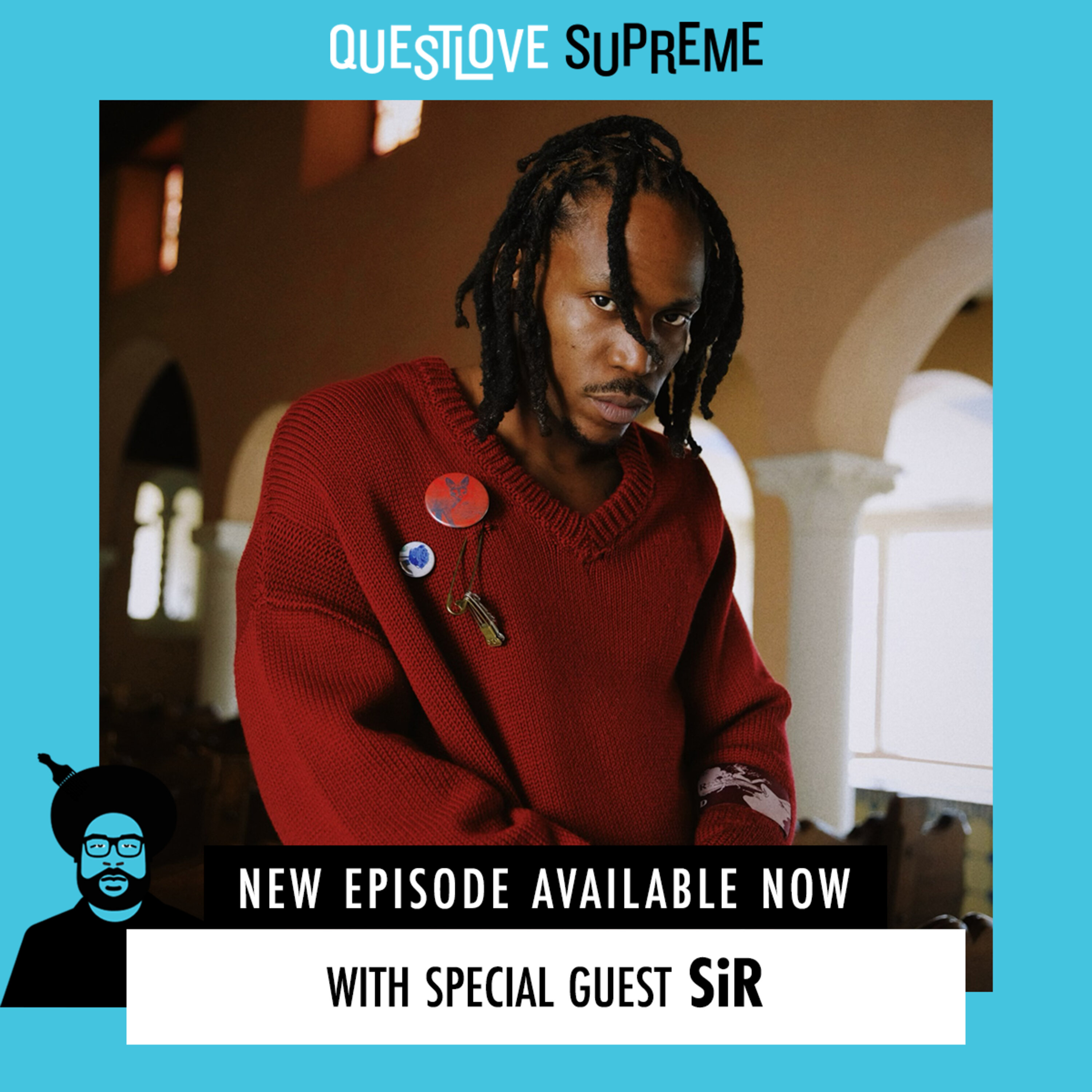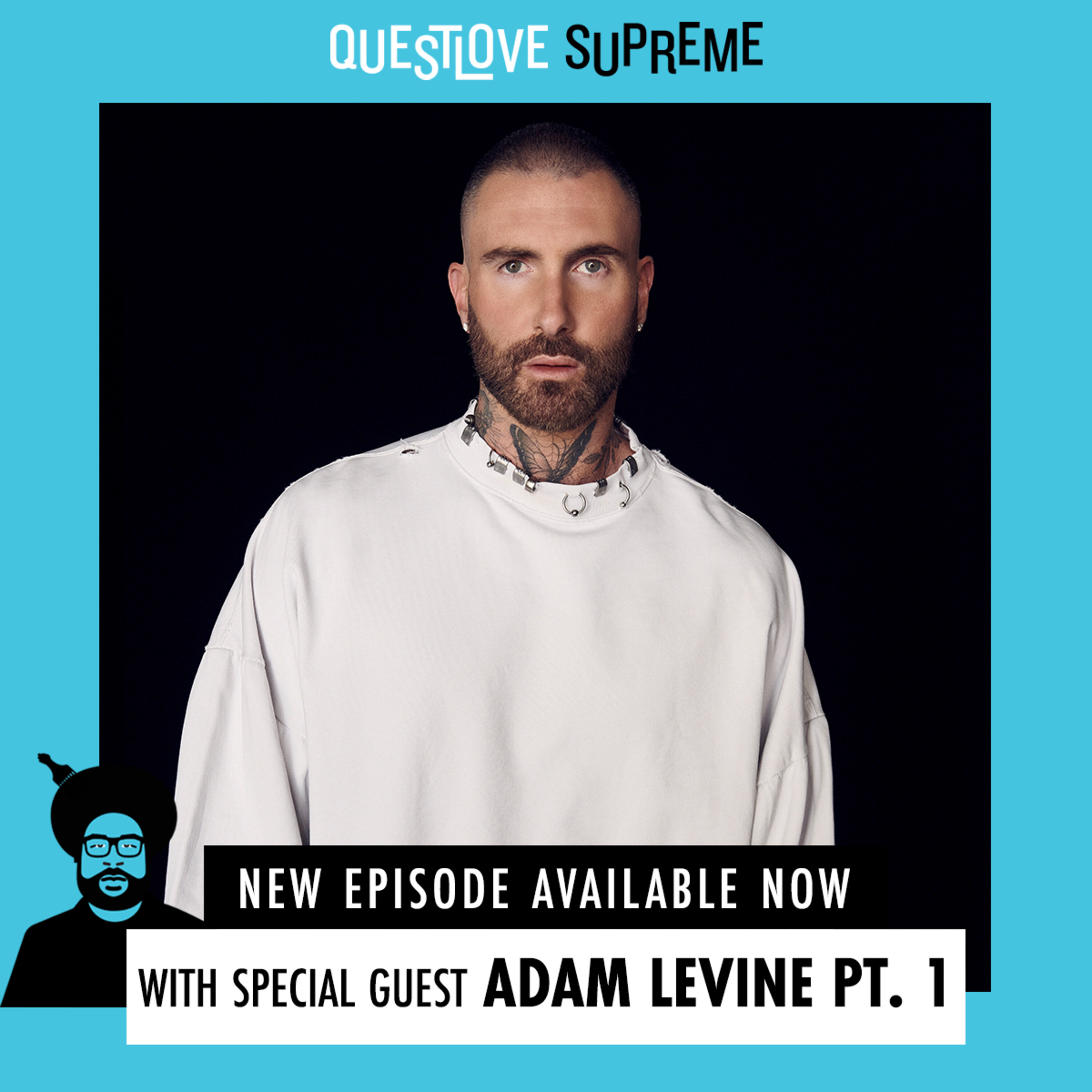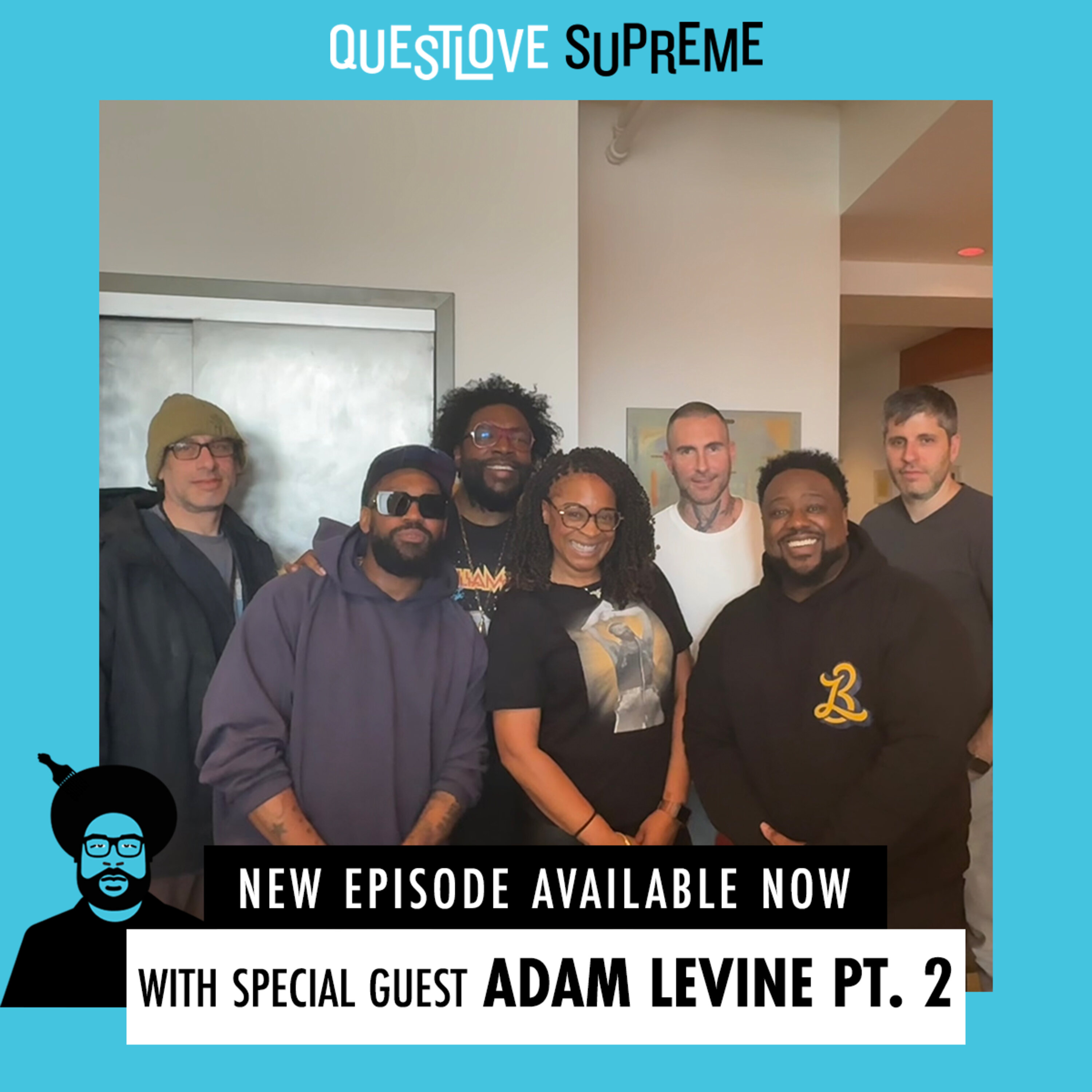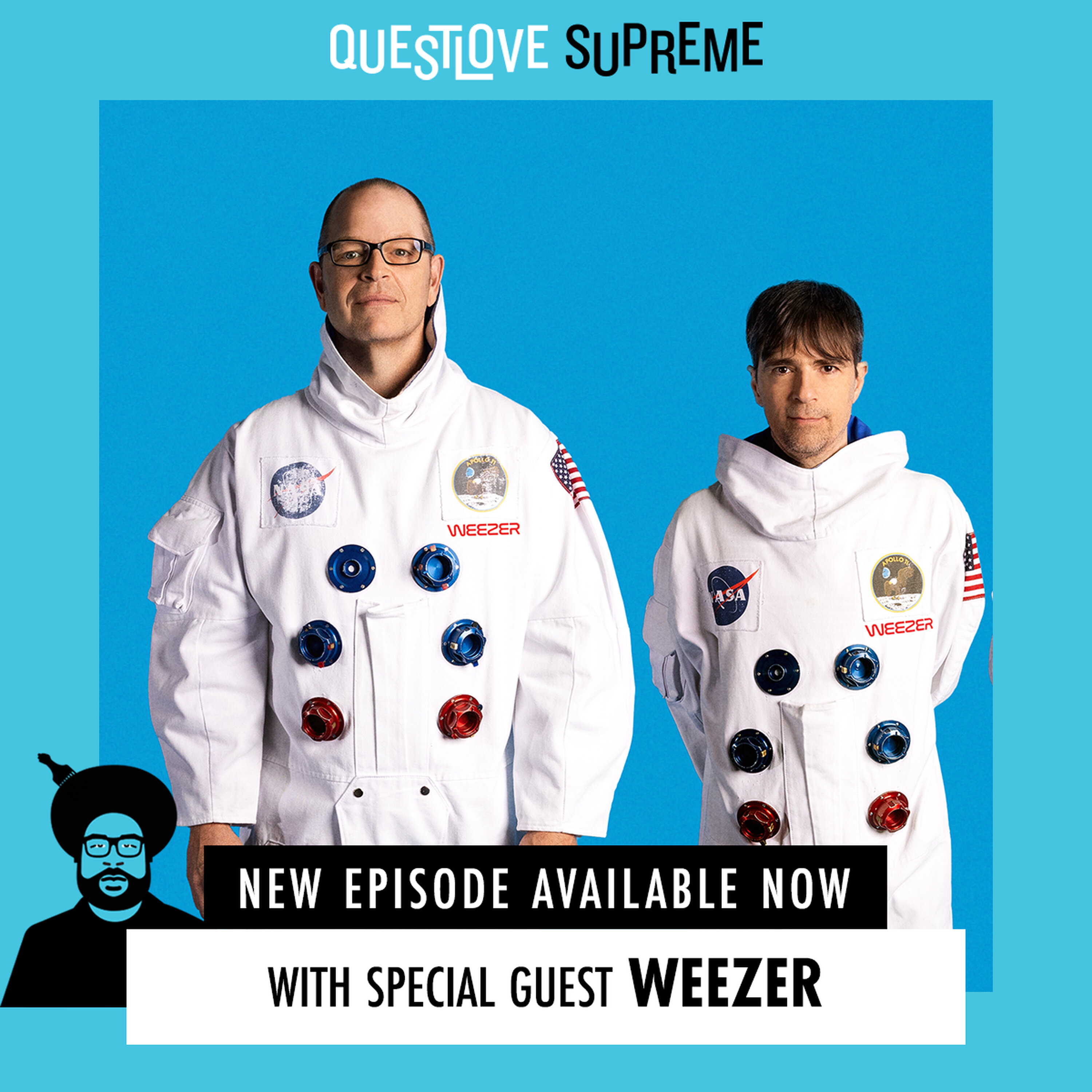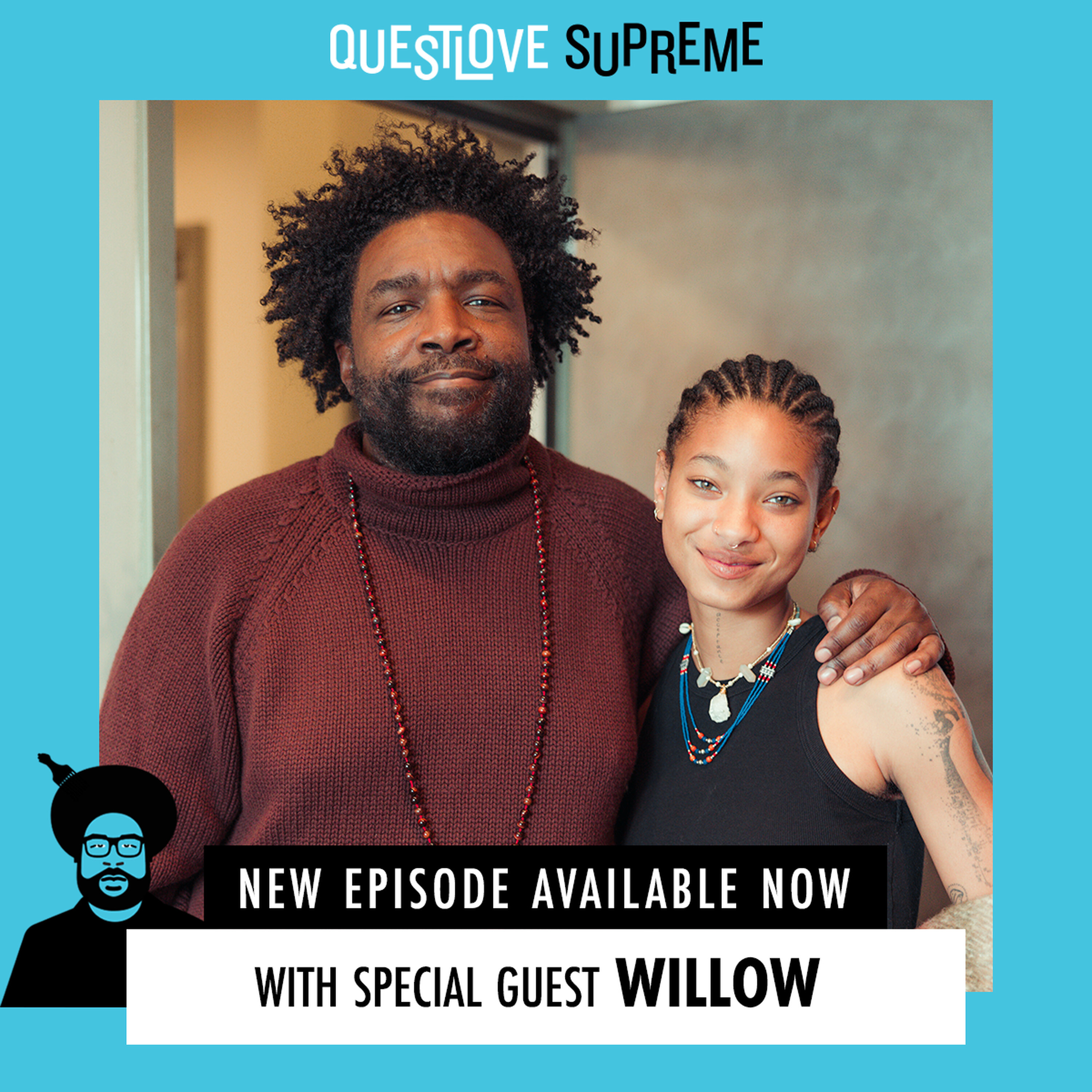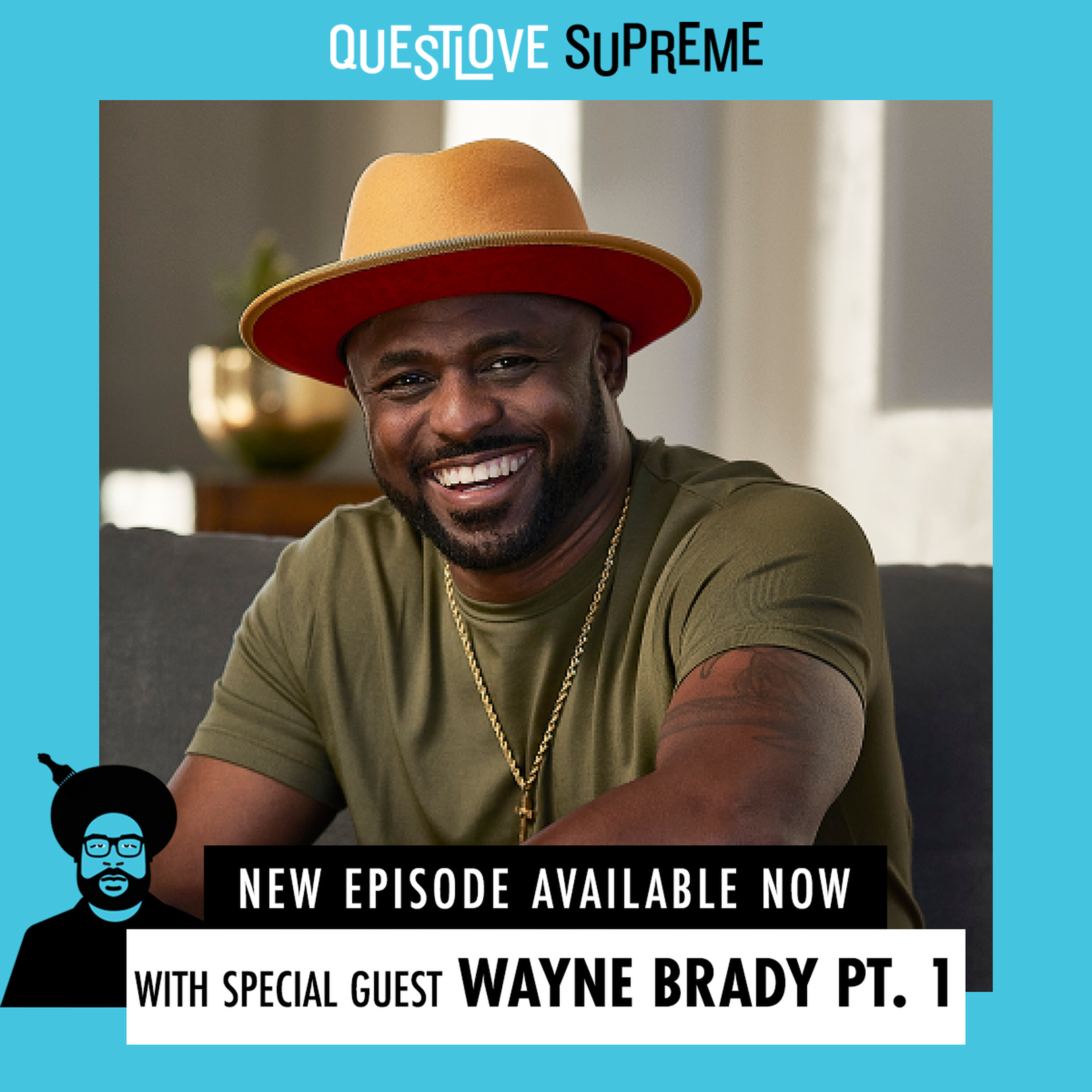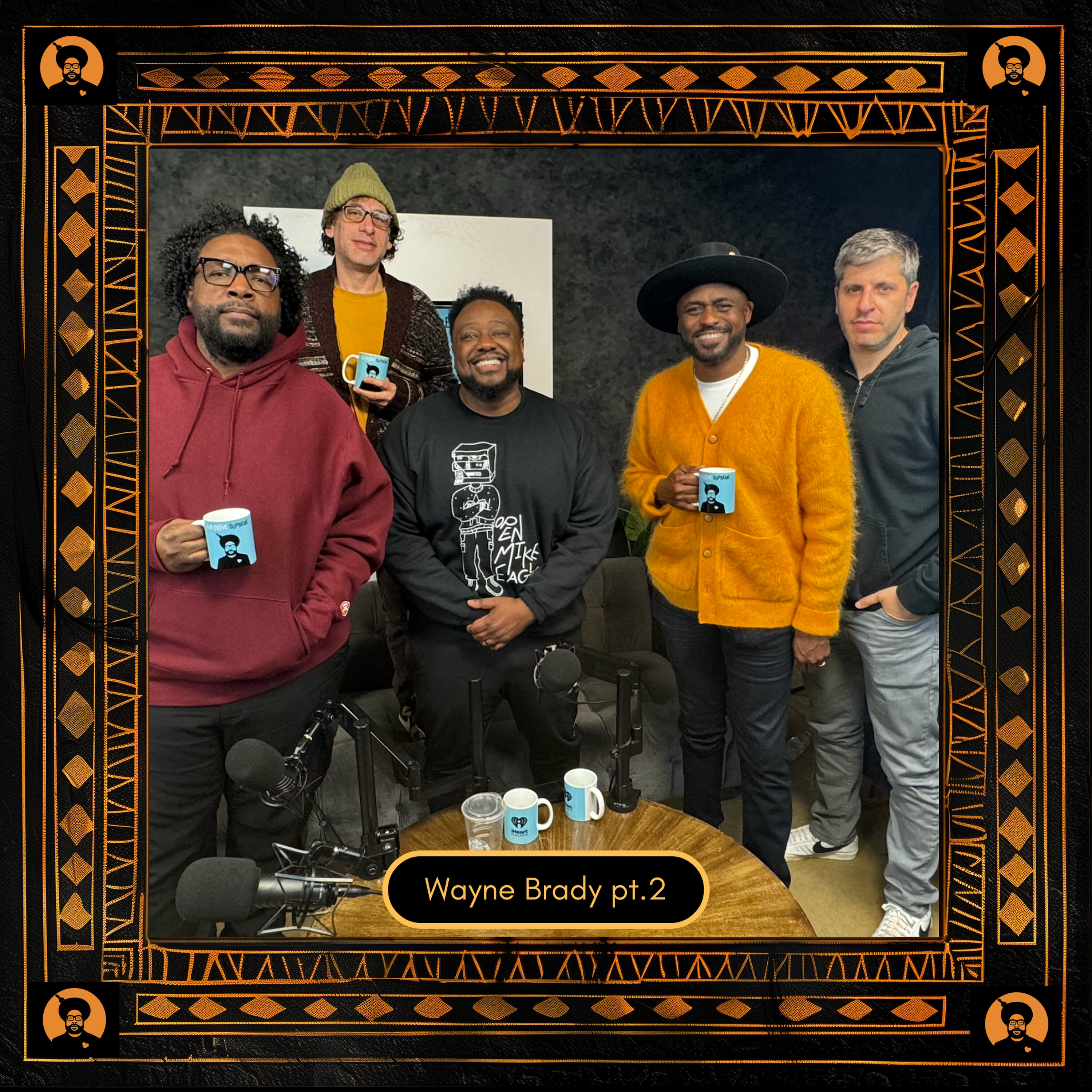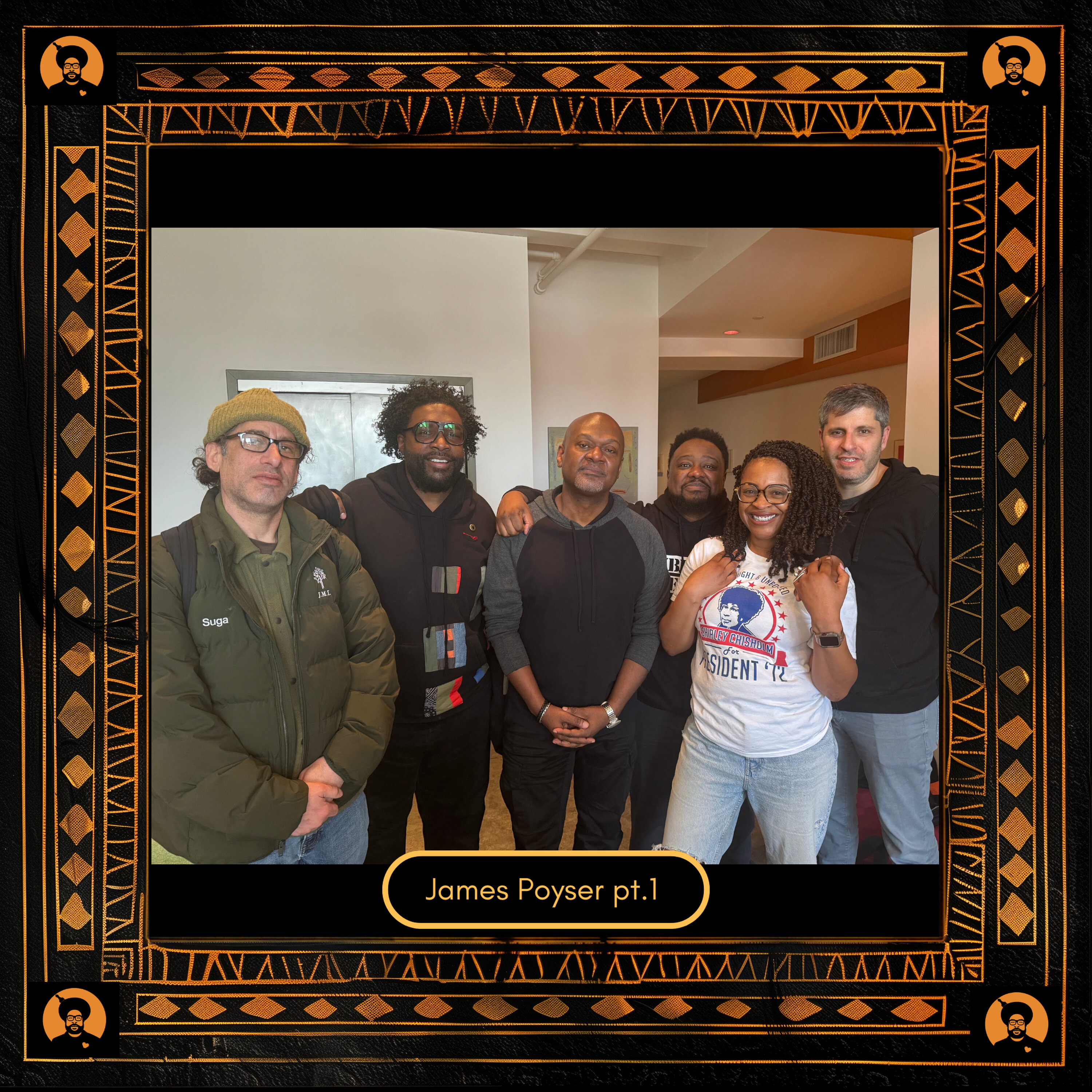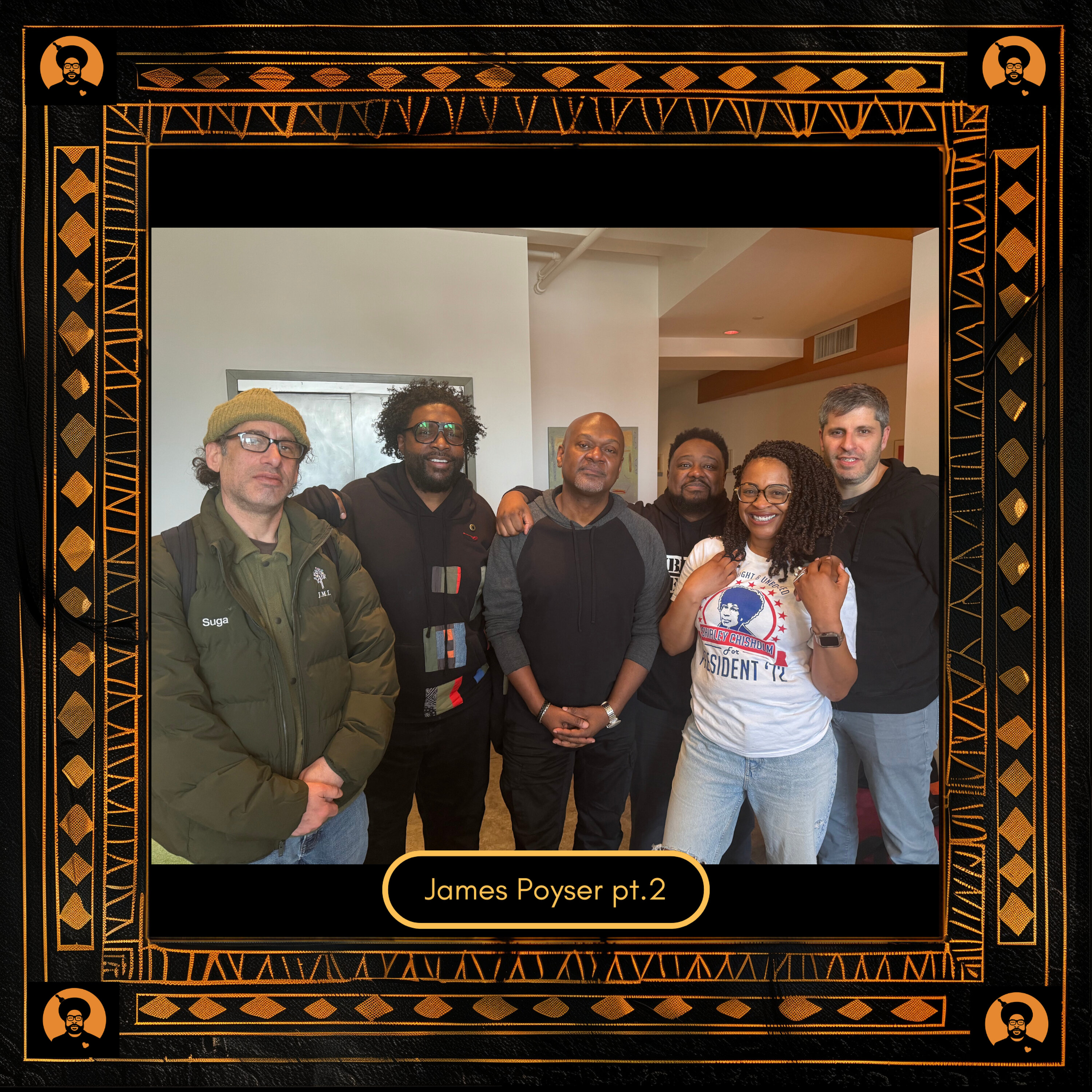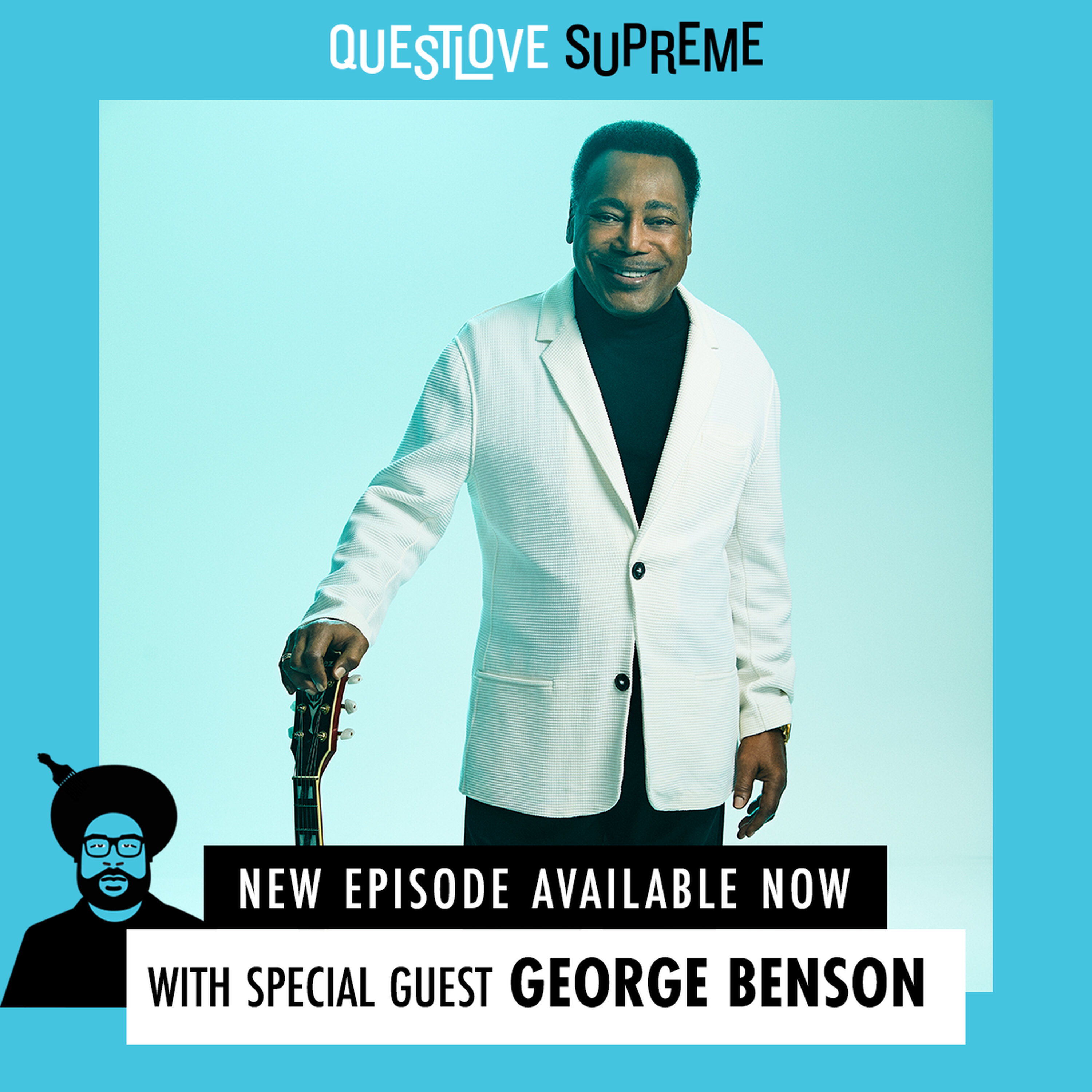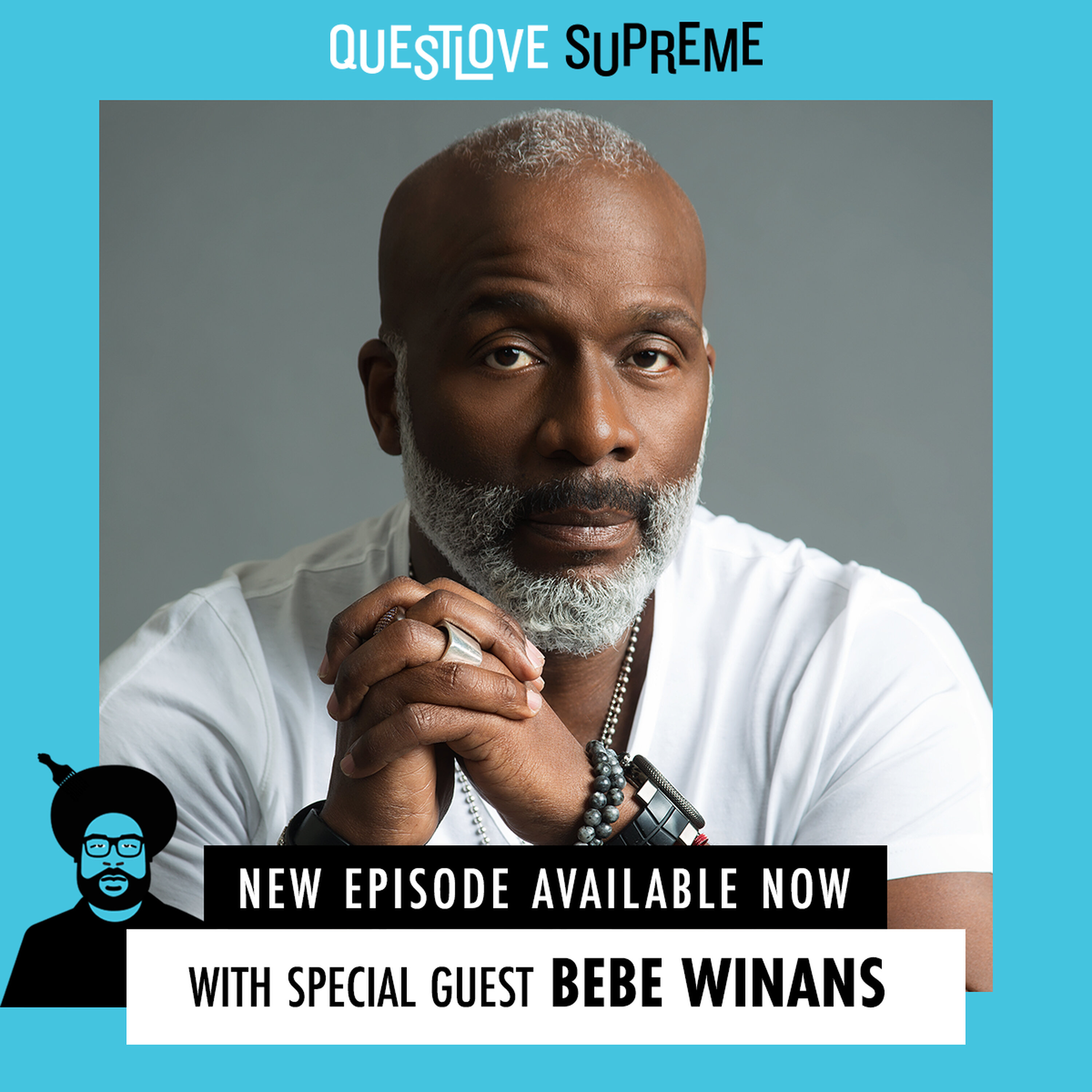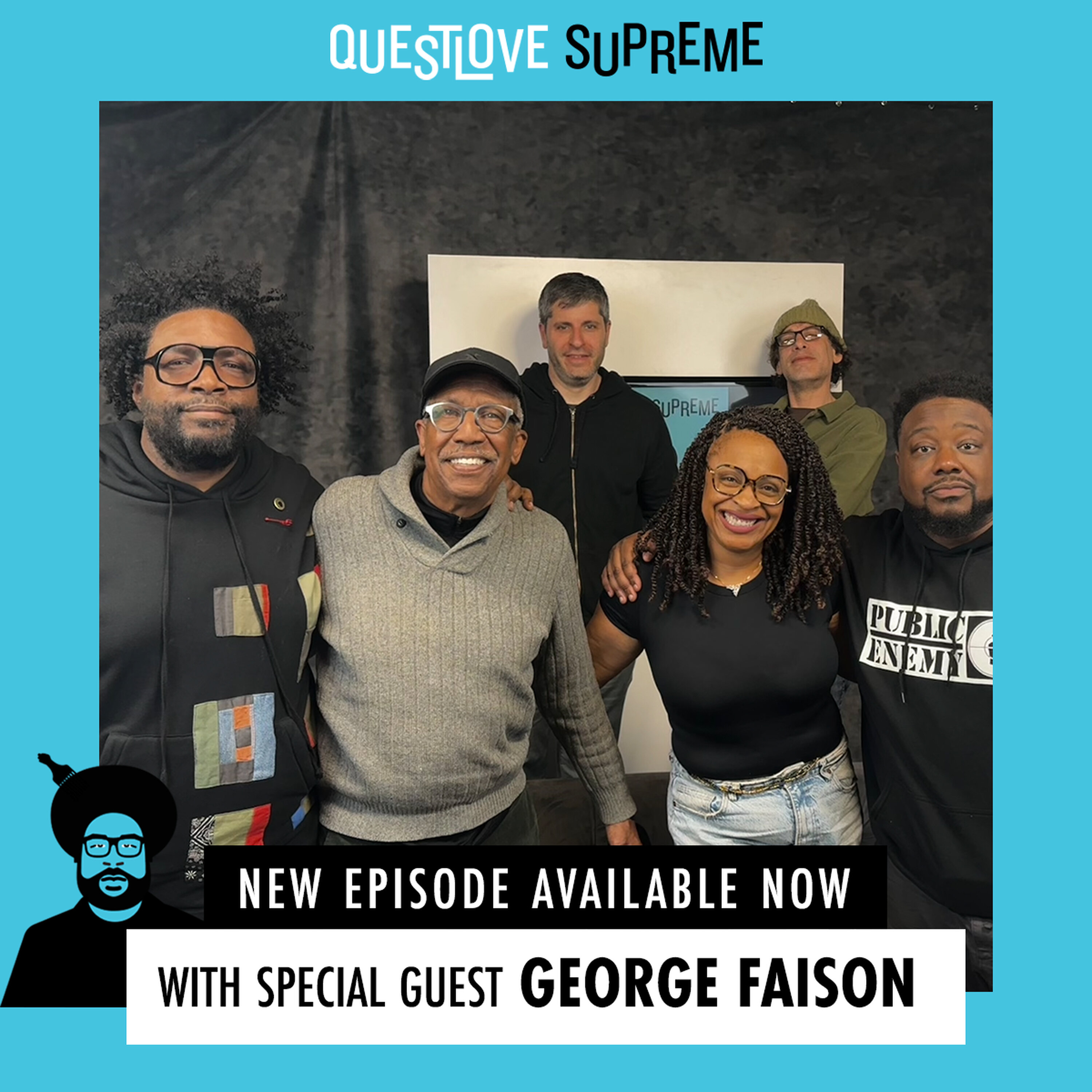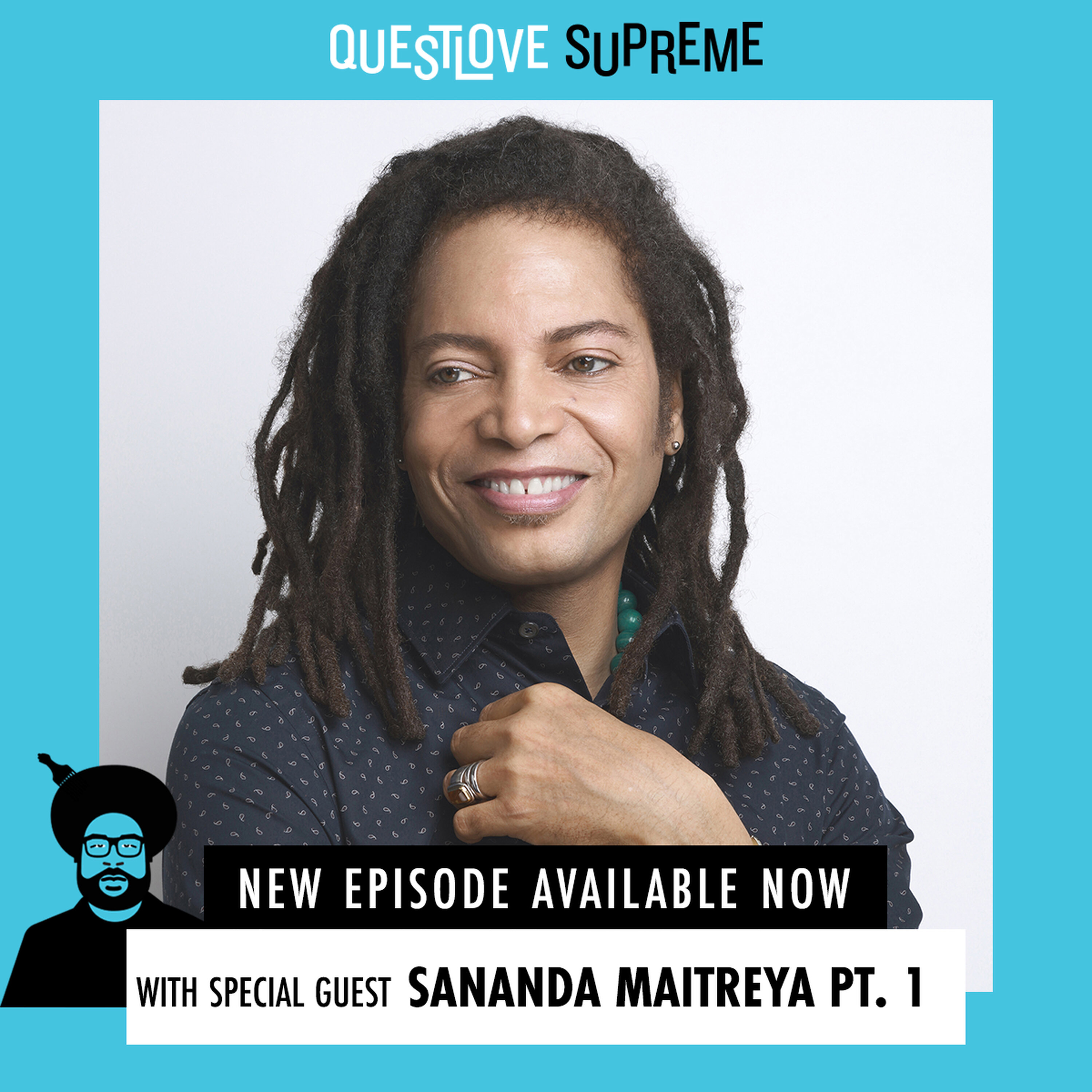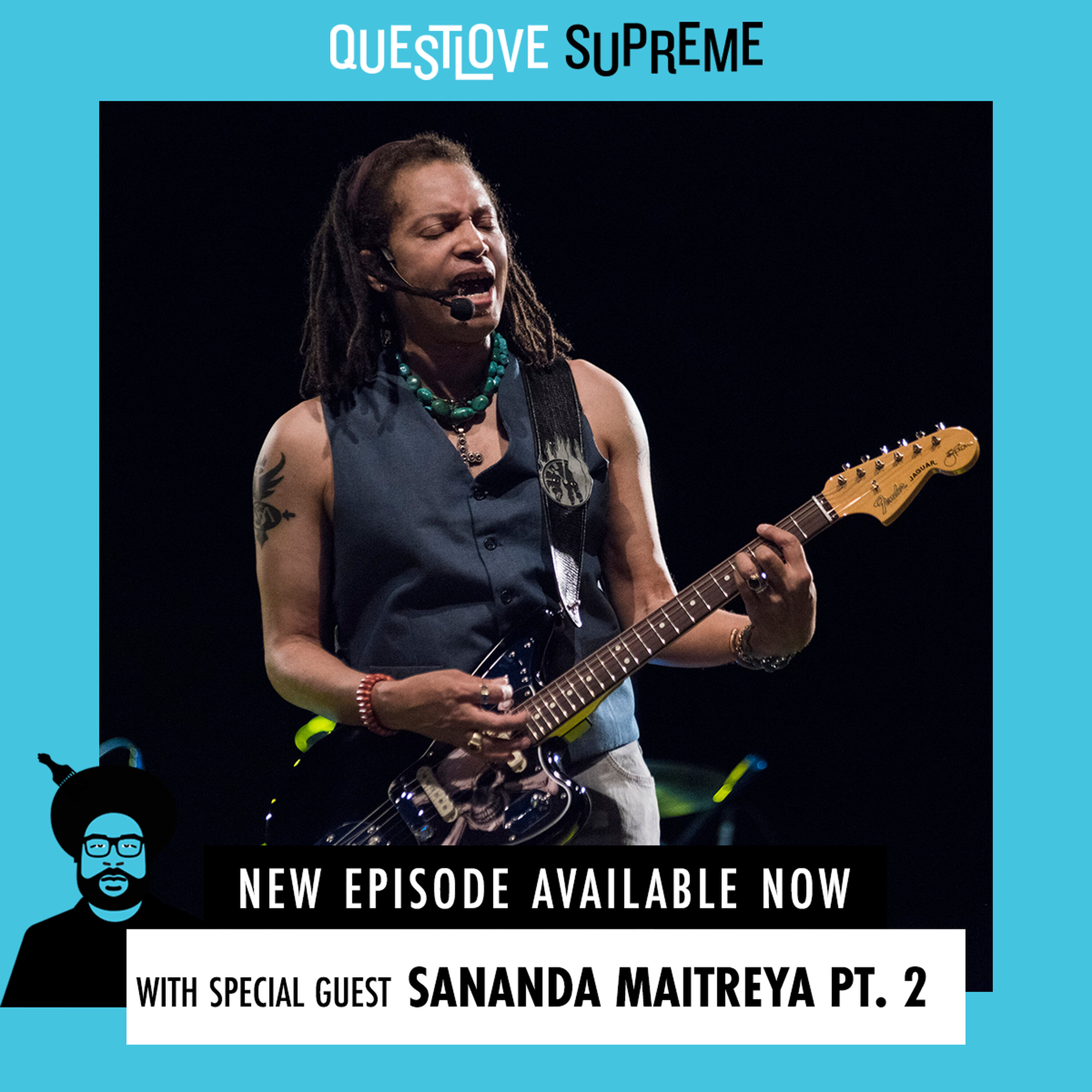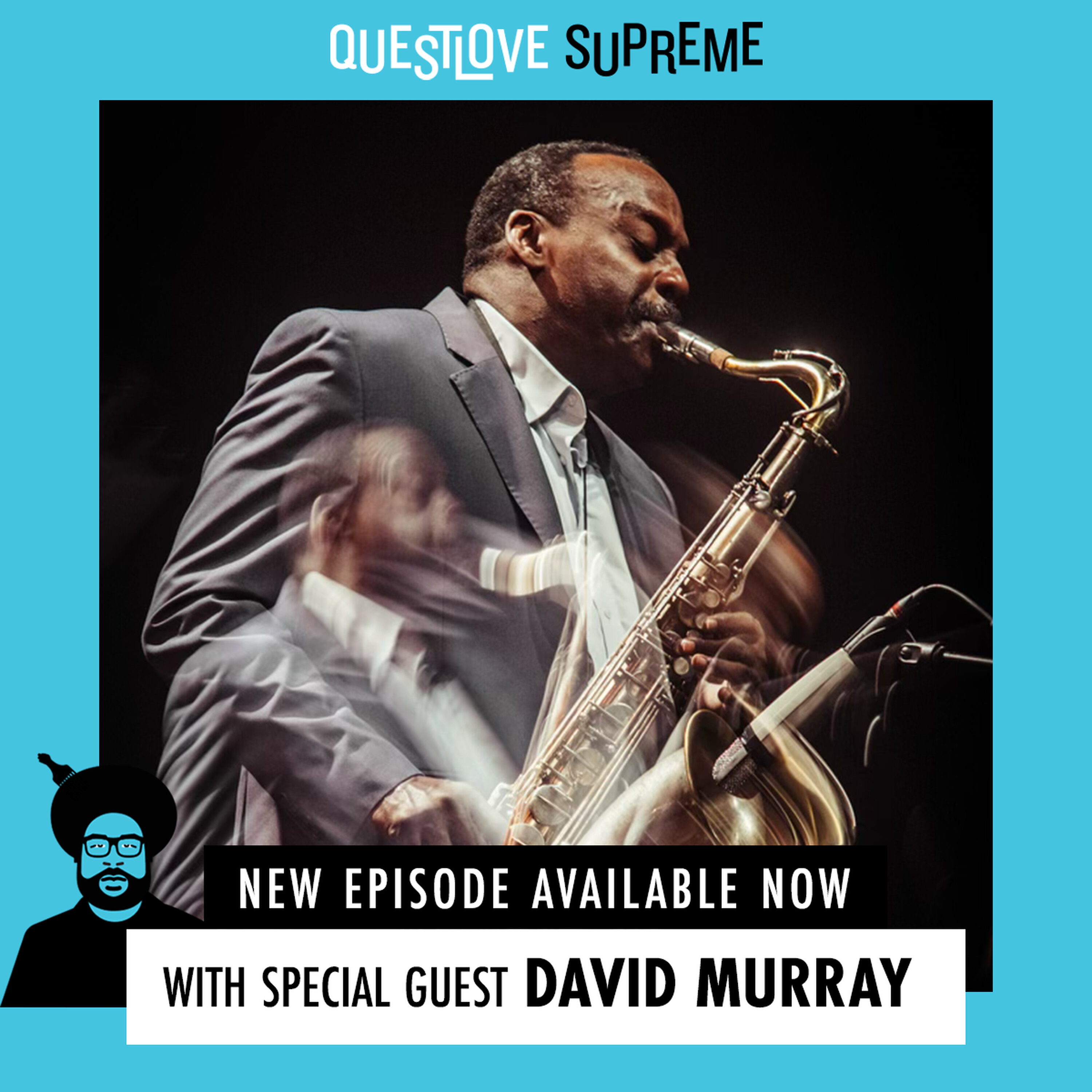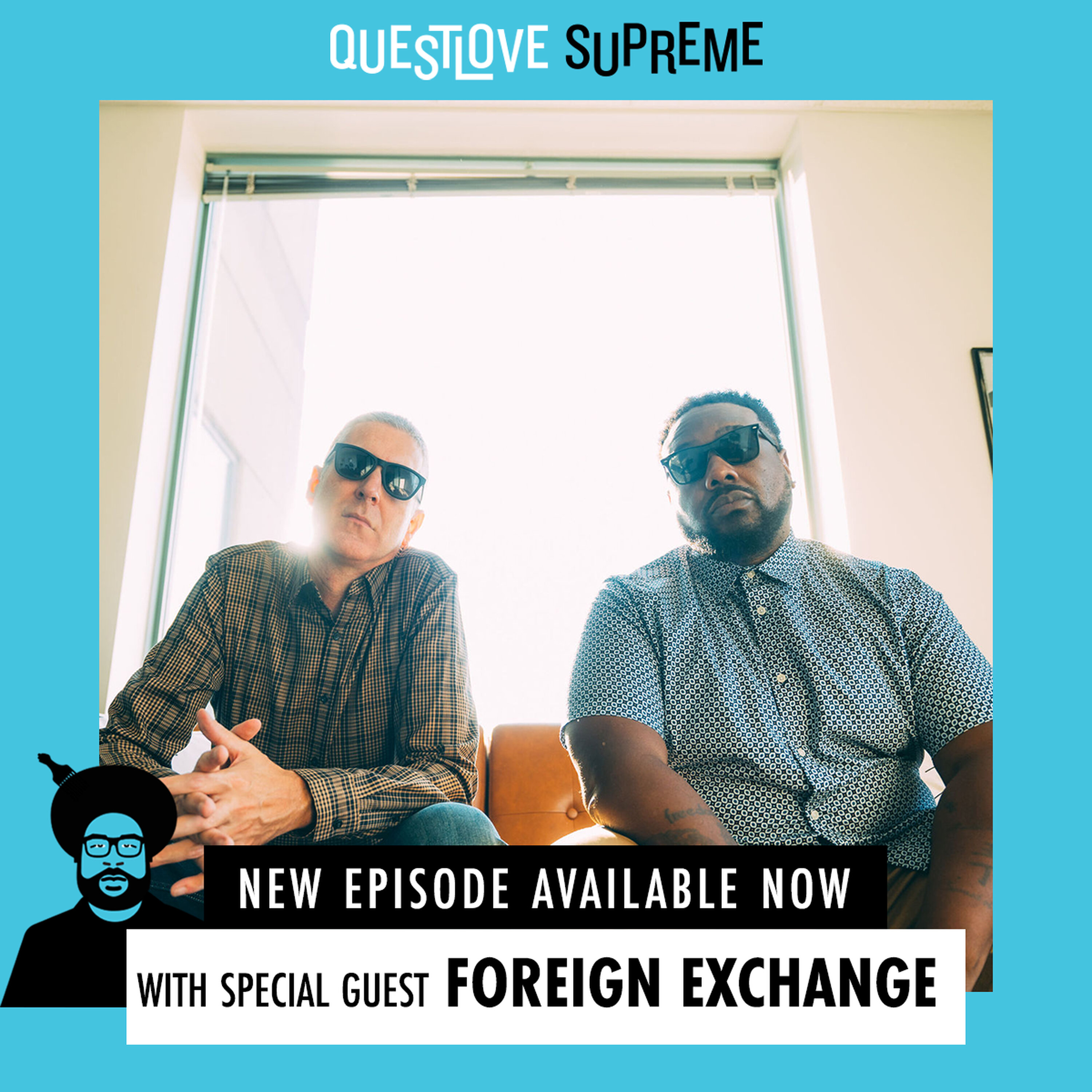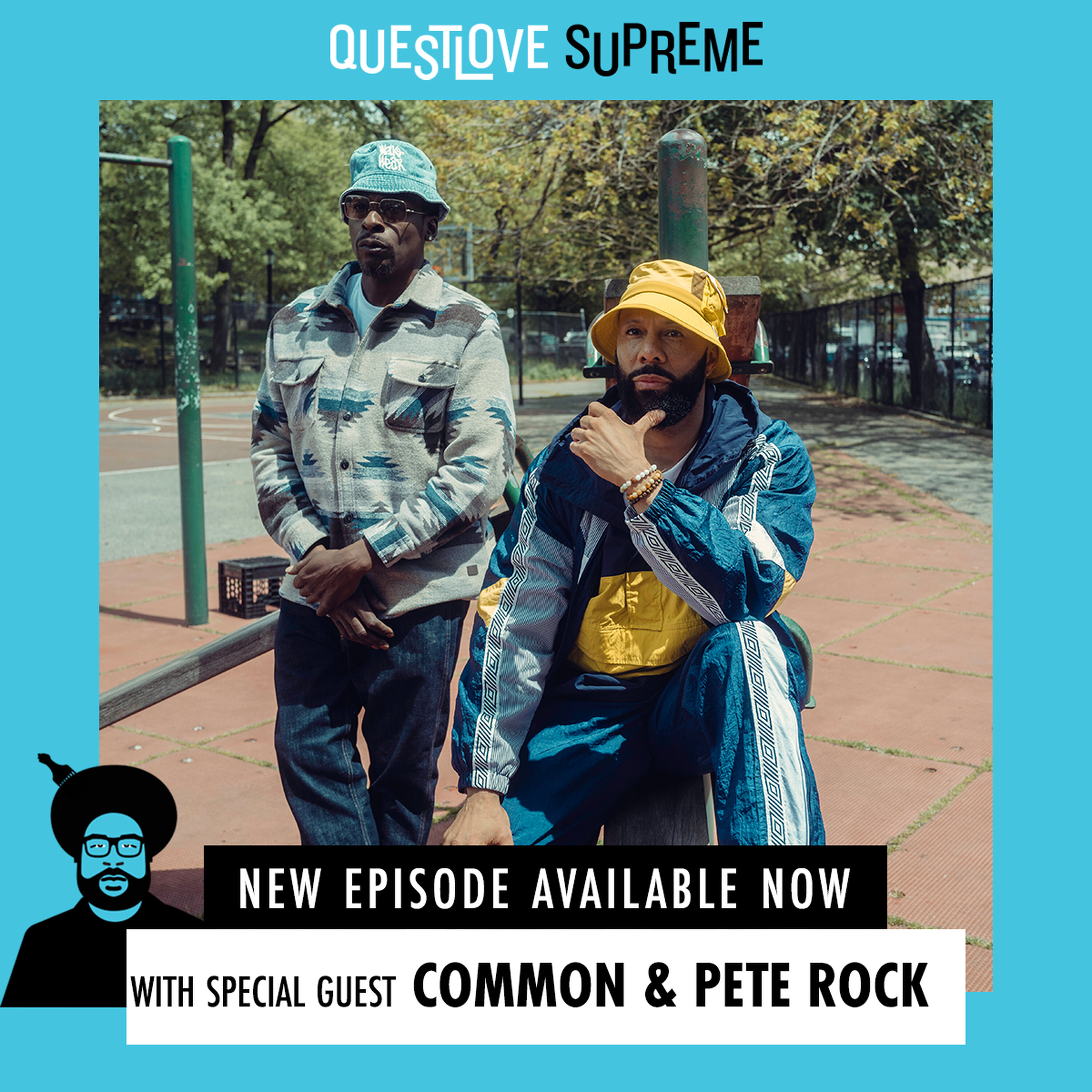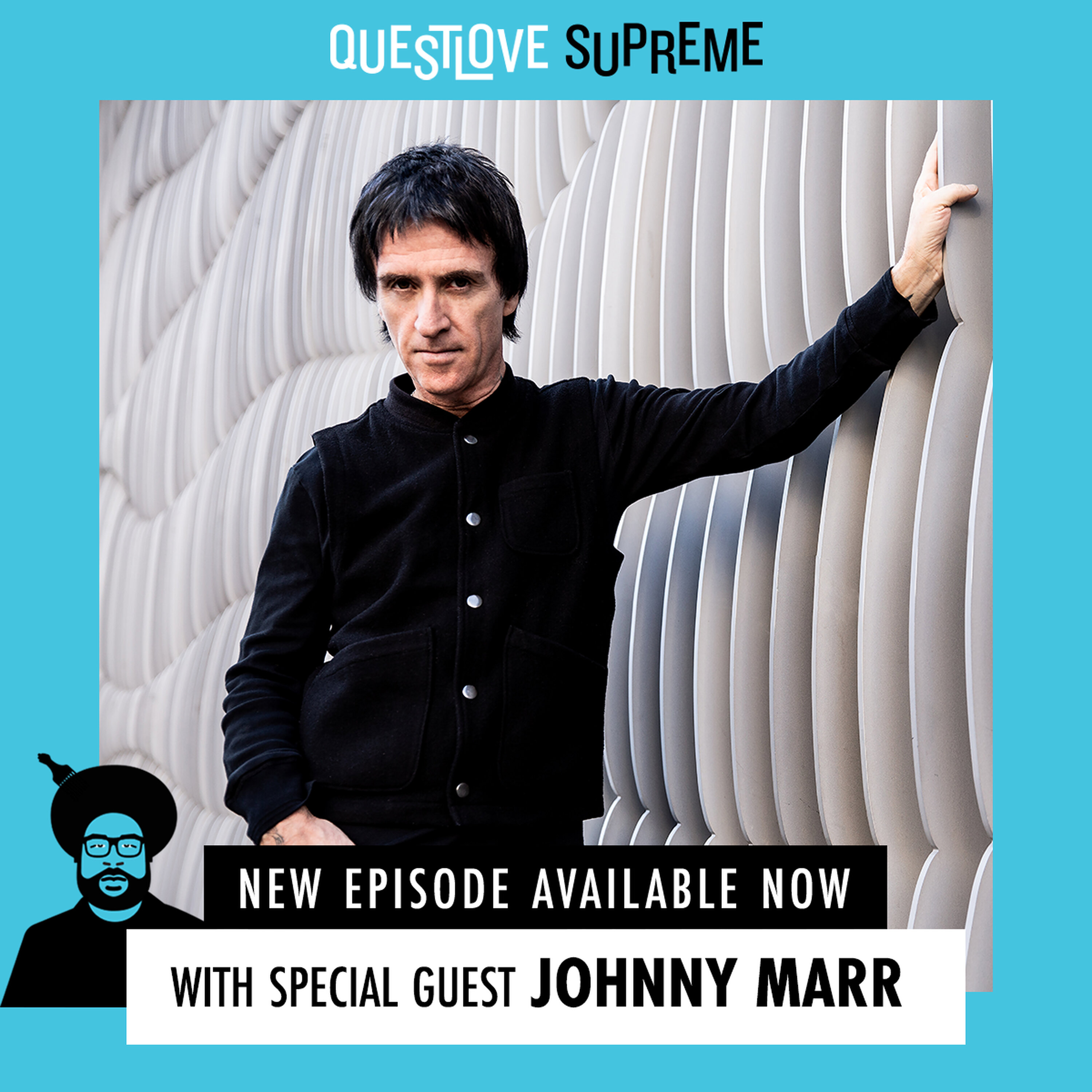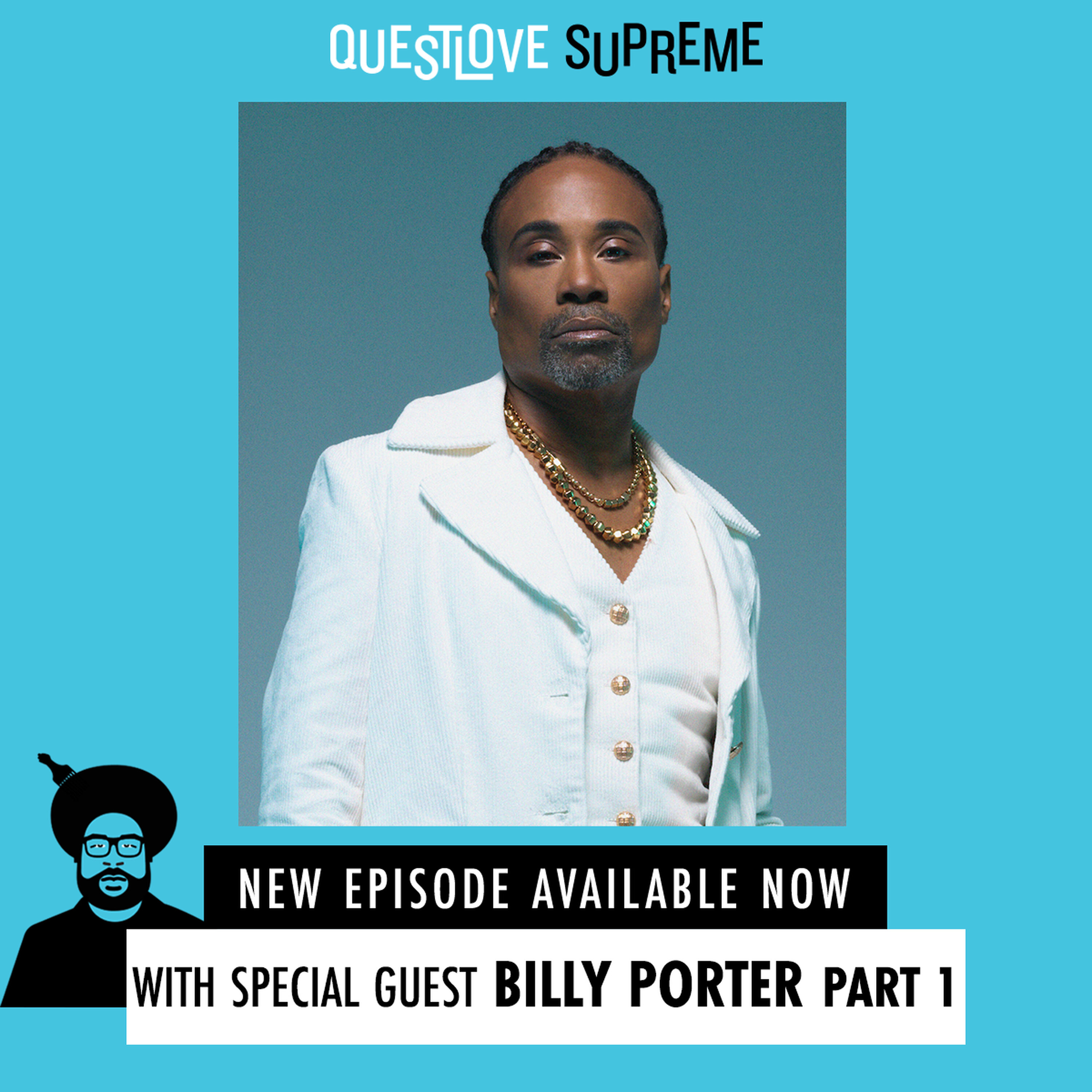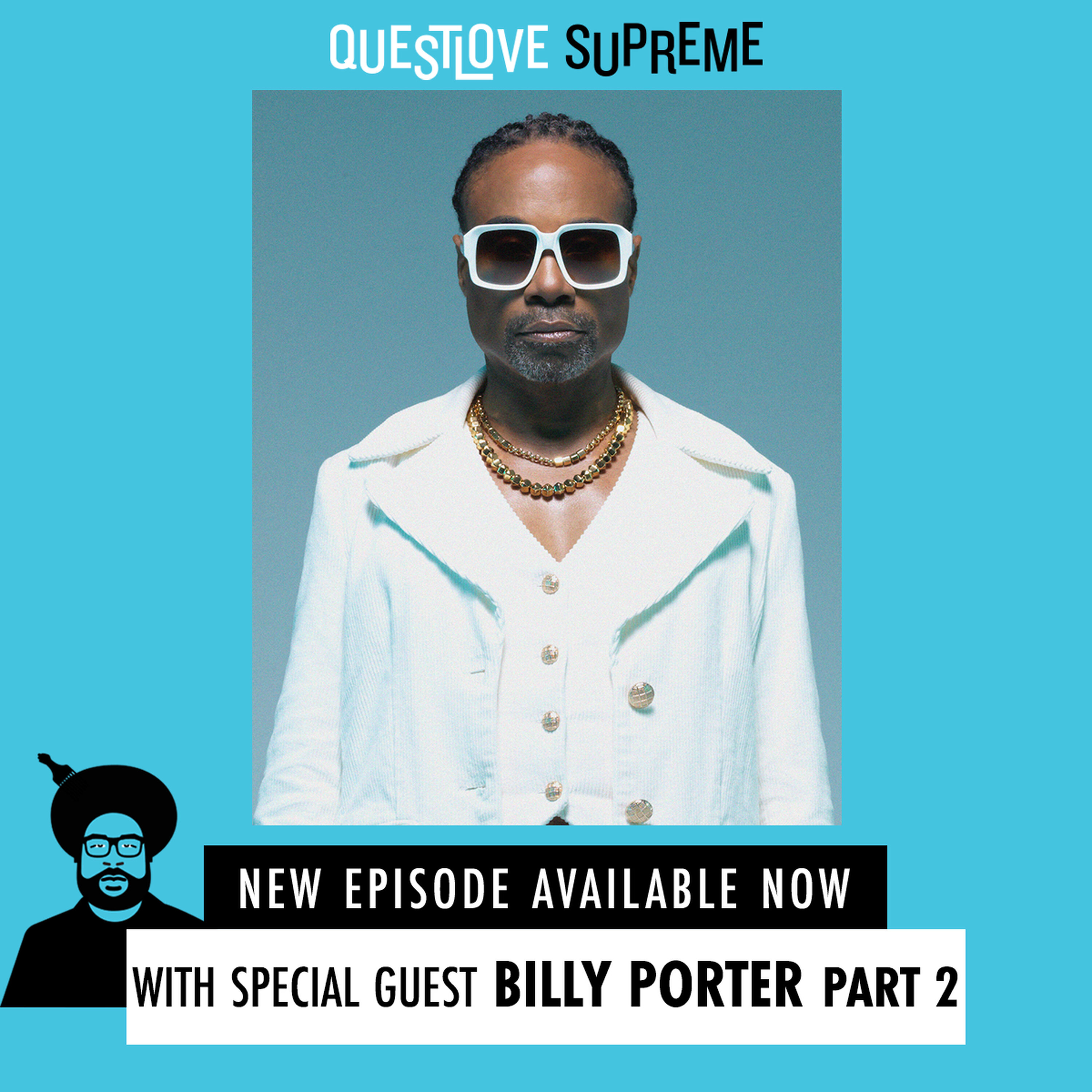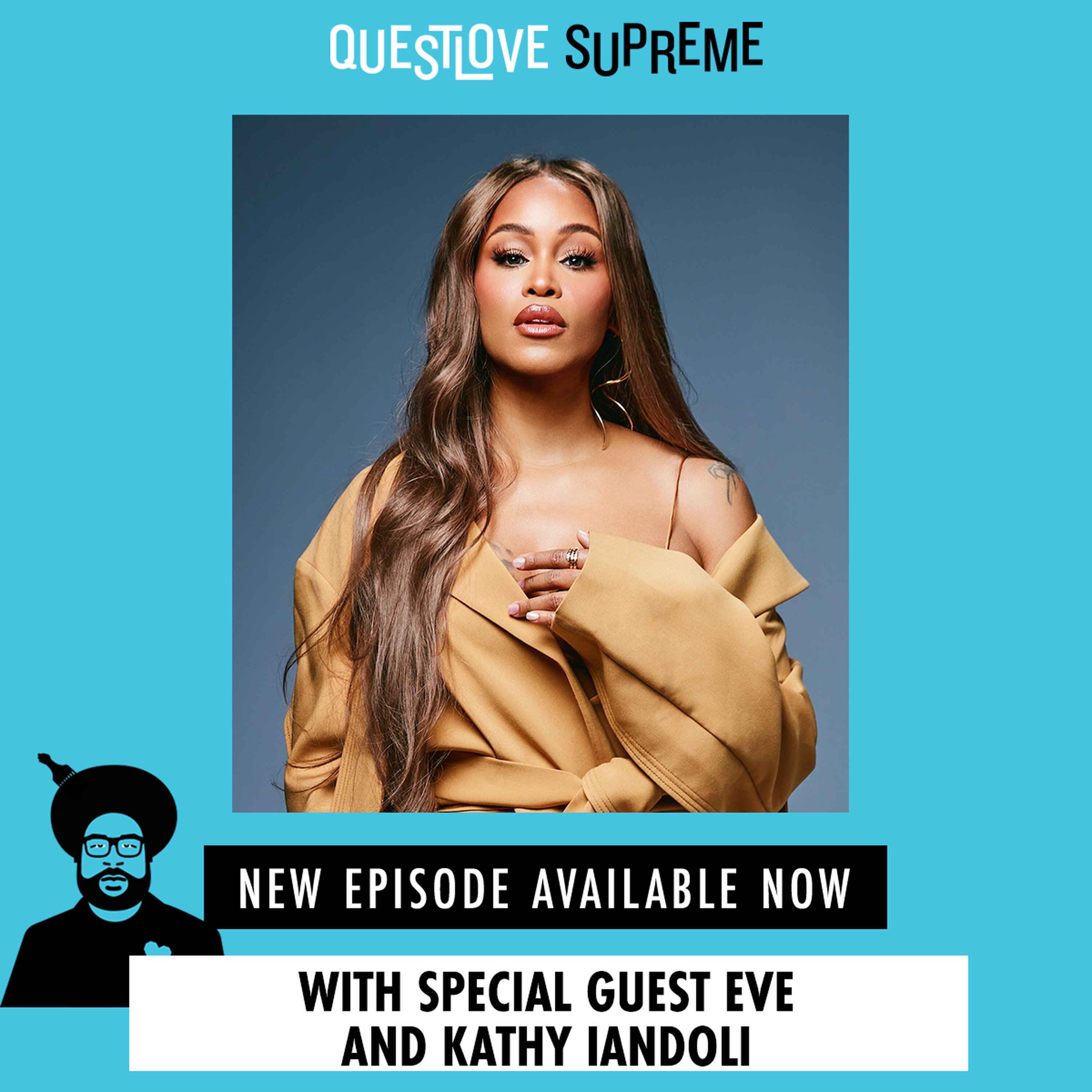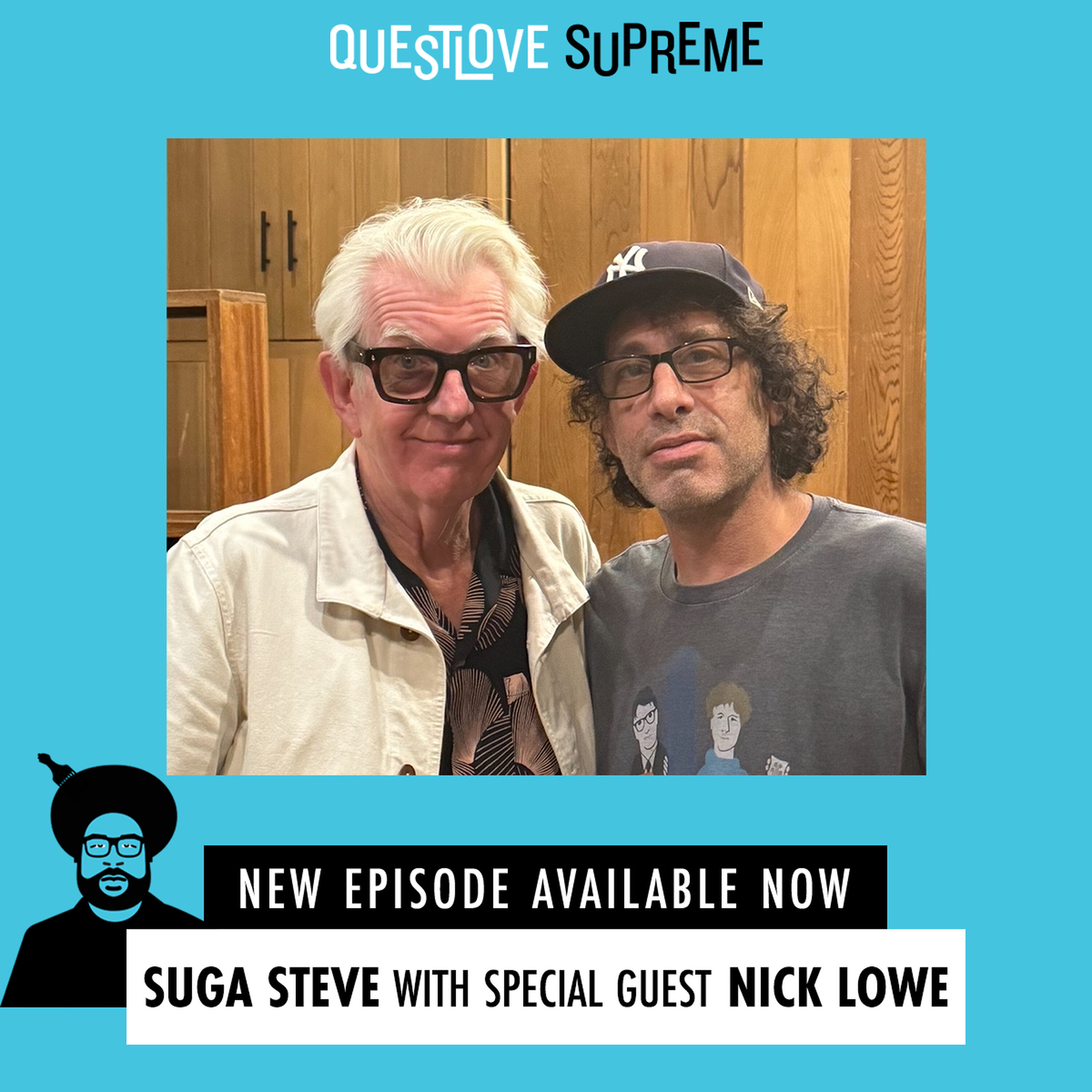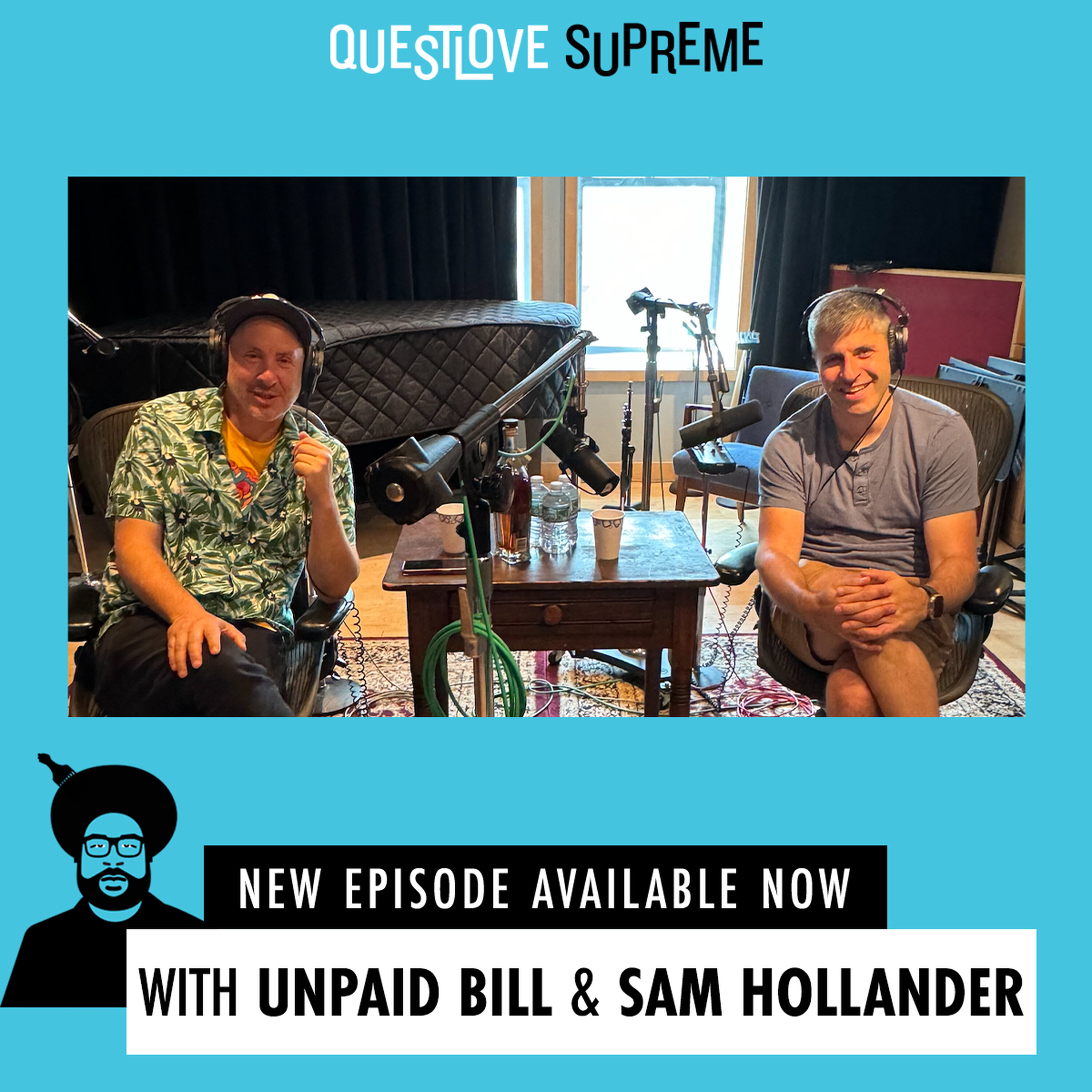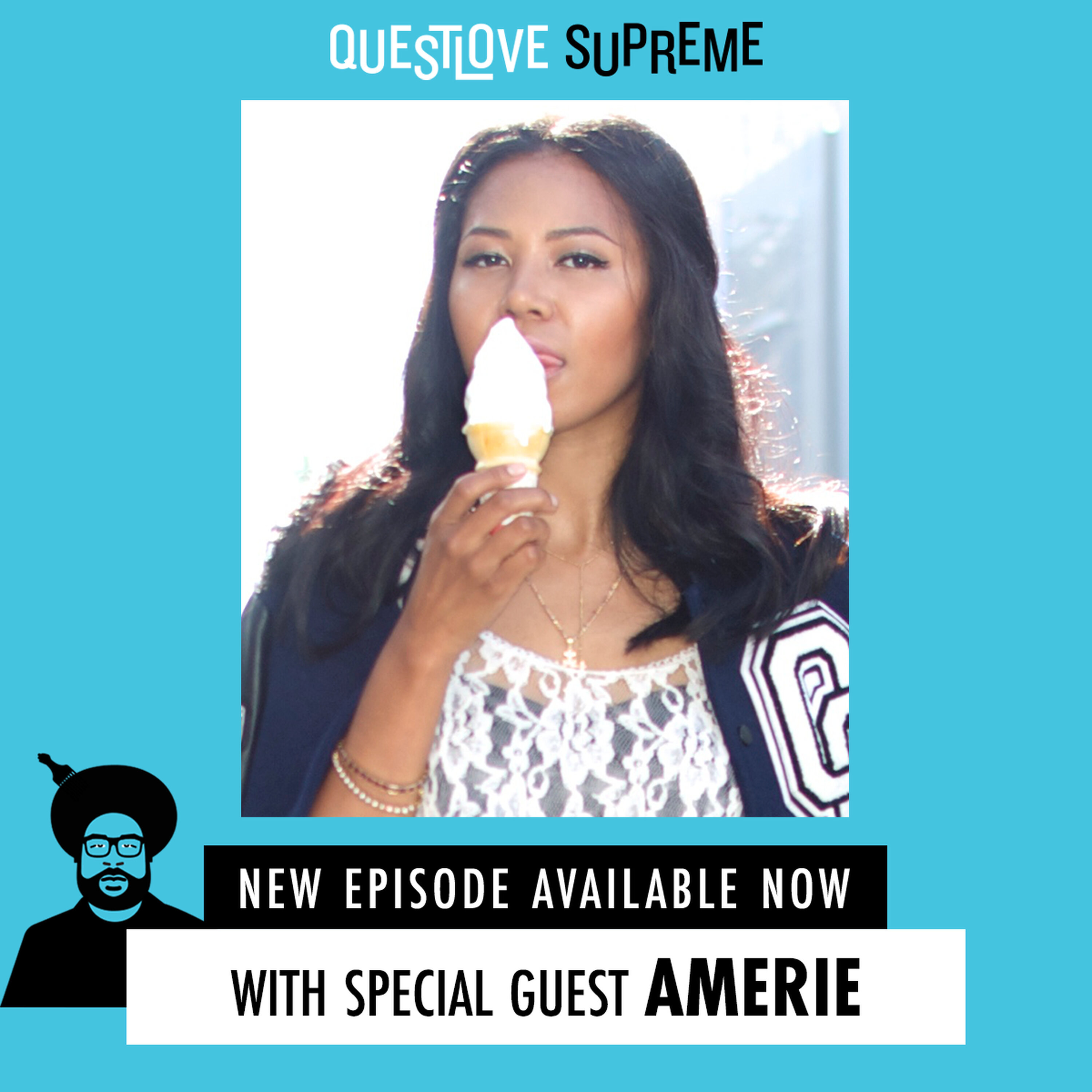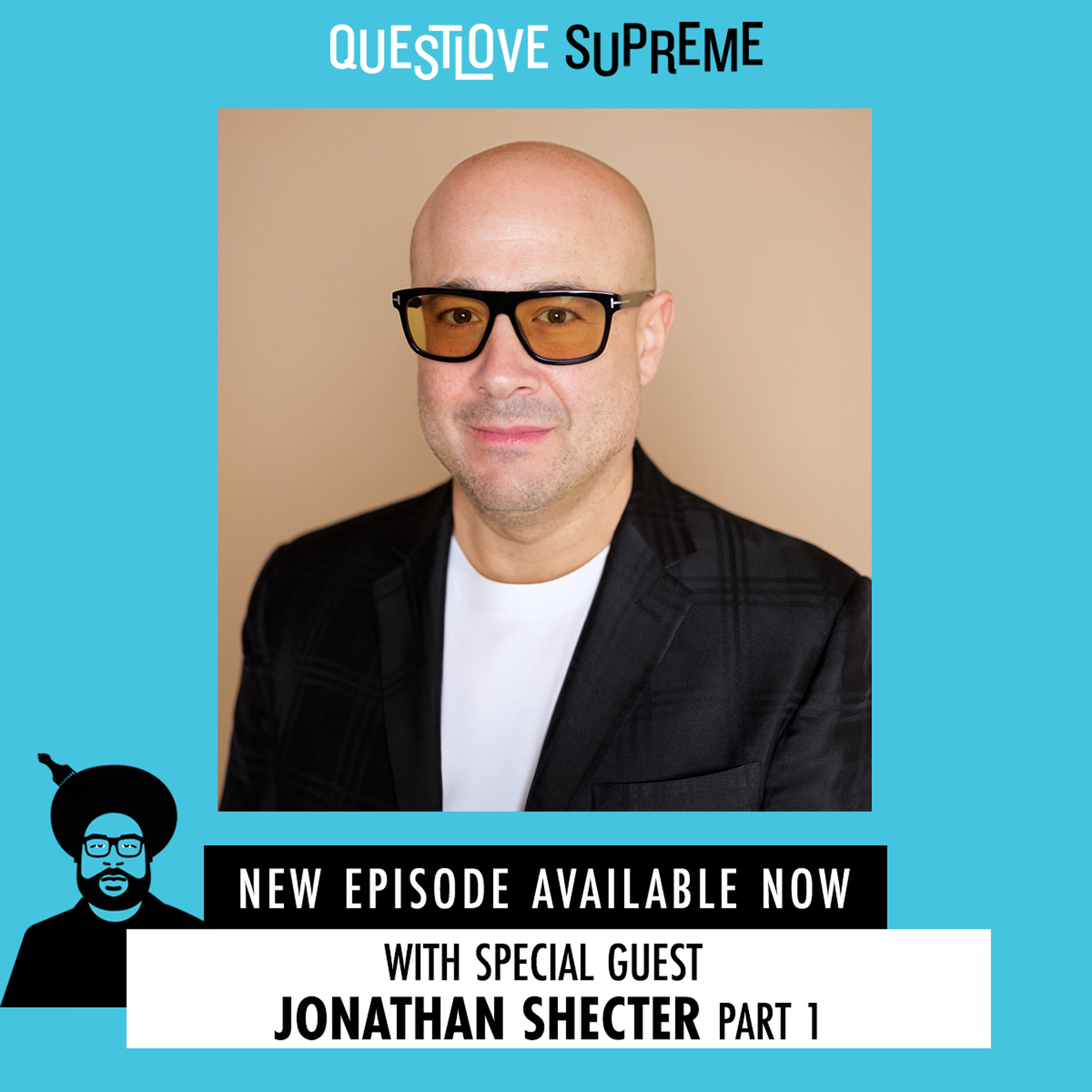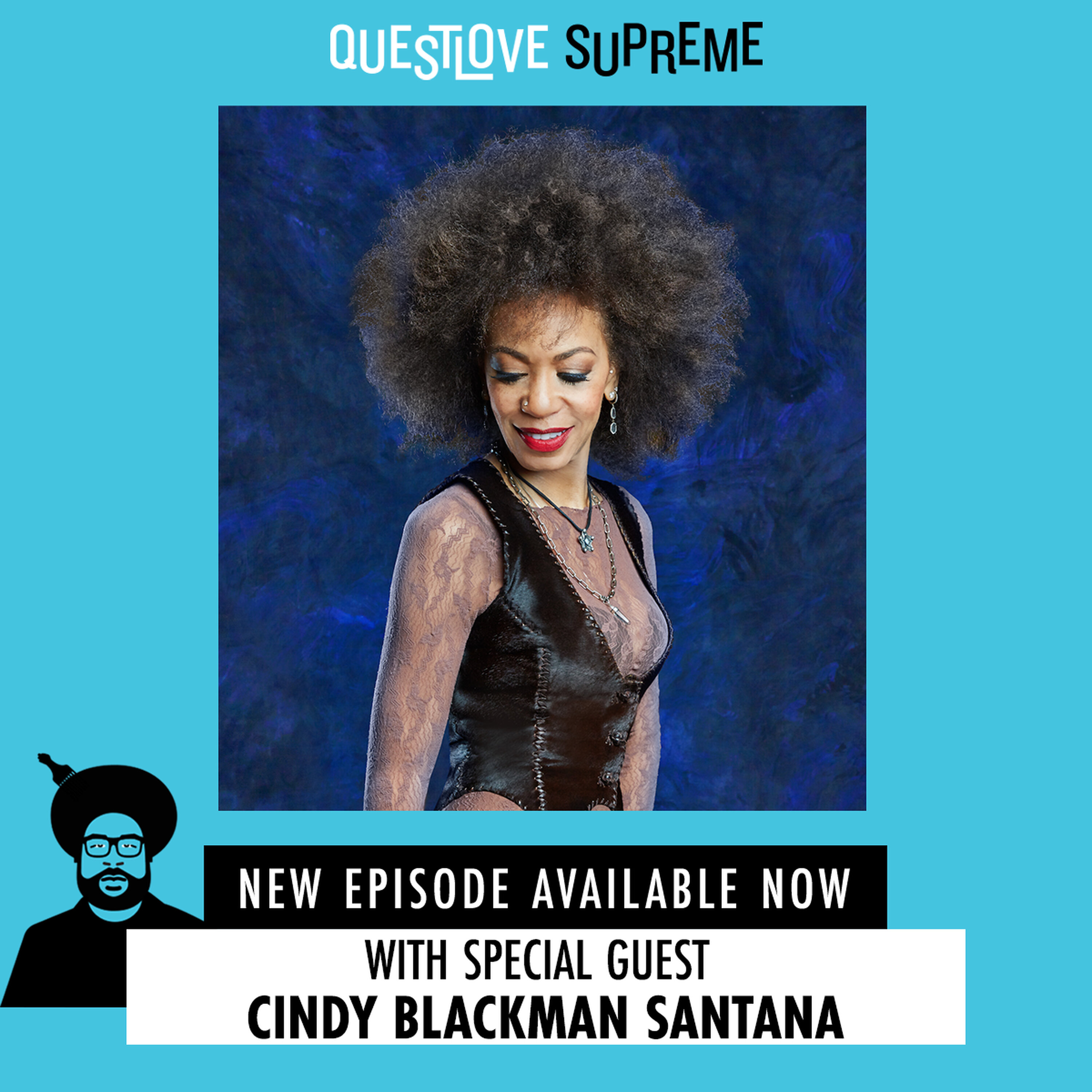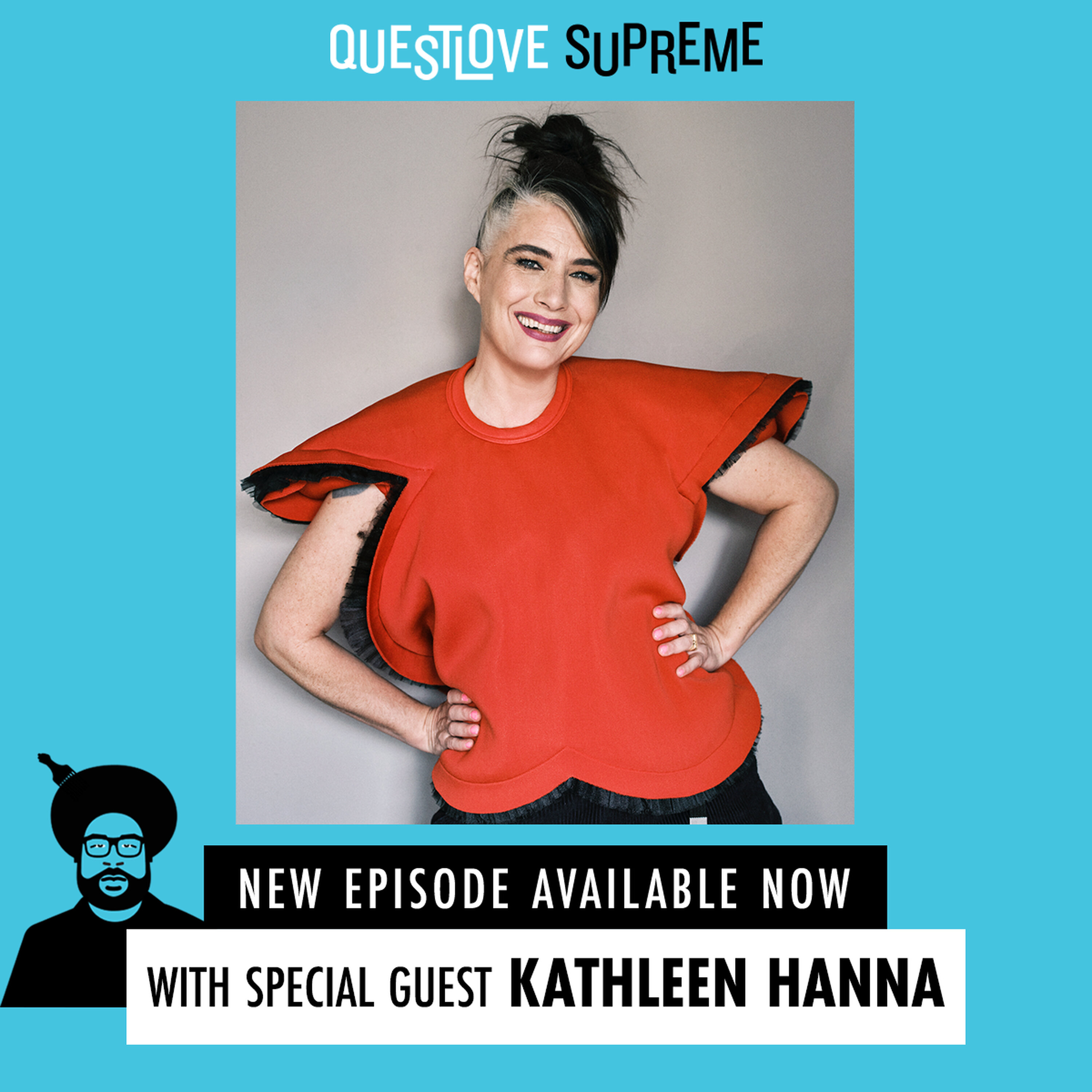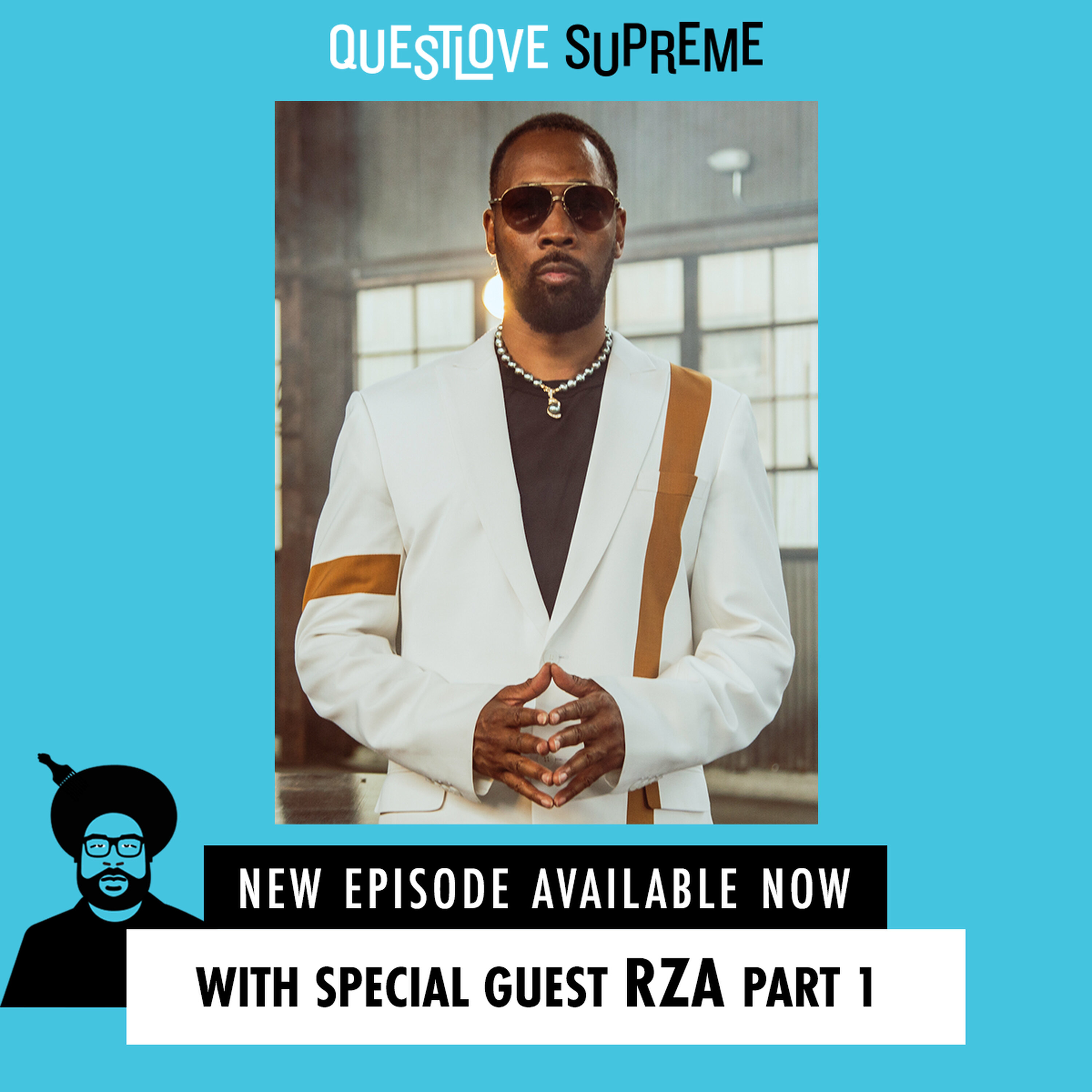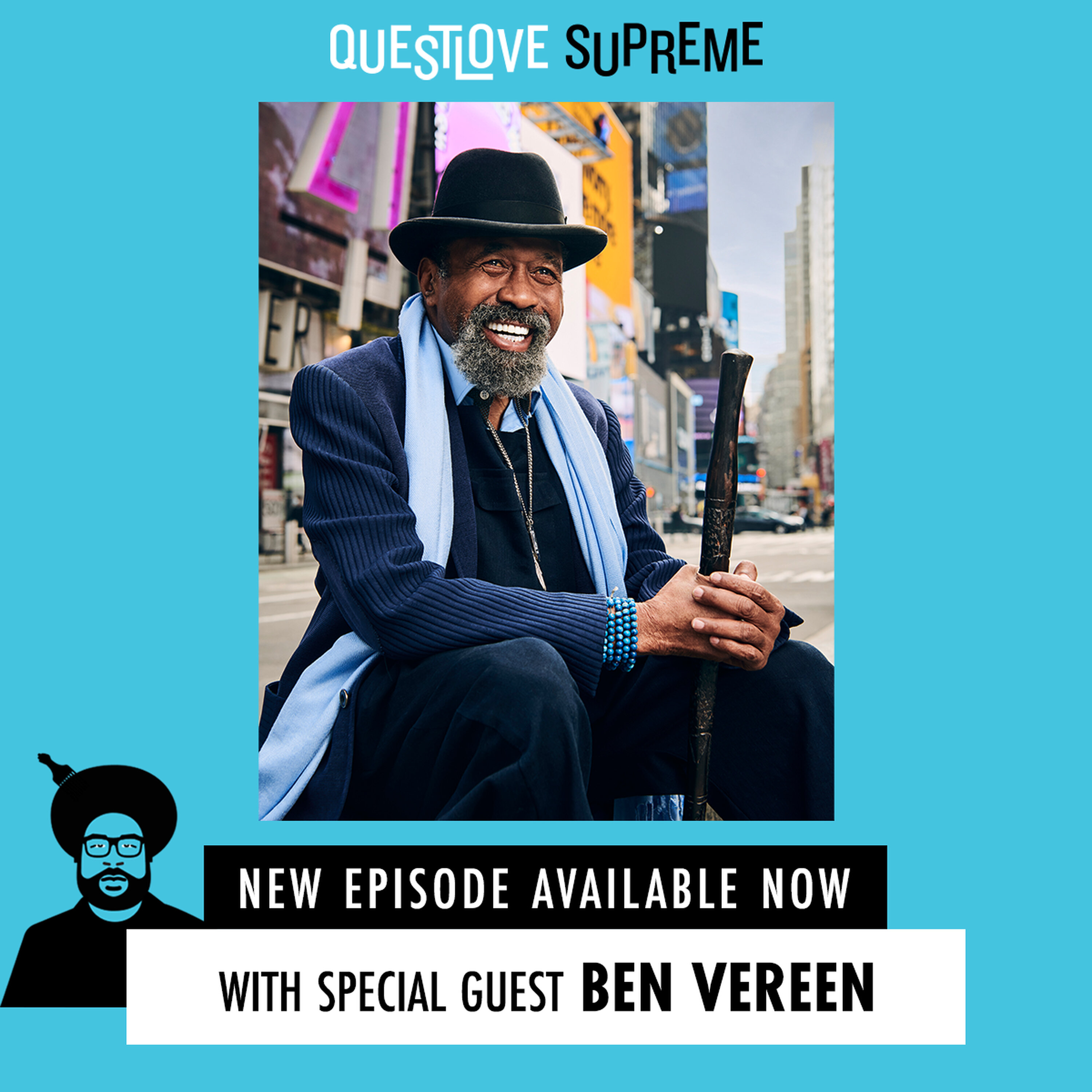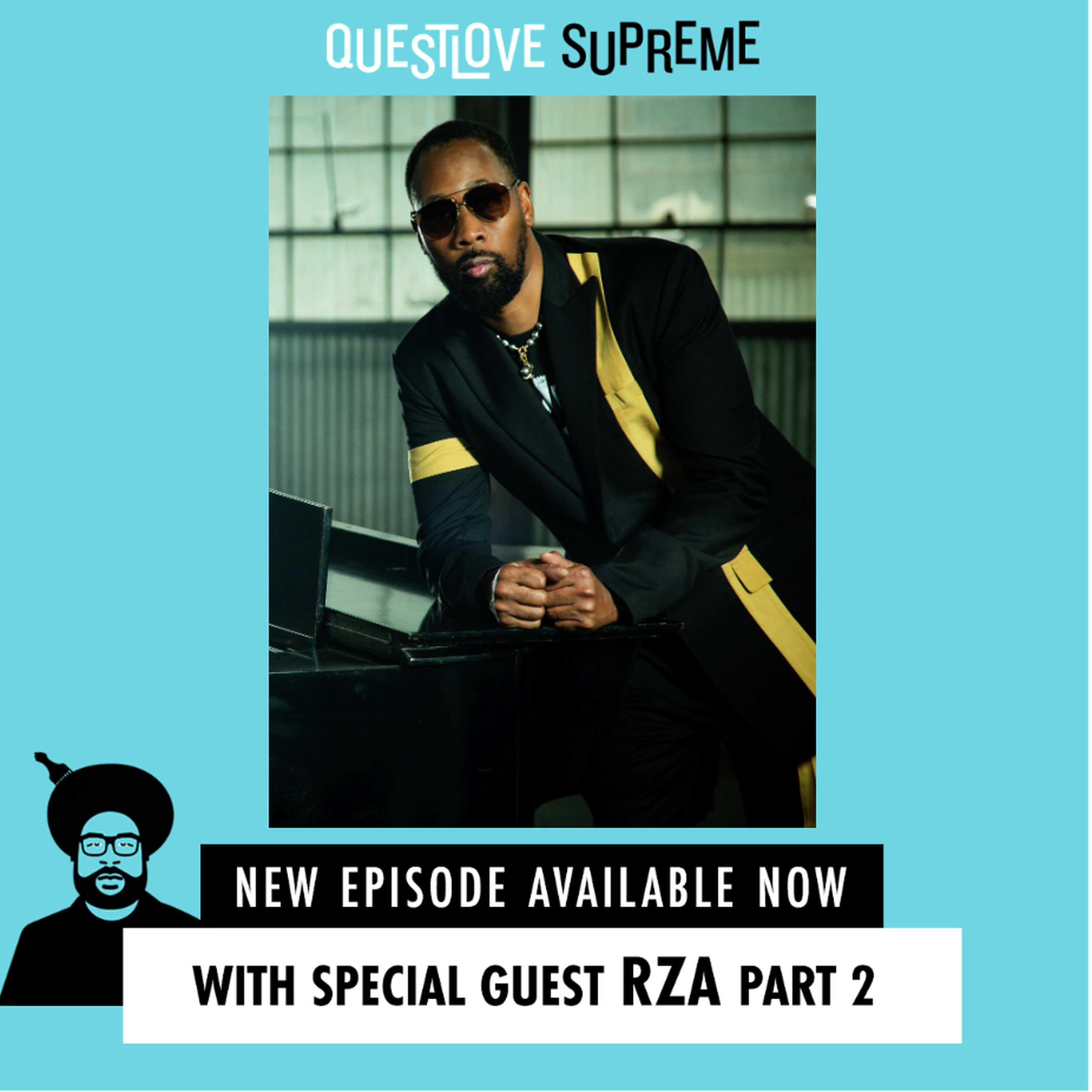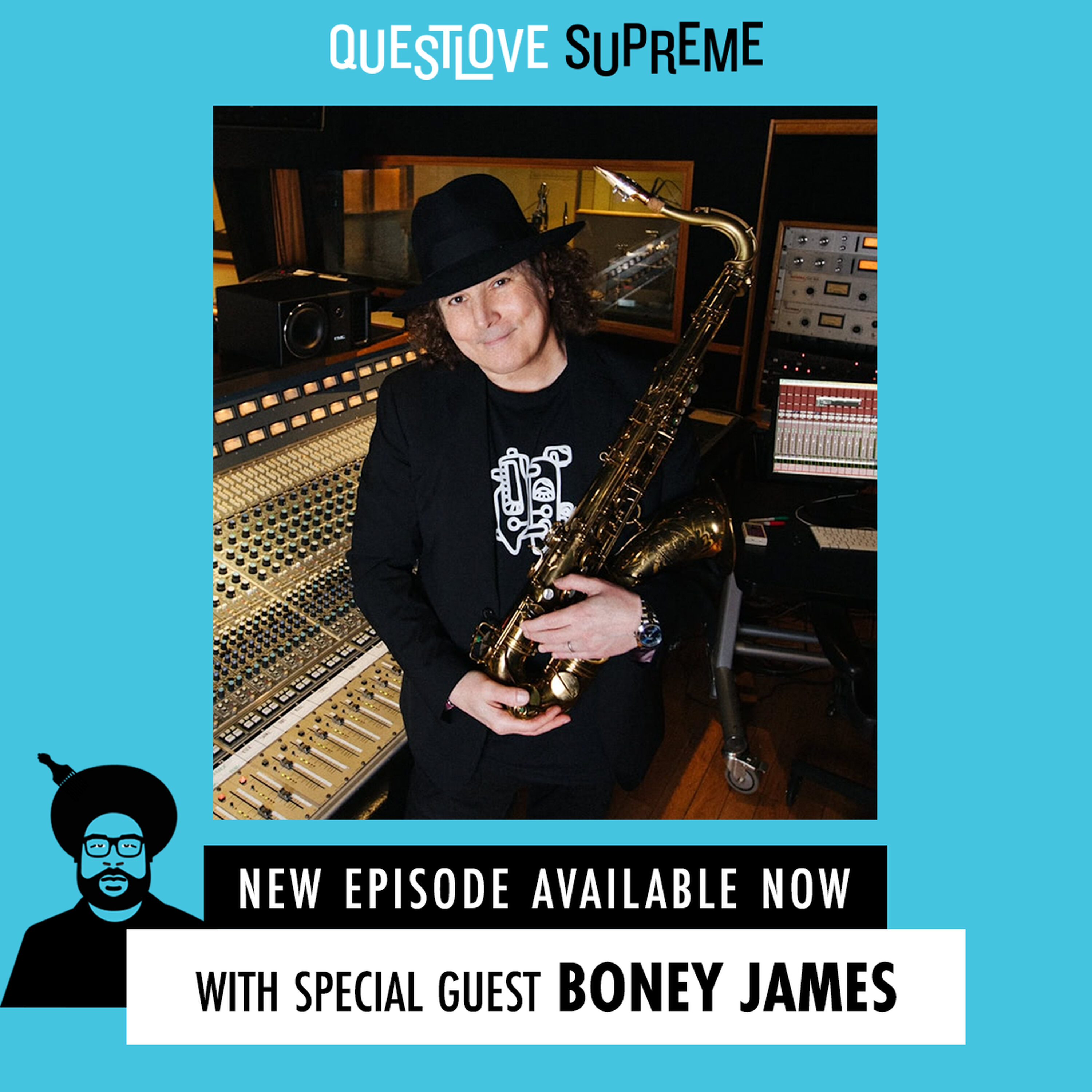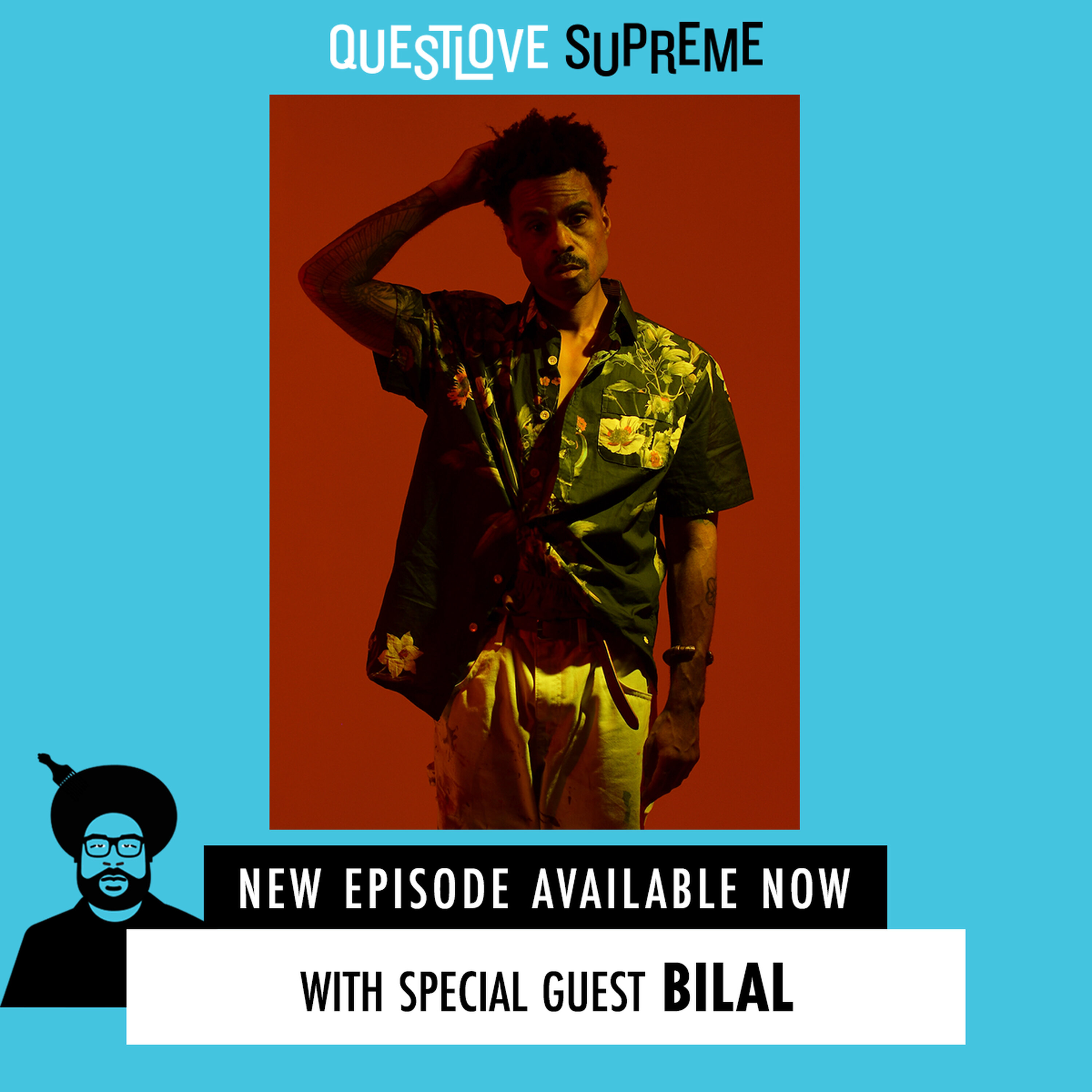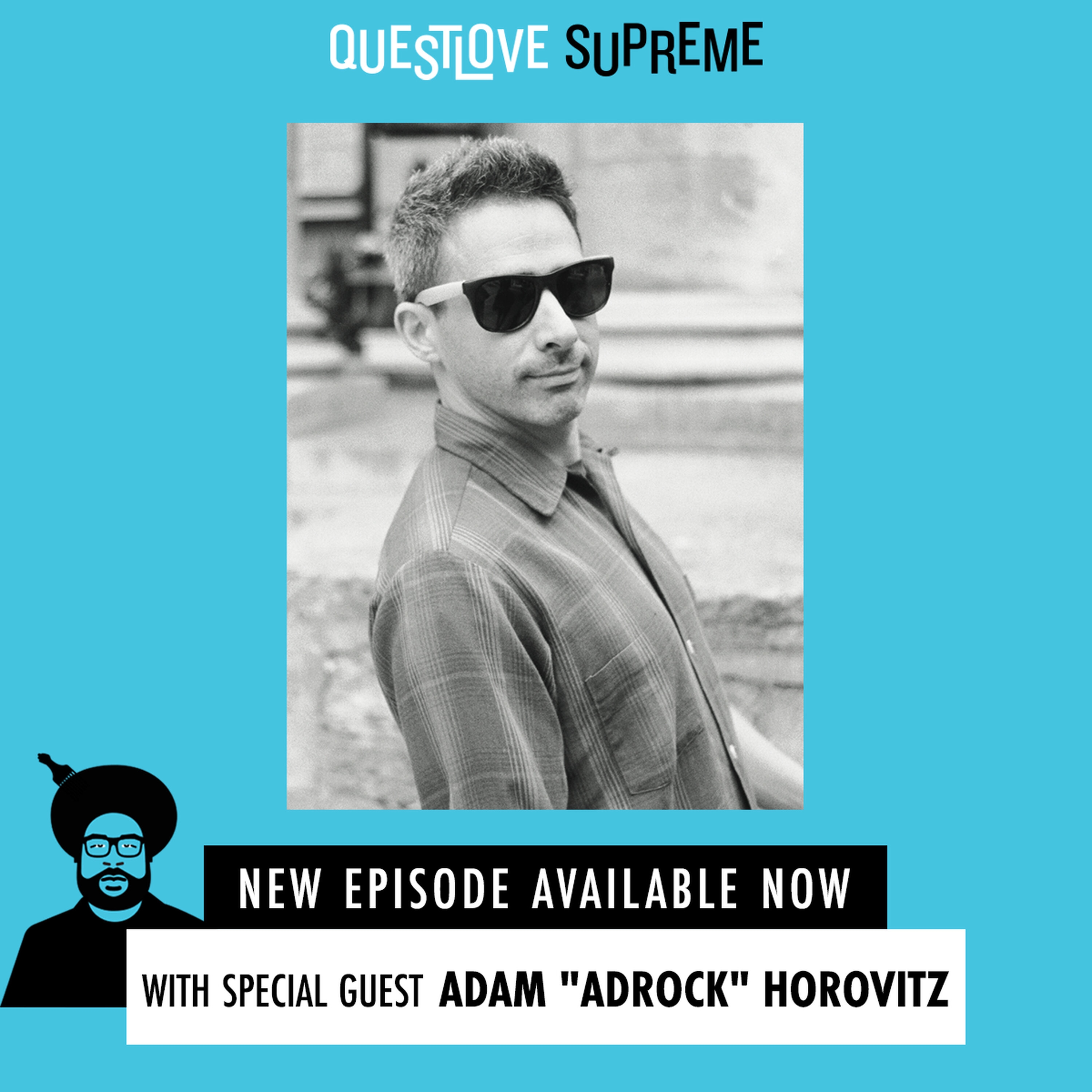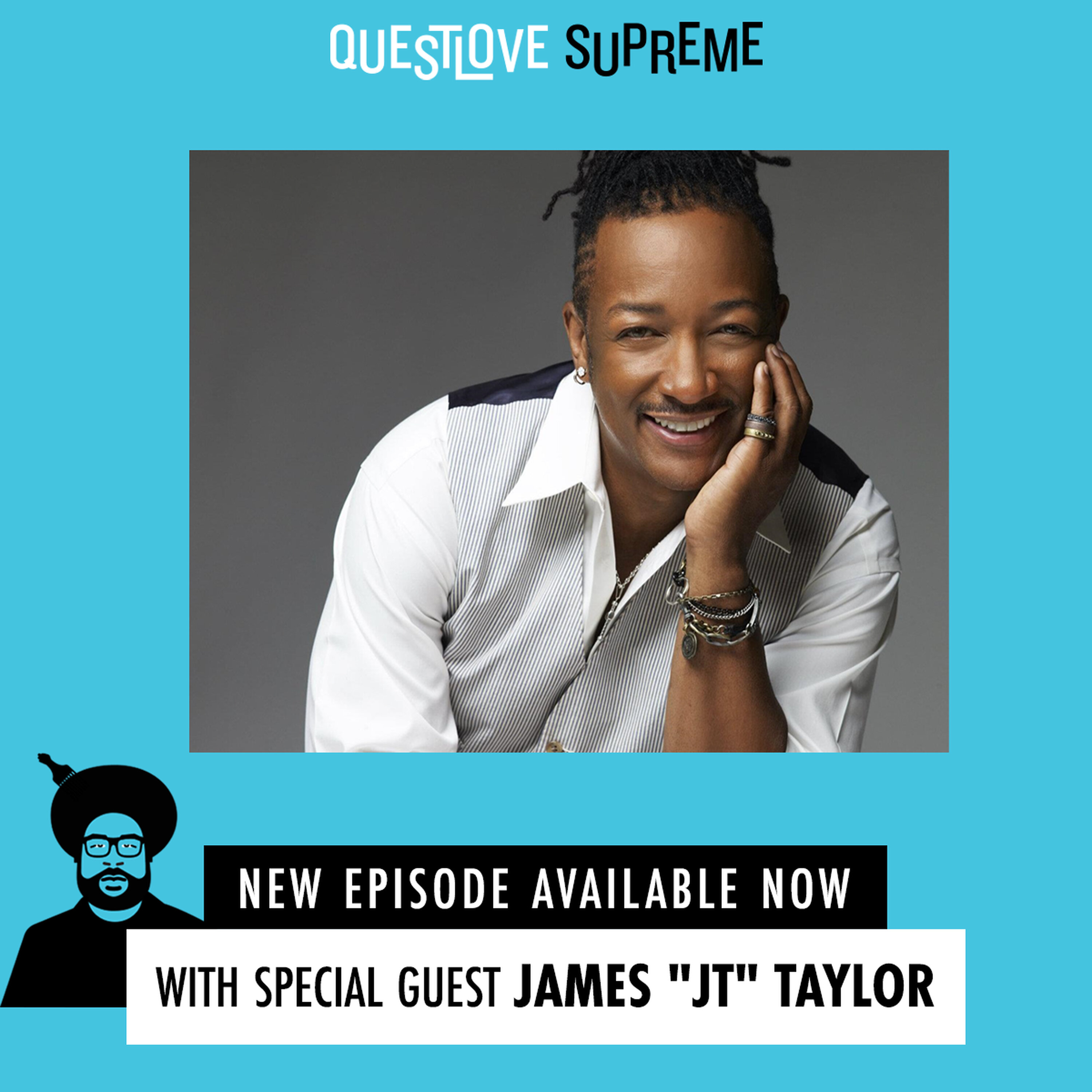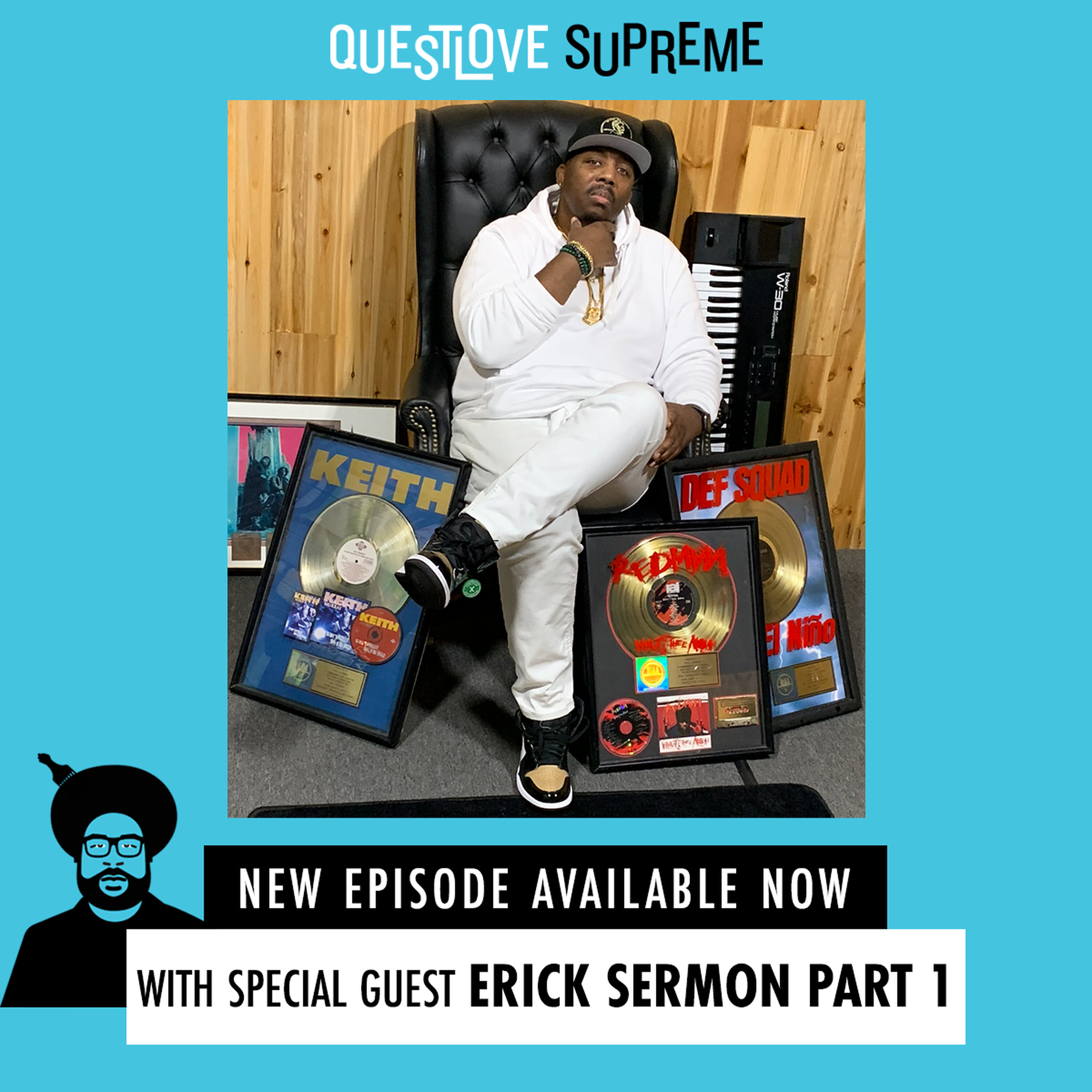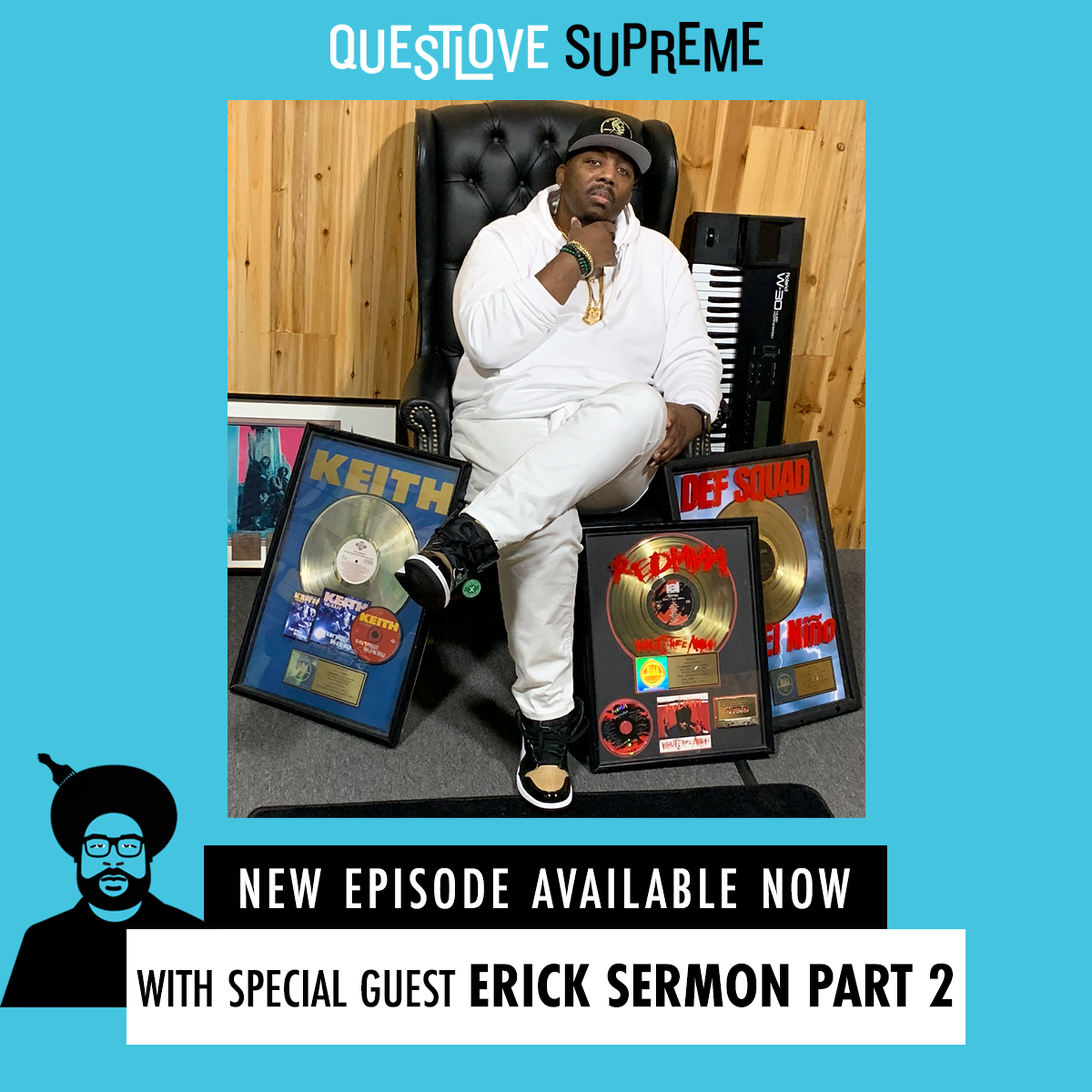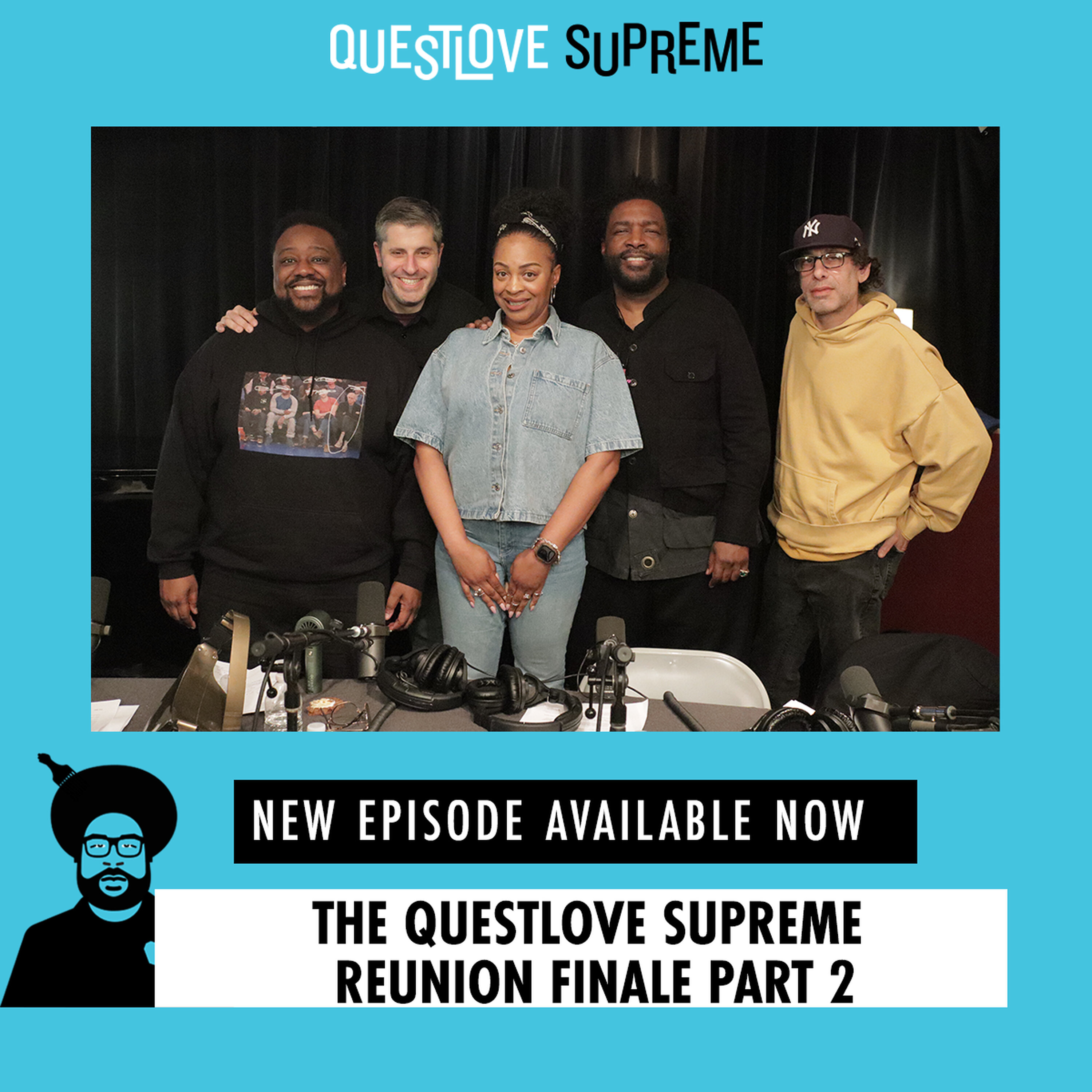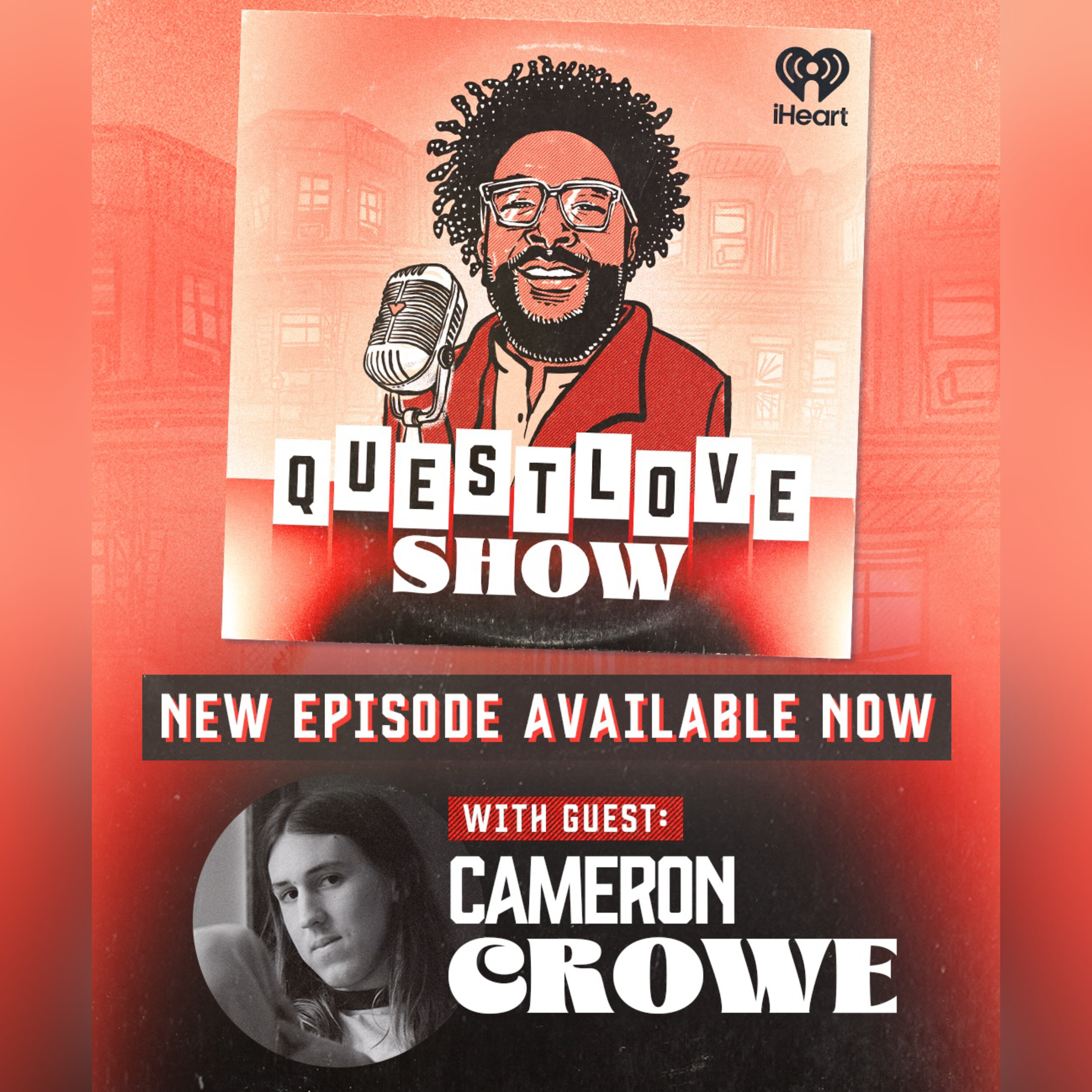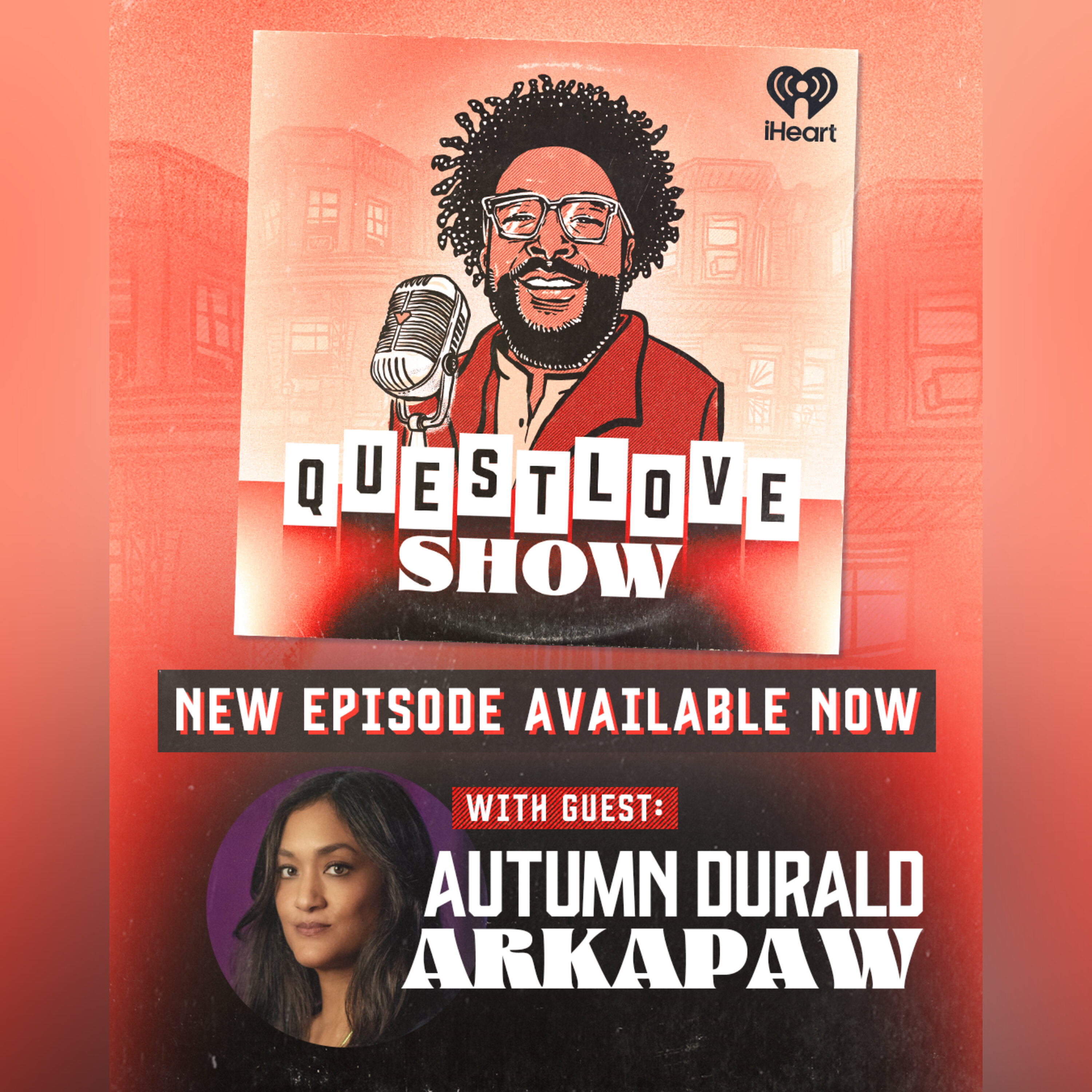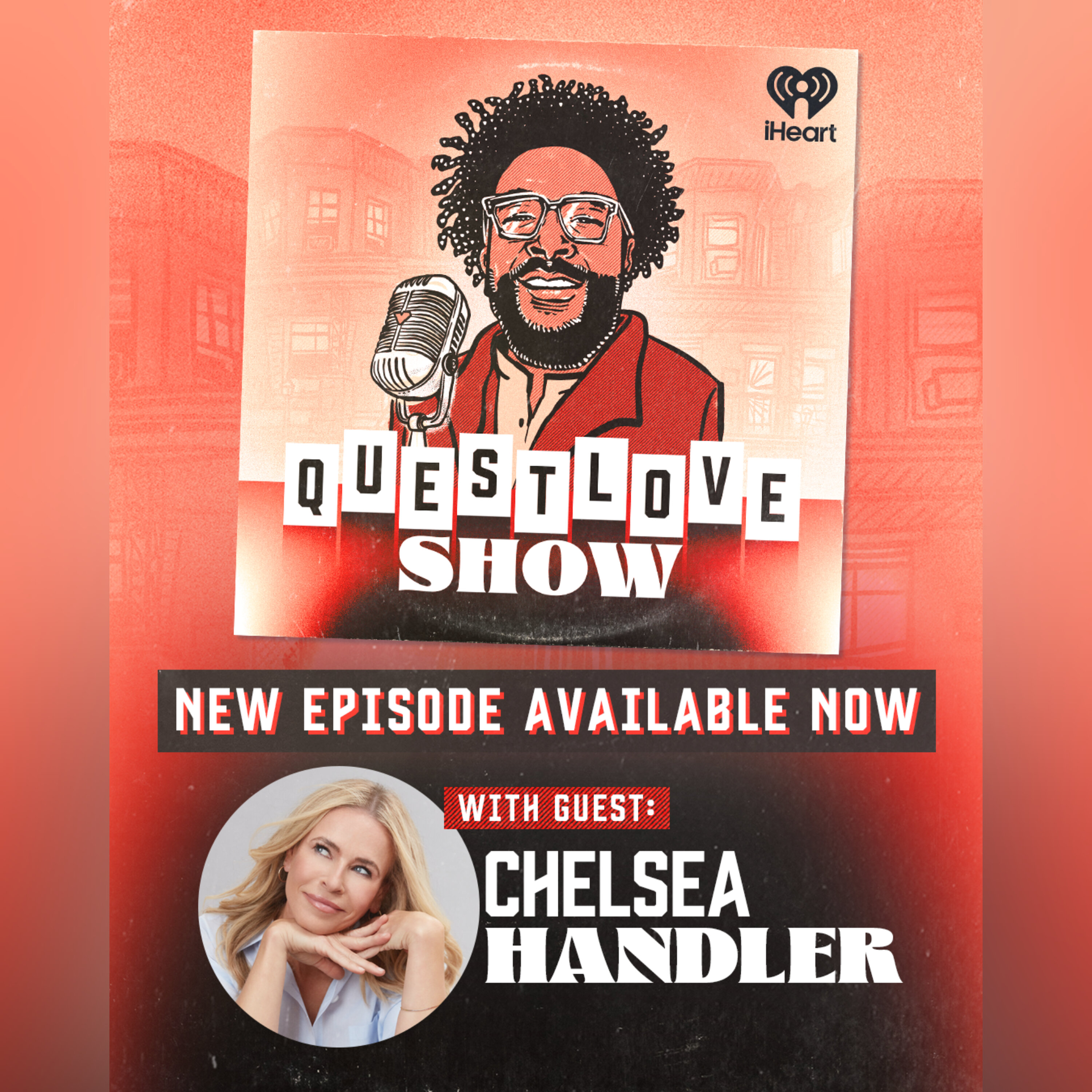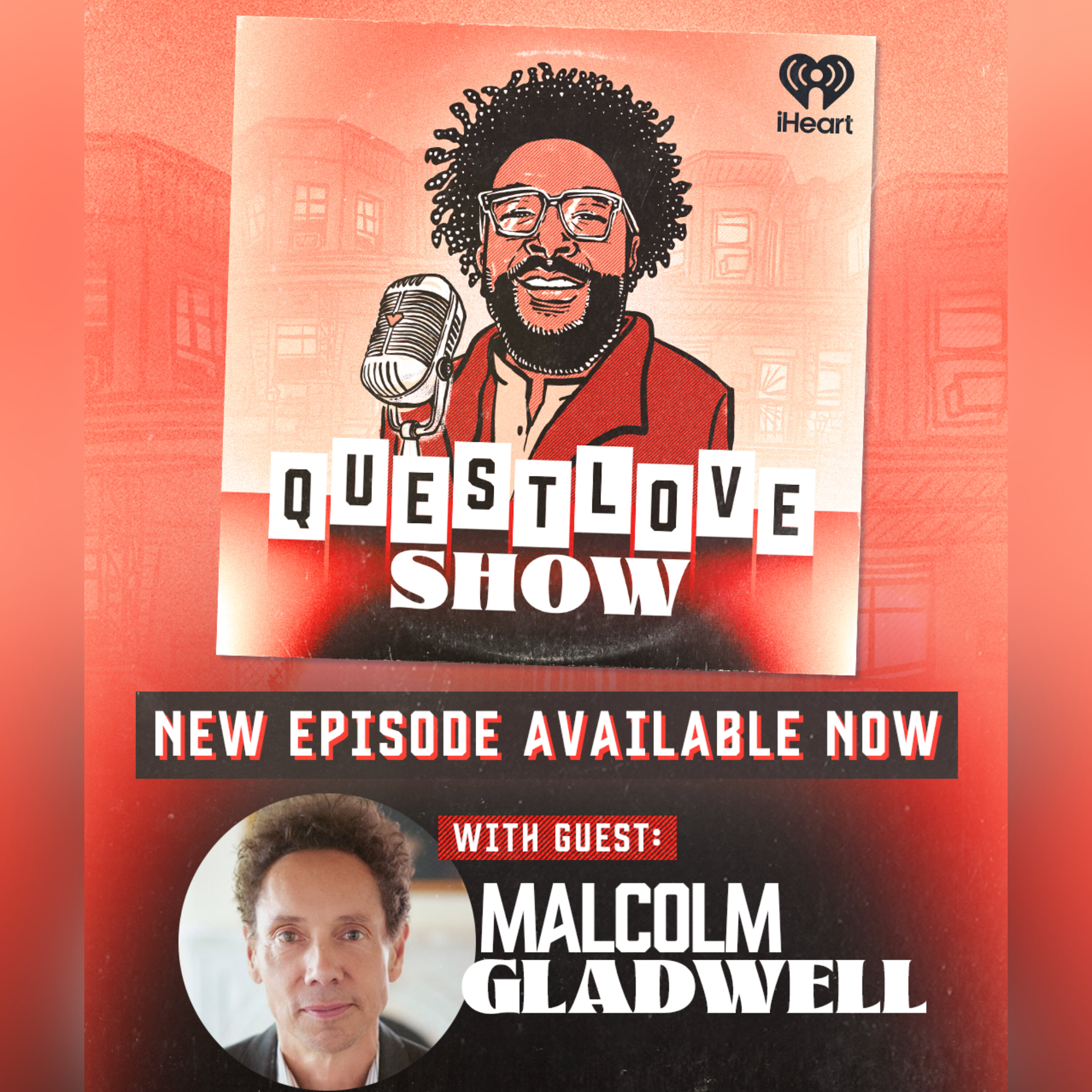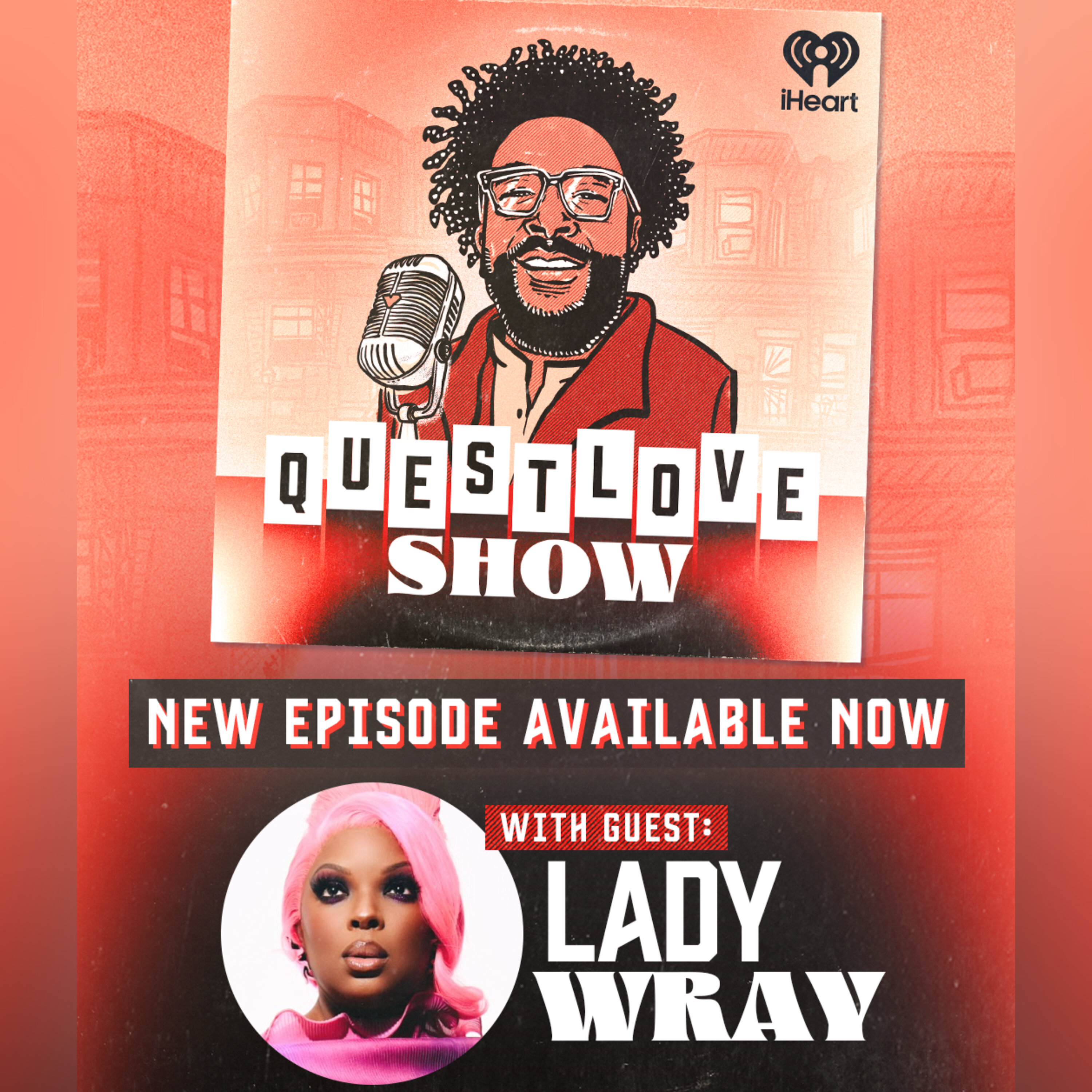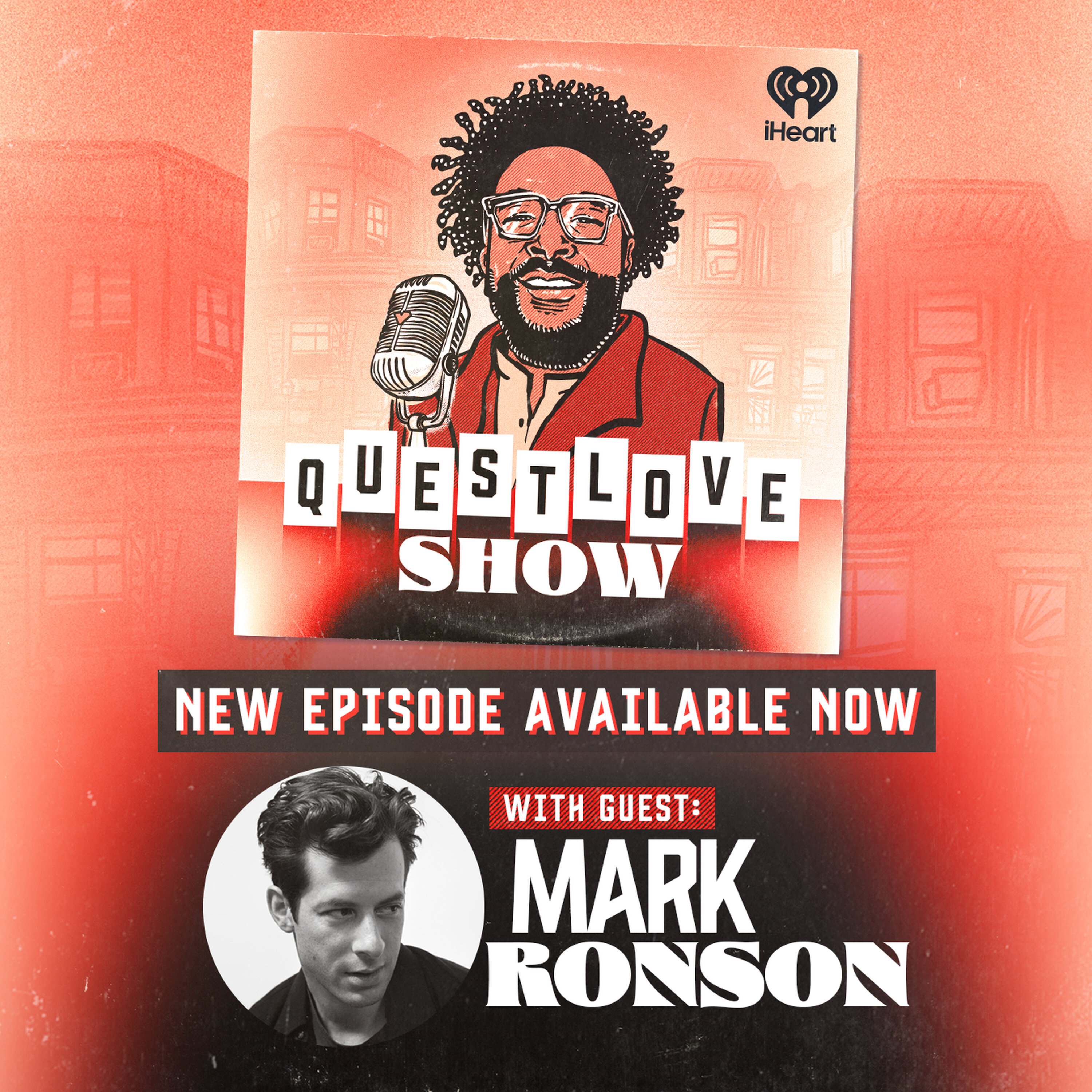LL Cool J Part 1

Years in the making, LL COOL J sits down with Questlove Supreme for a career-spanning comprehensive 2-part interview. Part 1 discusses LL's earliest rapping days, his first three albums, and the life and times behind one of Hip-Hop's first superstars.
00:00:00 Speaker 1: Quest Love Supreme is a production of iHeart Radio Sad Depressed Getting Killed The Virum So Suprimo roll Call three Sun Sun Subrivo role called Supremo So So Suprivo ro called subrivo as you can tell. Yeah, we got ll yeah and for the first time in history. Yeah, my roll call fell subrivo called. My name is Fante and my rhymes is vicious. But I'll also say yeah, pudding is delicious. Supprivo Suprivo sun So Brivo. My name Sugar. Yeah, I need a beat, yeah, like Quincy Jones needs like his feet up here? Bill, Yeah, back for more, Yeah, Sugar, Steve, Yeah, happy port like yeah more like Chris Robinson Yeah l L yeah, smoking l L Yeah, I say bless up. Yeah, I'm with the tribe. This one's quest Love So So So Supo Son Son sun Sel Damn like you speaking like what rhymes with Robinson? Smoking Son? Oh smoking level. We were both like wait none rhymes and Robin We started with smoking Son and Robinson. All right, okay, so look all right, all right. First of all, yes, we're we're live and lost Ange. We're taming Los Angeles with No No A C. But it's all good. Uh. This is the Quest of Supreme podcast of course with Fon Tickeelo, North Carolina's Finest Little Brother. How's preparations going for for with Charlotte Dave Riley. What's the Durham Durham made and Durham? No, it's going well, man, It's just you know, we at the last kind of the stretch before we go, so you know, you know how I go. I mean a million to use the cross, you know. I and you're organizing it too. Yeah, not by myself. Okay, we have a team, but but me and Pool were overseeing it from tip to tip. Headaches out the ass. But it's going well though, Sugar. Steve House, how's life in jazz business? Everything's good. It's nice to be here. They don't let me have them Manhattan much, so it's good to get away. Okay, Steven Weed free right now? Bro? Yeah, there's that. There's that too, So I may talk more during this. Yeah. I was about to say, you seem very clear today for some reason. Took a shower. Yeah, okay, that's that's good. You've been released from Sesame Street prison. Yeah, where have you been at the Muppets? Been holding you hostage. Hostage. Yeah, I got negotiated out from Sesme Street and I'm here. I'm excited. Really nothing not. Everything's fine. No, no, I've been driving my kids the volleyball. I was about to say, did the strike even affect Sesame Street? Not, that's that's what None of the muppets are unionized, No, they all it's they're free from that, which is good. Okay, that's that's good to hear. Well, as is this speaking of course, you know, we resolve to strike and you know who like wants me back at thirty Rock immediately like, yeah, exactly, let's go. How's it going? I am going good? Now are we getting this week started? I was about to say, how long did it take? You? Ritty and l story? First of all, shout outs to call you got a shout out to the people that make it happen that it took months, but it was so worth it, of course. But yes, it's the perfect way to start our adventure. With a legend. I've been having a what's what's the term, a t D T tet A tet uh with with a very passionate I would say over zealous person in in in the I g d ms about how we always disrespect Yeah, okay, so I it's not talking about her feet or anything like that, right, it's an l a callback it is anyway, all right. So look, I'm gonna do this Stephen A. Smith's out because I'm world famous for the intros or lack of intros or the over enthusiastic intros. But I think that it's important that our listeners understand why we should address our guest today in terms of royalty without making him cringe or whatever. So basically, I will say, in the past seven years of doing this podcast, you know, we've had presidents and musical pioneers and actors and sports figures and whatnot. For out of nine Jackson's we've had on the show, Wow, But this is probably the episode I've been waiting for. I mean, from a guy that has co authored a song about hip hop being the love of his life, I will say that who better than to have what I deem? Probably I call him a junior pioneer only because he's the reason why my definition of the pioneer never gets the glory. But it's the person that comes behind it that improves on the pioneer. Literally, our guest today is the reason why I think that because and I had to write this part down basically, you know at nausea that yeah, okay, Curtis Blow was the first goal selling rapper on a major label, but our guest today has improved on that twelvefold. And also he literally built the deaf Jam empire. Without his success, I don't know if there would have been budget or whatever for the Beast's down to public and me down, you know, literally built an empire. Not to mention literally so many firsts that our guest has achieved. If you want to say, the three minute rap song, the idea of course, the skit emotions on Wax whatever, true, I have my only pair of troops. Yeah, I was gonna say, Smith him the idea of pivoting to something else besides wrapping the comeback the remix. Like literally I made a list and it was like over twenty but I would bore you all, and I know he's like, yo, I can't wait to get the funk out of here. Lad, please welcome James Stop Smith a l cool day to Let's love Supreme, Thank you, thank you. You're also going to realize that the reason why we really haven't had our first true conversation yet. Was I was waiting for this play because I didn't want to like, oh my god, I didn't want to freak you out by like nerding out on you because I will go cuckoo for Coca puffs. But no, just save it, save it, save it for the podcast notes. Every time he thought that, well, why y'all want to every time he thought, I hope he took a note like yet, No, literally, he would come and out hide like I don't want to because I don't want him think like I'm ignoring him whatever, not return his phone calls. But I'm also the kind of guy that wants to know like twelve things about his career in a casual moment. And you know, I've always scared off many an R. That's hilarious that way. So on the road, yes we did, yeah, oh man. And not to mention, I'm I'm back from camp cool Jay talk about yeah we got to hear about it. I heard about it, but talk about it. How them put people tour. The tour was just it was rigorous. I mean, you know, quest worked so hard, man, I mean rehearsing forty hours a day, you know, twenty four hundred hours a day just bringing artists in and bringing guests in and fitting them into the set, and like on stage, I would call him my general every night because he was, you know, just working so hard and so tirelessly to make it look effortless, you know what I'm saying, for the audience, and to make it a show where everybody could just come in and once they get in, they once they stood up, they basically never sat down for two three hours and didn't mit three four hours and didn't miss a beat. It was It was a lot of fun. It was dope. We put up. It worked, It worked, It works for real. We still got a couple more, but it really was serious, Like, so you did a great job on that, man, Like it was amazing. It was amazing, all right. So let me get to the nerd part. Okay, So without the usual rigmund like where were you born? On stuff? I actually I want to know what was your life like in nineteen eighty three, one year before you started your journey to your path, Like what was typically happening to you in eighty three by that point? Yeah, So in eighty three, I was just running around the city networking with you know, other MC's and DJs and producers, and spending a lot of time in Harlem. I would go up to like see my man Silver Fox. He lived across He had a record store across from Grant Projects. This guy named Julio Gina had a record store on a label CCL Records, And I was I spent a lot of time in Harlem at the record store, just kind of honing my craft, talking to Fox about cadences and couplets and stuff like that. Like, you know, me and Kouji Rapp would be like down at this place called Joe Grant one hundred and tienth Street and Harlem rhyming together and you know what I'm saying, Me and him and Fox and you know that. So I basically spent a lot of time. And then i'd be if I was in Queens, I might be in like Herbie Lovebugs basement, you know what I'm saying, Like when he was like just making beats he had and he didn't have any records out or anything, but he was down there, like so we'd be down there and just hanging out. And you were born in Queens, No, I was born in Long Island. I was born in base Show base Shore, Long Island, and then you know, I would go back and forth between base Show, Long Island and Queens and then you know, spent obviously most of my time in Queen's ultimately, but for many years I went back and forth, you know what I'm saying to school, So because we always hear the folklore of hip hop and all the Bronx stories, the Bronx Monks, marks Monks, Bronks and all these tapes, tapes, tapes, how is the rest of the Burroughs getting spread of this creative pandemic? Like yeah, yeah, so create That's a good way of looking at it, right, So what happened actually is me being in Long Island, I was in North Babylon. I would go back and forth between North Babylon and Queens. When I was in North babylin next door to me was a bunch of foster kids, so a woman, a couple of them of colors, you know what I'm saying. They had like five or six forster kids like in the house. And they were from Brooklyn, the Bronx uptown like everywhere, and a lot of them like my man Kenny from Brooklyn, and Wayne was from the Bronx and Reynard and them were you know, so I would hear all the tapes my manor Eric Ward and all them. They would play all of the tapes from the Bronx. So I was exposed to hip hop from day one, like I was exposed to like Flashing, the Furious Four and the Foursome Seas way early, like before the records, before Raptors, the Light, before all that. I was already hearing everything that was going on in the city the first before yeah, there was the Furious Four before they were the Furious Five. Yes, yeah, So I was you know, I was hearing all these records and hearing the Cold Crush. So I got into it real early. So at like nine years old, I was already like rhyming and trying to rhyme like those guys and trying to make up rhymes and stuff like that. So by the time I was eleven or twelve, I actually started writing, you know, at eleven or twelve, I started really getting into it. So that's why I was actually ready when I was sixteen to start death jam because I had already been doing it like like, you know, maybe eight years at that point. You know, at sixteen, I had already been in hip hop like eight years, like trying to you know, get good at it. Who was your north star in terms of like that's the MCI, Like it was a mix of all of them. It was a mix of all of them for different reasons. It was more like mixed martial arts than it was like one style. It wasn't just karate. It was mixed martial arts, you know what I'm saying. So it was you know, and funny, you know, I actually picked that up from Bruce Lee, you know what I'm saying, because G Condo was like the first MMA, right, Like it was the way of the intercepting fists and it was all about taking all of these very styles and putting them together. So that's why, like you know, early on I was able to do stories, love records, hard records, this and that. That's why, like I can do any kind of song now. So it's like, you know, it's like a guy on a basketball court who could play defense, who could shoot, who could go left, who can go right? Who could do threes? Who could dunk? Who could you know, like pride in myself and doing anything, you know, avant garde records like anything. So and that came from just listening to all of them, right, listening to hearing Spoony and hearing Mail and you know, hearing Mo. But then like in DLB for different reasons, like in Tito for a different reason, like and pays for a different reason, like in JDL because of what he does, like in Ad for certain reasons like like a cast for other you know, like it was all these different people Shah Rock for the Echo Chamber and you know hearing like so it was all of these different people that you know, just kind of I just absorbed all of it, you know what I'm saying. Well, I gotta ask you now, did you ever in your wildest dreams ever imagine that, like one of the one of the pegs of the ladder of your whole story, that you actually go toe to toe with one of those pioneers like in the beginning. Definitely not definitely not man, Listen, you talked about Modi, right, Like, oh definitely not, of course, not like I love Mo. You know, I still love Mo. But you know it's like basketball right or boxing. I mean, you know, de la Joya had to fight Chavez like regardless, so you know that was just it just came with the territory. But I didn't lose any respect for him. I never lost respect for him. I never felt like personally insulted. Always took it as part of the game. Yeah, I see that. So, I mean I've heard Ruben's side, I've talked to ad of rock like them might be in NYU whatever. So first of all, how did you even have And we heard the story about like your grandfather getting you. What equipment did he get you? Exactly? You got me too. I wanted techniques, but you know my grandfather, you know I wanted technique. You know you're getting to Sheba's, right, Yeah, I got I got to to Sheba's and I wanted I wanted the Gemini he got me a uh. It wasn't a new Mark, I forget the name of it, but it was a different one. It had a crossfader and a a and a turn on it, and it didn't have a slide fada, had a turn knob on it. But yeah, so I had the mixer so you can dj oh yeah, okay, oh yeah, oh yeah. Yeah. I started off that way because see my grandfather, he was a jazz musician and He used to take me in the basement when I was laby six five sixty seven and record me like doing little jazz things, and he would like mess with stuff, and he had like a reel of reel and I'd be down there doing little jazz stuff and all that, you know what I'm saying. So I came up listening to like Jimmy Smith at the Penthouse and you know, all of these. But then I'd be listening to Smothers brothers, like Comedy records. But then I'm listening to like So I I got exposed to a lot of different kinds of music, whether it was Miles or Charles, Charlie Parker or bird or Birdland stuff and Ella Fitzgerald and Duke Ellington all this stuff count Basi records, so I got and it was a lot of big band too, So it wasn't just the normal jazz. It was a lot of big band jazz. But I say that to say that's where I kind of got into it, you know what I'm saying. And then I ended up getting the equipment because I fell in love with it. Because I got hit on a mini bike and my grandfather wanted to keep me in the house, and it was a choice either money. No, No, it was settled. They were just trying to keep me in the house because you know, we used to have a mini bikes and all that with the you know, with the with the shoelace tied to the throttle with no brakes on it, just running around the block. And I got hit on one of them joints, and then you know, they was like my grandmother was going crazy and the neighborhood's talking. That was like headline news. And then so he got me some equipment to keep me in the house because its household. No, no, did they know what hip I was to be? Like? No, well, well, the only resistance came later when I started becoming professional, because my grandmother didn't really believe that it was real and she wanted me to stay in school, and my mother secretly had made a pat with her that she would let me stay out of school for two years because remember I dropped out in the ninth grade the store. When Radio came out, I was sixteen seventeen. When when it dropped the single, when the when I Need a B came I was sixteen Radio I was turning seventeen. I was around seventeen, because you had a deal that you would secret No, my mother had a secret deal that she would let me stay out of school and pursue my dreams for two years, and if it didn't work out, she would make me go back to school. Because I asked her, I'm like, why did you let me do that? And she said, because you were really, really passionate about it. And I knew you were young enough to be able to go back to school, So that that was a she took that shot. I'm glad she did. That's I'm glad she did. Curious about your grandfather, what instrument did he play? Tenor saxophone? Played the tennis sacks? And so I used to, you know, grow up and just change learning how to change the reads and how to clean it, and you know, mess around with it stuff like that. Well you would play sax I would mess around with it, but nothing of any consequence. I mean I used to mess around with it, but nothing. You can at least play like love roller coaster. You know, you know, you know, nothing, nothing of any real consequence. But I but I did grow up around a lot of instruments. He would buy me guitars. I would break them and pop the strings and stuff like that. And it was just he had a love for music, and my grandmother loved music, and my mother wrote poetry, you know what I'm saying, so you know, and play the the accordion and you know, you know what I'm saying. So we don't understand, like this makes sense exactly? How did you even have wherewithal to know that? Let me hand deliver these tapes? First of all, what's on the tapes? Are you just like freestyling and piece to president or like no? Now? So I was about to quit because I couldn't get any make any headway because labels. A lot of labels were turning me down. Well it wasn't that many, but it was the first label you went to. I sent something to sugar Hill. I tried to get on sugar Hill. And when I started trying to get on sugar Hill, I was probably like fourteen, maybe thirteen. Do they know this now? They do now, you know? And so when I was like thirteen fourteen, I started sending demos to sugar Hill trying to get on them. They responded, though they were polite, they said, you know, we just want to inform you that we're not interested in your material at this you know, it was a standard letter, so it was cool. And then after that, I was about to quit because I had been trying since I was like fourteen years old and it had been two years and now I'm sixteen and I'm about to quit because I'm like, you know, it's just I'm not making any headway. And I had made a decision to go pro and be a professional recording artist. And so my mother, you know, she found one of the letters. I had balled it up and threw it in my room and she walked in and found it somehow and was reading it. And then she came over and she was like giving me hug because I was depressed. She's like, what's wrong, bah blah blah blah blah. I'm like, nah, you know, you know I can't you know, I don't have no equipment. I can't make a good demo this and that. So she said, well, what do you need? And I told her I need a drum machine so I can this and that I need to beat. Yeah, I need to be exactly. And that was the demo. So I went out and I did a demo. She bought me a call drum machine. And I went to my man spin Master Fanessa's house in his basement, and we played it manually because we didn't wait to want to wait to learn how to program it. So we just played everything manually and did a pause tape over dub and I made I need a beat the demo. What Yeah, yeah, I made I need to beat the demo. But you didn't even know a sequence it nah. Nah. I just did it by hand. And then once I did it by hand, by feel, then I went back and rhymed to what I did by hand, and then I went back and my man did some scratching on it, and I went back. I just did it that way, you know what I'm saying. And then I sent that in and uh, the rest is history. So ad Rock heard it. Ad Rock heard it. Then he took it. Obviously they had the real drum machines, you know, that took it to another level. Took it. Was a similar beat, but he took it to a whole other level. Him and Rick and you know, well, number one, do you still have those rejection letters? I probably do in my house, in my grandmother's house somewhere. Yes, I would say, yes, yes, I would say, I would say, yes, okay, yeah, I got them. What about that demo? Did that ever come out? It's around, It's around because that's you know, it's funny. That's where where they got dropped, like you know and all that. Yeah yeah, because I did all that on my demo. Yeah yeah, yeah. So when the Beastie Boys did that, all that those little some of those little lines they did a lot of that was you know, based on the demo. You know, I'm saying, wait while and while I'm remembering this, Okay, so during the Grammy fifties celebration, I overheard this is what really made me run out the room because I didn't want to hear the story. Can you please tell them the story? And I'm skipping a little bit ahead. Tell me the story of how you named Chun King Studios. Oh so Chun King So wait, just that alone, like heed, yeah, So Chun King obviously was owned by John King, right, so, but it was in Chinatown and I can never remember his name, and I'm like, so we just started calling it Chun King because it's a Chinatown and we used to get all the good Chinese food around there. We loved it, so I started calling the Chun King studios. I'm like, Yo, we're going to Chunk King. We're going to Chunk King. And one thing led to another, and John just named the studio Chunk King, and they just, yeah, it became it became Chunk King because we just, you know, we used to get Chinese food around there all the time. You know, it could have been that, you know what I'm saying. It could have been that, like when you get a call back from them, is this an instant Okay, let's make it happen, or like, are you going through the regular process of what the artist goes through. I used to first of all, after I sent him the demo, I would call Rick every single day for like two weeks to ask him if he got the demo yet, And sometimes he would answer, sometimes he wont he wouldn't, but I'll be like, Yo, Rick, you get the demo yet? Nope, didn't get it yet. Okay, you're Rick, you get the demo. I used to call him every day following up, like for like for like two weeks. Then when when he finally called me, called my grandmother. I came in the house. My grandmother told me some Rick calls I'm like going crazy. So you know, I called him from my kitchen. He called me, yo, he said, Yo, come down. I said this, He said, what's up? I said, Yo, what's up? Man? He said, Yo, come down. We're gonna make it, make a demo, make a record, blah blah blah. So I'm going crazy. And then I went down there and I made the first the demo. This first demo was called catch this Break and if you're looking for Jenna and make you ate by this record and catch this break, right, And so I took that, We took that, and he took that to Russell. So Russell was like, ah, it's the same old thing. It's the same old thing. By bye bye bye. So me and Rick went back in the studio and that's when he revisited the demo and we made I Need a Beat, and then we made I Need a Beat and that song just kind of they decided because what was happening was Deaf Jam Productions was having problems collecting their money from Party Time street Wise, the label that they were being distributed by, right that I don't know, but that was what Tela Rockets Yours was was Deaf Jam Productions. It was on Street Time Party it was on Party Time street Wise. That was the label, and so and so they were having the problems collecting the do so they ended up making death Jam independent or turning Death Jam into a label because it was a production company. Then it became a record label with no distribution, and we made our need a beat, and then we made another song. I made my first couple of songs with no contract, okay, because I you know, I didn't want like like nothing was stopping me. Like, we'll get to that. It's it's it's called pressing up the records and putting them out. We did. We sold. Okay. If I'm a budding yard artist and I want to put out my own joint, how much is that gonna run me? It is damnly impossible. It was. It was just like it was almost impossible because if they were, there are too many other hoops to climb through. At that time, there was no First of all, you got to remember there was no access to information. You don't even have the access to the information to know how to go about figuring out how to make a record. Like then you talk about they know or are you there a guinea pig? Well, they knew to a certain extent because remember Russell had been dealing with Curtis, he managed. He hadn't had any you know stuff, but he had managed his groups running them had I think maybe one album at that point, right, you know, or well, yeah they have one album. They knew, but they I was a guinea pig in the sense of being the first artist on the label for sure, Like they didn't never had ran a label like that before. We didn't. You know, nobody knew what we would. But I'm just saying in terms of like knowing that, so there's four stores in Philly that I need to put this in armnds. Oh yeah, yeah, No. They did a good job with that. We did a good job. I mean, I need to Beat came out, and you know, we ended up selling, you know, fifty one hundred thousand records independently, and then we put Dangerous out and sold a little less, but did okay. Creatively, when when you're making these songs, do you explain the process of how you and Rick are creating me songs? Like is he just like making a beat and you're like, I like that part and not that part. It's exactly what it is. Was, you know, pretty much through all of my music. But with Rick, what we would do is I would give him the basics of what I wanted to do, like the foundation, rather of what I wanted to do. I'd say, oh, I want to beat like this. I would hum a beat or a mouth a beat, you know, or something like that. Right, he would go. He would he would take that as the foundation. Then I would rhyme to it. I would you know, if I had most of the time I had rhymes already written, sometimes I would write to it. You know what I'm saying. I'd write to it. I do that. Then Rick would go in the studio by hisself and play with a lot of different overdub ideas. He would go in and put surprises on it. He'd find guitar bits, you find horns. He plays stuff for me. I'd be like, I don't know about that part. I like that part, and he'd be like, okay, well what do you think about this part? I say, I like that, and he would go back. Nearly a collaboration. It was very much If you talk about that when you gave your speech, Yeah, when you got your I think it was a lifetime achievement. Award. It was Rock and Roll Hall of Fame, right, And you talked about like collaboration. Definitely, work with your producers, definitely, all of them, always, always, because you know, we change each other when we work together, right, So it's not just add water, it's but I like to leave room for the producer to do what they do, don't. I'm not a believer in bullying producers. A lot of people, as they get established, they put more and more pressure on the producers, and they bully the producers into a corner where they can't be free to create. And I learned early on working with Rick to just let the producer do what they do and give them opportunity and then see what it is and then work from that space, you know what I mean. So I always approached it from a place of humility when it comes to creating, all right. So the thing that I really want to know is and notwithstanding and I mentioned at the top that yes, okay, so full force comes in and does something unprecedent before, and they turn like the nine minute song, the ten minute song into like a four minute song. So who knew between the two of you the art of editing, Because even on the album credits, right, it says reduced by Rick Ruth. Yeah, so was it weird to you writing just sixteen bars and now you got to have a hook and another sixteen bars, because you know, before you rappers just rap for it forever. It wasn't weird to me because I loved Rick James, and I loved you know, Michael Jackson and Lonald Ritchie and the Commodorees and the OJ's, and all of them had choruses and all of them had songs and it was arrangements. So I was very comfortable with the idea of making songs, you know, and I knew the difference between you know, I knew what I was doing. I was very conscious when I would do a song that was a song or when I'd just be doing a thing where I'm rhyming, and I always understood the difference, but without the standard of knowing like, oh, I need a hook so this audience gets me, or no, how do you know? You follow the light? You follow the light. You know what I'm saying. You just get out of the way and follow the light. So you know, when you're making music and when you're creating something, you know, everything is now it's science and art, right, it's ourn and science and his soul land science right, and you have to remember both. And there's a time to get out of the way. There's a time for science, and then there's a time to just follow the light. And so, you know, with a lot of those songs, it just felt like that's right, that's it, you know what I'm saying, Like you know, I mean even years later, I mean Rick Rubin was like, you know, he was ready to jump off a roof about I need love, you know really, but yeah, but I but I wanted to follow the light. You're like, you're like that much put it out first. He hated it. He thought it was crazy. But well, it's a very soft record, I mean emotional, it's vulnerable. It's like the exact opposite. It's the antithesis of rock the bells, it's the antithesis of some of the other songs I've had done. So it was very different, you know. And but my thing was range and doing different stuff and following the light and trusting that. But the thing was like we really weren't stopped because you did. I can give you more and I want you, which we're leaning towards that. Yeah, it's the it's the execution, you know, it's not just the idea, it's the execution. So the execution was a lot more romantic, a lot softer, a lot more gentle. I could give you more, you know what I mean? I want you because I want you originally was over in between the sheets you were thinking of sampling back. Yeah, yeah, yeah, I wrote that to in between the sheets. Ship m okay, okay, you know, and if you listen to it, if you put I want you vocals over in between the sheets, would have it would have been like it would have been crazy Jesus Christ, Like after I did successive, I Need Love. I'm so curious about everybody else's revelation because you already knew how the depth GM field when they first heard it. Yeah, yeah, yeah, yeah, it was Yeah, it was a great You had to sell it on in the room. It just was like, you know, context is everything, right, So it's kind of like it's like seeing a basketball player after they've been wearing them tidy white forever and then the basketball player walks out with the long shorts. It's like, yeah, what's that, you know, So it was just like very new. It was just new. It was on you know, besides Faith knew men. There was no women in the room at that time. I don't even know if Faith was there yet. I don't even think Faith was there yet. It was more like Heidi Smith secretary, you know what I'm saying, like the receptionist. You know, they were growing, we were still we were still very new at that point. Because that was like I had only I was only one album. Men and Rick and Russell were gonna going through some things. But but radio must have been radio then, not the song, but actual radio that made I need oh No Exploded Exploded. Exploded. Exploded was one of the first rap songs I remember hearing on you No Exploded. That was one of the first rap songs I played GERI Exploded. So the way the way that records, that's hilarious. The way that records work is that you would have to put it out three months ahead of time. All Right, is conk created real named Brian, Yeah, j Brin Philip. All Right. So I went to school with creator's cousin, so he would always come in with almost damn near demo quality stuff. Right. I heard like you can't dance, I heard like all this stuff on. He bringing a cassette whatever. He was like the popular kid in school, so he had a copy a bigger endepthor and I begged him again five bucks to double the join for me. When I heard I Need Love, I was like, yo, man zoom. Yeah, first verse read it was all good was number one for like month. That's hilarious. For the first two months. Boy, I was the man. It's just surprised to me that that record that they didn't get it, because especially like with Russell, because what he was doing with you know, well, I think ob R. I don't know if that was around the time that seemed to be alone in his wheelhouse of like the kind of R and B you know, BR the original recordings, but that was magic and I got you Yeah, yeah that was later. That was later. That's when he got Rush associated labels and yeah, that was later. I thought they would have been right down his lane though. Yeah, I mean he was, he was with it, Russell was with it. But you know, you know, like you'd be surprised, man, like how many songs I have like that, Like there are a lot of songs around the way. Girl. They wanted to give up on Wait what Yeah, because it was slow at radios. Radio was like resisting it because it was new doing it. They didn't want to. They was unsure about like Brenda's got a big old but yeah, yeah they like that. Yeah they did actually. You know, so it is crazy because like I would think, as an n R, there weren't no who I was gonna say, were you your on n R? Yeah, there was no a n R. You gotta remember we you know at that time, you know in hip hop, there weren't no managers. I mean, Russell was the only guy that was even in that space, and that he got in that space later. So when when I first started, there were really no managers. He was a promoter. There were there was no an R. There was no industry. There was no hip hop industry. So so they you know, it's a it's a completely different type of mindset. Nobody knows anything now. Every you know, now it's like everybody can kind of come off like a genius because they know, you know, they got this Monday morning quarterbacking and everybody's Mogo and all this history. Yeah, there was no industry, so you know, it's like no America, you know, it's just like you know what I mean, It's it's like woods, you know, it's very different like at that point, you know, you know, now we're like infrastructure. Was just that's not a thing. No more like your favorite producer or well he it wasn't. Yeah, yeah, no it's not. It was you know, he wasn't even known like that, you know what I'm saying. So it wasn't he was. He wasn't known. It was he had one song with Tela Rock. This is a question I've been dying, dying to know. Okay, so it was eighty five and Rick Rubins, your producer. A year later, Rick Rubin's gonna helm the Raisin Hell record. So all right, just for my satisfaction, at any point while making the song rock the Bells, did you ever think to use Bob James's Take Me to the Mardi Gras well the actual bells on it. I mean, that's really I've kind of got into this before with the story, but the reality is that was what the song was. Noway, no, it was take Me to the Mardi Gras. I wrote it to that, and Rick, me and Rick planned on doing it, and then Rick did Peter Piper and I'm like, yo, way, why didn't you win the tug of a ward? Matt between Peter run DMC had a gold album. They were coming off of two albums. Two albums at that point, right, like maybe yeah, it was two albums and it was just a no no to no no. What it was was. It's like it's kind of hard to like, look, Jay is from my neighborhood, like running them from my neighborhood. We all know take me to the Mardi Gras. I can't really argue that, like they don't know what it is. I just had plans for it, and when Rick I guess, you know, decided to you know, do that with them, and one thing led to another and they ended up with Peter Piper. But that's why I made two Rock the Bells, because that's why I made the original and didn't like it because it wasn't what I wanted, and then made the second one because I was changing Almos the B side. The original was never gonna happen because I was gonna do it to Marti Gras. I got it so once I didn't do it to Mardi Gras, I went in and we had to figure out another one. I did. Originally I didn't like it, and I was like, this ain't good enough because I wanted Marti Gras. So then we made another song, the second one that everybody cuts up. How long did it take you to finally settle on the Trouble Funk Go Go version. It didn't take long. It kind of came together that. You know, God had other plans. They came together, well, they came together. It was all good. You know what I'm saying. You know what I'm saying. I love Listen, I loved I was just talking to somebody about that the other day. I love Go Go. Like when when Chuck Brown and the Soul searches that I'm bad over, I was like, Yo, that was crazy. I love EU, you know, junk Yard, you know what I'm saying, like Chuck, all of them, Like I loved the the Go Go scene, So that was always influencing a lot of what we did too, you know what I'm saying rhythmically, So okay, you in all the first that I mentioned, you know, I'll also say that what's different about your success is that unlike other pioneers, Sam Cook, Ray Charles James Brown, who kind of had to watch the and I'll say the alternative versions themselves blow up. I either Elvis syndrome, where like you really became like the first solo teen idol. I mean, you just got to experience stuff that neither Spooning nor Curtis blowing them got so in eighty five, as this thing is clearly going to be like important, what is stardom on that level like that none of your peers in hip hop or experience maybe an occasional run DMC will know it. But I think it's different when you're singular. So what is that like? Because I know by this point, because the thing is like you have a cool factor, a danger you know, I think rappers a danger of factor, a cool factor and all the things. Yeah, and all that stuff. So I know that people are trying to insucubist manner, like like just pull from your energy and so hey, come hang with us, come party with us too. You wanted to what is it like in eighty five doing what I would consider the most not the botchers, but right that period of a lot of the botchery. So you know, it was two things. It was like when I'm on toring them on the road, like you know, if I go to a sneaker stores, like crowds of kids outside, you know what I'm saying, and you know, banging on a limo and chasing the limo, and I doubt how long did it take for you to like, oh, I can't be normal anymore? Oh no eighty five? That was pretty much the beginner. Yeah yeah, or on like no hat, no glass, It doesn't matter. They know it's okay, yeah, okay, it was okay. Yeah yeah, So they knew, they knew, and so it was that and then you know the other side was, you know, just I was in Harlem a lot when I was home, hanging out with you know, you know, all the guys that ultimately became the Payton Full movie. So so you know, it was like, yeah, you knew those dudes. Oh no, that was who I hung out with every day. I hung out with, you know, my man Chuck and Rich and I'll poem a Z. And that was where I kind of as a young man. Those are the guys that were around me. They kind of like took me in and I had you know, I got rocked the bells out and running around and Harlem with them all the time. Whenever I'm home and then I go on the road and do my shows and stuff like that, and that's where, you know, so I started getting the big cool j rings and the ice and the jewelry and the firs and that, and all the cars and the benches and all that. I was bringing all of that hustler stuff to hip hop because that's who I was hanging out with. You were more Harlem home based than at that point. Yeah, I'm always Queens forever. I'm an always be a Queen's God Queen's by all means. That being said, I did hang a lot. You know, I formulated a lot of my you know that energy. I learned a lot in Harlem. So when when queens is going through their first you know, for an outsider like me hearing the the Shan versus BDP war thing like which, now I clearly understand what's happened, you know, Shan's Like, I didn't say that hip hop started in queens or whatever. But do you feel some sort of way on the sidelines watching someone kind of go at queens when Queens had nothing to do with the battle or whatever, Like, did you feel at any point like let me step in and no, because you know, you know, to be honest with you, you know, especially you know the mindset I had back then. He was smart to put my name in it and be complimentary on South Bronks. I totally forgot trying to take I didn't even think about that, so so he you know, that was smart, you know, especially the way I was built my mindset, like it was best that that was the right approach that kept me. So you did sort of feel like, hey, yeah, but it was but I was I was cool because, you know, instead of tied to take out else, I was like, okay, now that I mentioned it, I totally forgot. Did you pay attention at all to the Shan thing at all? Oh? Yeah, of course, of course. Are you ready to respond to that? No, no, because I didn't feel I didn't feel disrespected like you just talking. You know, the record we never Lady Beaton never played that song in Philly, so I didn't know about oh you mean with Shane when he went at me right, Oh no, I didn't care about that. Man. I thought it was funny, really, I mean, I mean a limo, you know, like it was hilarious, like I'm laughing at this ship, like you know, at that time, come on, be like heat bite up. Okay, Besides, I like the pattern though, you know what I mean. Besides, like you know, like the folklore of busy bee and mod like beef really really wasn't a thing. Besides like the rock sand. But for you, it's like obviously there's something in you that makes people want to like, Okay, he's at the top of the pile, so let me try and take him out. Like how how did that feel? Like? Did you have a by that point? Did you have a not a crew? But I just mean, like your native tongues like okay, well no, because like I told you, I was joe it on ecstasy or no, I have my dude, like I told you who I hung out with. So that was my mindset. So if anything, it was more like, you know, just making sure that I'm protecting my territory. That's the way I looked at it, Like I'm just not gonna let nobody step on my toes. You know, it's all good, but if you say something about me, I gotta I gotta you know, you gotta get this cause I gotta protect my territory. That's the way I looked at it. It's very simple. Now, I see, I know the history of it, but I never knew how the mood in thing you started. Well, mo, the more thing. Look, first of all, I love them right Like Silver Fox took me down to a studio one time he was down there. I started rhyming in the studio. He's he was doing doing a session or something. I think we no, actually I wasn't. I was at scratched that went to his session and we were watching and he kicked me in Silver Fox out the studio. He didn't want to sit there and all that, you know. Oh okay, so you know, but I still never said nothing, you know what I mean. That was on him. And then he just decided I'm bigger and better than all this, you know, and forget about that. Put the kno on to the you know. And that's when I just started doing, you know, going back and forth with him. But he was like in your because even then it was in my ear. I heard like I heard your response after the fact, like again, like who's in your he I didn't nobody. I didn't need nobody to tell me. That's it's kind of like, uh, you know, there's some people they just built to like they'll hide in the bushes and wait for you, and nobody got to tell them to Some people were built like that. Everybody don't need to be told stuff like I've never been a guy that I don't need you to tell me, nothing like like I'm paying attention. So it's like, you know, it's you a different animal because I'm s But then the reason why I'm asking you this because I think it's amazing vote for starters. You know when we talked about this briefly on the tour that you know, because I do was wondering, well, how's this iced teething gonna work? Like you know, but then I realized, like, wow, that's crazy. Like LL has amicable relationships with everyone. Clearly it was a sport. Oh definitely, I never ever ever. But we also come from a culture in which blood has been easily shd without even thinking about it. So let me let me tell you. I can explain that to you. So one thing I learned right and this is this is the honest to god truth by me hanging out with gangsters so much as a youngster, I learned that the last thing you want to do is walk around trying to be tough. That's how you get yourself in trouble trying to be a tough guy. So what does that mean? That means that now, mind you, if somebody tries to do something to you, that's a different conversation. We're not talking about that. But I'm talking about the wondering around which your chest poked out. That's how you get yourself in trouble. So when I see mo or when I see it, it's not I'm not beefing, it's what it is. Okay, you said that, that's where we're gonna leave it at, and we're gonna leave you know what I mean, Like, it's not I don't have to get it, doesn't have to go further than that, because I'm confident in my skill set on the mic to handle this. Okay, that's how it felt, and I didn't see any reason to try to go further than it. Plus yeah, because why I'm not gonna test you as a man. I don't need to do that. I don't need to try to test ice tea as a man, or test mode as a man, or put them in a position where they got we gotta gotta go further, because then that's just that's kind of what speak to my weakness. It's more about like, Yo, this is what you said. Okay, so we're gonna settle it like this, that's where you want it now. I mean, you know, man, and I wouldn't go go for everything if everyone else has followed to fast forward thirty further or more years seeing him on that four store in the form that was a moment and also realizing that y'all have been these men who you are today longer than anything before being famous. So I'm so curious, like in that moment, I know y'all greeted each other the backstage and everything, but did y'all have a moment of like damn, first of all, hip hop built this and second of all, brother, Yeah, I want to look. I told I said, listen, man, do what you do? Man. I told him, like, yo, Ice, get out there, do what you do. Remember, I'm like, Yo, do it you want in this? And Ice came to me like, yo, man, I don't want to do that. Like you know, I'm so weird watching him because he's too too olda to most people in real life anyway, So him do those songs is also kind of like but I loved it, like my thing is like yo. It was like, that's why I still did I shot you. I still said Crutch CRUs I love him, but that's my man. I love Ice. I love him, But I'm gonna still do the songs like I'm not gonna respectfully, Like you always got to ask yourself this question. If you did then what you're doing now, would you be hearing now? I'm not. I'm not changing that. I'm not gonna be editing my songs and pretending that the song was something different because I've gone to a different stage in life. I'm not doing that. You know what, I'm doing the song miss right, I'm doing the song. This is the song now. I was so happy to see at the show because that first of all, that was my first time ever seeing you live, and so I was so happy to see you do. Jack the Ripper, I knew he was gonna do the hits. He's like, Okay, no, we're gonna get him bad. I know we're gonna get Mama said knock you out. But bro Jack the Ripper missed the good ball. I was like, yo. I was like, oh this here we did Candy. I was like, oh, he that was for us. That his filler is just as important as the Hitle. Yeah you said it also shout out to you know, the Z Trip also, yeah, but you did say it. You guys both said it's important. It was important to do both, all right. So what I want to know is, uh, god, we're still in the eighty seventh. How did you meet the l A Posse? Right? And why didn't Rick produce the second album? So? Rick and Russell got into a beef over I don't know what it was about. Whatever it was, they started having ten in their relationship. Rick was angry and you know somehow they separated or and Rick didn't want to produce it because of that reason. So it was political. It had nothing to do with me, mind you we later you want to work with him, of course, absolutely. I mean it was a comfort zone at that point, you know. I mean we had just had this platinum album, like it was. Everything was great, but you know, politics. So it was time for the second album and in the LA Posse were working on records with another artist. In the records, was sounded like they were trying to make ell sounding songs. It sounded like they were making ll sounding songs to Russell, so Russell played, gave me, told me to get with them, and so I got with them and we started talking and vibing and you know, we were all you know, there was just some dudes from California, which I loved. Yeah, Now, how strange of an adjustment was that? It wasn't strange at all, because you know, my father had moved out to Cali and I had when I was fourteen, you know what I'm saying. I had been out there already with my pops a little bit, and so you know, getting with Bobcat and getting with Muffler and getting with all of those guys in California, I loved it. And they would take me down in the hood and all that, and you know, Bob Cat would have me down there over this set and all this. Oh man, it was the while out. So you know, we you know, I love Cali. So that's why I have such great relationships and friendships in California and so many, so much love out there. So my second album, This is eighty seven, I made him bad. I need love all them songs with Cali producers. So I was already kind of with like getting outside of the box. It didn't it was about the music. For me, it wasn't about where you're from, because I felt like I was gonna write the songs and bring bring to it what I needed to bring to it, you know what I mean. So that was the vibe, you know what I'm saying. Wow, And we ended up. So that's when we you know, you had KD and Greg Mack and you know, you know, world on wheels and did you live out there? You just no, no, Actually I brought them to Queen's and they lived across the street from my grandmother's house. I got them a room and then yeah, yeah, I got them a room. And the lady across the street from me her house in the basement, so they was living across the street. You got to answer this one question for me, what is a recording budget? So Pots told me on tour the three ft Hind Rising was made for fourteen No No No three Rise of May for twenty one thousand to save money, because Possa told me that a Q tip verse got to raise from Afro Connections at a high five because Paul was trying to save two inch tape. So he told me dyl Sous Dead cost fourteen thousand dollars. What is what was a budget for a record back then? Well? It varied, so you know, I mean on around that second album, I don't know, maybe somewhere between one hundred and fifty and two and fifty, okay, somewhere around there, it seemed like it was fairy for them. Correct. It was crazy, I mean it was, I mean it was I mean, you know, you get a bench for thirty g's It was crazy. It was you rocking like you are out of control with that, like you sky's the limit baby? Whoa, we're in here now? Do you still own your grandmother's house? Yeah? So what is it about that environment? Because I believe that you said that you always write your best when you're in that environment, so so you know, you know, my my uncle told me there was some magic there. So you know, I just believe if you're gonna if you're gonna write songs for people, you have to be able to relate to the people. Even even nowadays, you know, jumping in and out of you know, uber blacks and town calls or being fancy, you're not connecting with the world and the thing that you lose sight of all of y'all literally, right, he's here, but I feel like maybe out like you know what I mean, that's about you, not about you know, Gid. I so you gotta be a nice car too, by the way, very nice, very nice. I was like, yo, I gotta get one of them. That was very nice, very nice. Maybe quest got a very nice. Maybe that's is nice. Mean, that's just mean. Let him cook, let him cook. So I'm like, yo, so but you know, I just I just feel like you got to connect with the people. And the thing you lose sight of is danger, and danger makes you write differently. Wait, did I hear a rumor that you once entertained the thought of writing at Rikers or some ship like, Well, I visited the jails a lot. I visited the jails a lot, I did. I visited the jails quite But did I imagine that you actually said, like I gotta know, I would visit the jail and then go to the studio. I did that during the Gold album. Actually you visited the folks there, and to somebody personally, both I knew guys in that I didn't know it was in there, and just yeah, I went up norf Right now, I probably know half to do that. Joy like three decades after there were three decades plus after the fact, do you find okay? So I understand that some might see and I'm not one of these people. As evidence of how many songs I'm trying to throw from from Panther in the set, right, that people's relationship with Panther is different. After the fact that it came out, Light told me the story about your involvement with self Destruction. Oh yeah, and I didn't realize that you wrote lights verse and he told d nice, like, look, not for nothing. But when I come back, I got to come back on something. Yeah, So you like, can you tell the self destruction? Yeah? Self destruction. So basically, you know, they asked me to be a part of the song, and at that time, I just didn't want to do it. I just didn't. I just didn't feel like that was the right way for me to reintroduce myself to everybody coming off of this record that had been kind of you know, panned and people sleeping on me and all that. But at the same time, I wanted to make a contribution of some sort, so I wrote mc Light's part, you know, Scott's table to raise a blade tape to your collar and all that. You know. Yeah, yeah, so I did that for Light and you know I felt great. You know, people didn't know, and I was cool with that. You know what I'm saying, Like I've done that a lot. You know what I'm saying, the Self Destruction joint that made me think, the Heal record, the Human Education. I guess lies, why weren't you in the video for that one of those records? I was busy and then you know, man, my schedule back then, you know, was different from most rappers. You know what I'm saying. I was on a different level. Yeah, so I was on a different level. So I just was busy and I just couldn't do some things and I would say no to other things. And you know, I'm unapologetic about it, you know what I'm saying, Like it is what it is, bro Like I did it many times, you know, ye like two years ago, I just someone's like, you know, that's not ll and no, it is, it is, that's you. That's absolutely me in the video. Absolutely Then my listen, the real story is that you know, at that time, I was in I think I was in contract negotiations. I was midway through it. My father just who was my manager at that time, just absolutely did not want me in that video and just drove me absolutely bananas. And I said, well, we got to figure something out. So, you know, I finally just say, you know what, let's just just put a silhouette there. I do it for a silhouette because I can't play these guys like that, right, And so I did it with the silhouette, you know what I'm saying. So that was my way of doing something for you know what I'm saying. That was my way of doing something for them, because my pops was driving me bananas, and yeah, what was that light having him as your manager? Bro? My father was. He was funny man. He was something else. He was something else because remember he had his own label before that, he had you know, he had a label. He's yeah, my father, you know, had labeled Sauce of ple Conte and records, and you know he used to you know, work with you know, different artists like the Coasters and different people, and he was, yeah, my father, Yeah, my father was a singer. He was a singer. Yeah, he's a soul singer. And so he was you know what I'm saying. And so you know, but he was funny. Man, You're gonna get this kid his money, pulling out knives on the record company, these bananas. I loved him. I loved the man. He was something else. He was Oh he was. Oh he was a piece of work. Was He managed you until he couldn't anymore. He managed me until it got over his head. It just, honestly, it just it just to be honest with you, to give you the real honest answer that the the the career and the money that was the stuff that came, it got beyond his ability to handle. You know what I'm saying, And it's you know, I get it. You know, I got to pay my taxes, y'all. My taxes gotta be paid. Like we can we can talk about all that tough guys, ship he stops and equity are Did you pay your taxes? Like like, let's start there, you know what I mean? So I gotta pay Yeah, I gotta pay my taxes. So I was like, yo, you know, I start getting little calls like how much what I'm asking him? And he don't worry about it. My bad wine from trading Joe's on the corporate card. I'm like, yo, come on, beat it ain't that big of a deal, but it was just like, come on, you know, I feel I love him. Though I love him, he was a good guy. What up? Quls fam Okay, So I think this is the perfect place to stop Part one. Can you believe one hour? And we only got to nineteen ninety yep, believe it. But we wanted to take our time with this one because y'all know this is years in the making. So come back next week or check out your podcast feed. Part two of QLs and l L Cool check This one was definitely worth the way. Shout out to l L and make sure you stay tuned for his album The Force. Thank you for listening to quest Love Supreme. This podcast is hosted by Amir quest Love, Thompson, boss Man, Light Here, Saint Clair, So Black and the Black Myself, Fontigelo, Fonte Coleman, Sugar, Steve Mandell and Unpaid Bill Sherman. The executive producers are a Mere quest Love, Thompson, Sean g and the Unbothered Brian Calhoun. Produced by Britney Benjamin, my dog Cousin, Jake Payin, my motherfucking Man and like I's Saint Clair my work wife edited by Alex Conroy. Produced for Our Heart by Noel Brown and Mike Johns. Audio engineering by Graham Gibson akauble g at i Heeart's La Studio. Thank you for tuning in. Check us out next week. M's Love Supreme is a production of iHeartRadio. For more podcasts from iHeartRadio, visit the iHeartRadio app, Apple Podcasts, or wherever you listen to your favorite shows.















